Tue, 30 December 2014
In this episode of the Magnetic Memory Method Podcast, you’ll learn the connection between Robin Williams and the most unusable Memory Palace in the world. At least, the most unusable Memory Palace for me. And you’ll hear about why and how I’m trying to change it so that, even if it can’t be used, I can at least reduce the unhappy memories associated with it. Program Notes This week’s episode is based on a somewhat crazy email I sent out to Magnetic Memory Method Newsletter subscribers. For these program notes, I’m providing you that letter in its entirety. What I’m referring to at the beginning of the newsletter doesn’t really matter. Let’s just say I wrote something a bit harsh and some people rightly called me out on it. But there was madness behind my methods, and so I took the opportunity to explain the context behind the disruption. And I think it’s a nice way to begin 2015 on a positive note. Because when you listen to this episode of the Magnetic Memory Method Podcast, you’ll find an idea about how to eliminate negative associations you may have with places that you would otherwise find impossible to use for the Method of Loci in a Memory Palace or any other mnemonic technique. So without further adieu, here is that newsletter: Dear Memorizers, The following newsletter won’t teach you anything about memory skills. But it will tell you about the one place that I will never, ever use as a Memory Palace. If that’s of no interest to you, now would be the best time to stop reading. If you’re curious, I’ll tell you a little bit about it. First, though, a note about the message from the day before yesterday. Some people found it cool and said so. Others found it uncool. And said so. I’m not going to bandy around the bush with apologies and the like for those who felt offended. I’ll say only that you have a Bipolar operator at the helm of this ship – or at least that’s the label I given me in the Memory Palace I’ll never use. What does this mean? It means that when people say that I’m unprofessional … They’re right. Not that being professional was ever my intention. I’m just some dude who writes about memory skills. The same memory skills that without exaggeration saved my life. Since Robin Williams died, I’ve been trying to find a way to say something about it. And what some people considered yesterday’s meltdown (others heroic), finally provides an avenue. Of sorts. You see, Robin Williams crushed me, and more than a little. Taking his own life crushed a lot of people, but perhaps the Bipolar more than most. Not that he self-identified. Carrie Fisher, another nut enjoying the all-too brief blasts of sun here at Club Manic, wrote that he doubted he was Bipolar. Only, the way she recounts it, he doubted it in a rather Bipolar way. Anyway, Robin Williams factors into the development of the Magnetic Memory Method in an important way. I’ve talked lots about how I discovered Memory Palaces during a deep depression. I’ve share how this lucky enabled me to keep going through grad school and in the end succeed. And it’s an important part of the original of the MMM. What I haven’t talked about much, if at all, is how this “Bipolar” journey got started in the first place. In truth, who knows, but in the most evident way, I once upon a time wrote a poem. A really long poem. I still have it. It was even published in a good old fashioned book. Eventually. Anyhow, I stayed up for 5 or 6 nights with almost no sleep writing this epic poem. When finished, I ran around campus with an armful of copies and gave it to friends and strangers alike. I also emailed it to all my professors and their teaching assistants. Some of those professors expressed concern. One of the teaching assistants took it upon himself to catch me after a lecture. I had a face full of tears, beading at the brim from learning a bit too much about Keats’ Ode to a Nightingale. It’s a beautiful poem. Enough to tear your soul apart. If your soul’s Magnetic, that is. The assistant told me he’d read the poem. He said it was good in parts, but also extremely sexual. And violent. Of course it is, I told him. I quoted Shelley. “I fall upon the thorns of life. I bleed.” What else did he expect from a young punk stuffing Romantic poetry down his maw like a butcher grinds pork? The assistant wasn’t buying it. He thought I was sick and drew a map on the pack of this 30 page poem. A map leading straight to a hospital. A hospital in which I would remain for 3 months. And it would have been longer if the doctor hadn’t mentioned the name “Robin Williams.” I’ll bet it was part of the doctor’s schtick. He said it to everyone who refused to take their meds. And yet the name that seemed to be little more than a therapeutic tool to this doctor proved useful. It was an extraordinarily persuasive way to convince me to pull out the poetry blocking my throat and start pouring the pills in. Here’s exactly what he said: “If Robin Williams had diabetes, do you think he’d refuse to take insulin? The only reason he survives the same condition that you’re in now and has become so successful is because he takes medication. The same medication we’re recommending to you now.” I remember the scene well. I was high. Superman-high. I had every explanation in the world for why I could see the alphabet in everything. I knew the code that would unify the world if only the city of Toronto would evict its pigeons. I could break apart the number zero itself if only someone would recognize that I was the One. Stuff like that. Reams of it. Scattered over pages. Streaming from my mouth. But with the name of Robin Williams in my ear, came the image of reason. Because as the doctor carried on, his point was that I could still be crazy, and yet be sane. I didn’t have to lose the energy, the rollercoaster rides along the rails of sloping ideas. And I could do it all without the piercing knife of dark that always landed. Sooner or later, the knife of depression always returns to your heart. Picks at the front lobes just behind your eyes. When you’re high, it’s impossible to remember. When you’re low, it’s impossible to forget. Well, the good doctor abused the name of Robin Williams that day, but I guess it’s a forgivable sin. I started taking their fancy little pills, after all, and soon after, they let me leave. Leave the one place I’ll never, ever use as a Memory Palace. You can mark my Magnetic word on that. Once out, I didn’t return to university for an entire year. I wanted to avoid the shame of seeing those same people before whom I had danced, inviting them to gaze upon the shores here at Club Manic. But I got myself back on campus. And there I stayed, going up and down and up again. Superman one day, bumbling Clark Kent the next, never knowing when the super powers might return again. Until I found Memory Palaces and memory techniques. Mnemonics have never replaced the pills. Mnemonics never will. But along with a lot of the other things I’ve connected with memory and tell you about from time to time, Memory Palaces provided a system. It’s faulty, as all systems must be from time to time. But it provides a decent set of checks and balances. But then a week like last week comes along, and it’s hard. It’s always hard to lose a giant. A zany giant, but a gentle one. Deep, deep sadness in his eyes. Even when smiling. Of course, none of this is an excuse or an apology for why I sometimes wind up sending weird editions of the Magnetic Memory Newsletter. But more and more I’ve become outspoken and public about Manic Depression as much as I am about Memory Palaces. Why? Look, it’s a stupid term. Not even Jimi Hendrix made it sound convincing. (Sorry, Jimi). But the fact of the matter is that there are positive and negative ions that flow through the synapses between the neurons in the human brain. Sometimes these go fast. Sometimes they go slow. In some of us, they go way too fast and then too slow. Sometimes several times in the course of a single day. And if there is one thing I can do – and am ethically bound to do – it’s to say something about it. No, Memory Palaces aren’t the cure. But they are a form of preparation. As I’ve been reading post after post about Robin Williams, the advice to the afflicted is to “get help.” Such advice couldn’t be more right and wrong at the same time. Why? Because when you’re in the high, you don’t need help. And you make sure everyone who tries to tell you otherwise knows it. The list of proofs in Club Manic are exceedingly long. And when you’re down, sometimes it’s hard even to speak. It’s easy to paint the mouth, but impossible to paint the scream going on inside. You’ve got to prepare. I recommend adding things like the Magnetic Memory Method to the mix. Not just because Memory Palaces are a great means of keeping yourself centered. Keeping yourself in the now by paying attention to this things you want to memorize in a whole new way. A way that bleeds out into everything you do when you’re watching the world for new Memory Palaces. In this way, Memory Palaces are a healthy part of creating presence in the moment. The other reason stems from the emphasis in the MMM is on adding relaxation to the mnemonic mix. Meditation if you can. Chilling out, not taking everything so seriously. Letting your imagination be what it wants to be without judging it. And that message is worth climbing up trees for. It’s worth tossing Magnetic coconuts into your inbox for. Every day. Unprofessional? Not really. More like anti-professional. Just the kind of stuff you’d expect from some dude who writes books about memory skills because he knows they can change the world. I’m hardly the first (yes, there have been crazier!) I definitely won’t be the last. But until next time, I remain Magnetic. Until next time, help someone else learn about Memory Palaces. Teaching a skill is one of the best ways to learn a skill and helping people improve their memory is one of the best ways we can make the world a better place. The more we remember, the more we can remember. And the more we learn, the more we can learn. Sincerely, Anthony Metivier P.S. If you know people who might benefit from memory improvement, feel free to use this Twitter link to send them the good news about Memory Palaces and exactly how to build them. The post Robin Williams And The Most Unusable Memory Palace In The World appeared first on Magnetic Memory Method - How to Memorize With A Memory Palace.
Direct download: Robin_Williams_And_The_Most_Unusable_Memory_Palace_In_The_World.mp3
Category:Podcast -- posted at: 4:30pm EDT |
Sun, 21 December 2014
In this episode of the Magnetic Memory Method, Scott Gosnell, the translator of two books by the mnemonist Giordano Bruno talks about the man, his writings and the application of his memory techniques to everyday life. Since recording this interview, a lot of people have asked if they should read Giordano Bruno. My answer: My opinion aside, listen to Scott’s knowledge on this Magnetic Memory Method Podcast interview. You’ll learn: * How to use Star Wars (or any movie you’re familiar with) as a Memory Palace. * Why Scott’s translations of Giordano Bruno are the product of perhaps the best form of procrastination you’ll ever hear about (and maybe even be inspired to do some similar procrastination of your own for the good of humanity). * Scott’s amazing Memory Palace technique for students, possibly the most amazing technique you could add to your studies that I’ve ever heard! * Bruno’s idea that an intelligible system exists behind the world and how this connects to memory. * How to use memorized objects as Memory Palace locations. * How studying Bruno’s systems could help you coordinate your knowledge while learning to retain it. * Why Francis Yates’ interpretation of Bruno’s activities in The Art Of Memory and Giordano Bruno and the Hermetic Tradition may not be the best way to think about his memory improvement projects. * Why Bruno was really interested in the psychology and neuroscience of the human mind – not magic. * Why Bruno thought his memory system could give you an internal representation of the entire universe … or did he? * Why Bruno felt it was a practical concern to keep your Memory Palace well lit and not place your associative-imagery on a background of the same color. * How context sensitive cues can either help or harm your memory. * Why Bruno likens Memory Palaces to writing so that you can scan a Memory Palace for memorized information the way you would scan a page looking for a particular word. * Why Bruno’s execution probably had nothing – or at least very little – to do with his mnemonic systems. * Thoughts on Bruno as a “marketer” of memory techniques. * Why memory techniques were a very useful talent for a king to have (and still are even if you’re not a king). * Why Bruno most likely wasn’t a spy – but probably would have made a good one had he been. * Why Bruno thought that the Memory Palace was the best and most effective memory method available, even though he also used smaller methods like linking, lists and poetry. * … and much, much more. Further Resources De Umbris Idearum by Giordano Bruno, Translation and Introduction by Scott Gosnell On the Infinite, the Universe and the Worlds by Giordano Bruno, Translation and Introduction by Scott Gosnell Startup Geometry by Scott Gosnell (Forthcoming) Scott’s De Umbris Idearum website Scott on Twitter Scott’s Windcastle Venture Consulting Giordano Bruno on Wikipedia Giordano Bruno: Philosopher Heretic by Ingrid D. Rowland Moonwalking with Einstein by Joshua Foer Cool Documentary Featuring Animated Bruno Giordano For About 10 Minutes: Cosmos: A Spacetime Odyssey – Episode 1 “Standing up in the Milky Way” Novels Featuring Bruno Giordano: Heresy by S. J. Parris (one of many in a series of books structured around Bruno) The Solitudes (The Aegypt Cycle) by John Crowley (also know as Aegypt) Tony Buzan On The Paradise Of Multiple Intelligences 2018 Giordano Bruno Memory Techniques Update!
Miskatonic Books has released a new translation by John Michael Greer. Please visit their store to order one of the limited editions of On the Shadows of the Ideas by Giordano Bruno. Or if you’d just like to learn more about my initial impressions of the book, check out this replay of my recent YouTube Live Stream about On the Shadows of the Ideas by clicking play on this video:
The post Scott Gosnell Talks About Giordano Bruno appeared first on Magnetic Memory Method - How to Memorize With A Memory Palace.
Direct download: The_Most_Sophistated_Memorizer_In_History.mp3
Category:Podcast -- posted at: 1:21pm EDT |
Tue, 16 December 2014
Wanna Know Exactly How To Master Any Language?
I got good news for you. The amazing polyglot Luca Lampariello showed up in Berlin and we had a good long chat about language learning. And the best part is … We’ve got it on video! Take a look on YouTube or download the full MP4. You’ll find the full transcript below and can also download it as a PDF for future reference. Anthony: Hi, this is Anthony Metivier. I’m here with Luca Lampariello, and we are doing a very special interview. We are here in Berlin. I live in Berlin but Luca is visiting. Luca: Yes. Anthony: We thought, “Well I’m the memory guy and he’s the language-learning guy.” We both operate in the same sort of industry so to speak, because his business is memorizing words and my business is helping you memorize them. It’s really not a business. It’s more like a passion. Luca: Yes. Anthony: For people who don’t know you, you’ve got dozens upon dozens of videos on YouTube that train people in a particular brand of language learning, but for people who do know you, which I think probably many, many people who are watching this already do, one thing I’ve noticed is that we have never heard much about your personal life and I mean I don’t even know if you have a ‑ Luca: You meant to pry. You want to know the real secrets. Anthony: The real stuff, like the dirt; for one thing, I’ve never asked you if you have a middle name. Luca: Yeah, actually my name is Luca, everybody calls me Luca, but my other name is Vittorio because my grandfather, that’s my grandfather’s name. The Italian tradition is to call a son or a daughter after your grandmother. It’s an old tradition coming from the south. I don’t know if it’s the same thing in Canada. He is actually my father’s mother. His name was Vittorio. He was a physician, a doctor who used to be in World War II unfortunately, and he was in Africa. Unfortunately, I never got to meet him. My mother told me he had very interesting stories to tell about World War II. Because one of the things I like the most, apart from language, is history. Anthony: Did any of those stories survive that you remember from your grandmother? Luca: Yeah, I remember a lot of things that my mother told me. Not only my grandfather actually, my other grandfather as well and my grandmother, I got to know my two grandmothers and they were telling us about what happened in World War II. One is from Calabria which is deep south. The Americans and the Allies invaded Sicily and then went up to Calabria, and my other grandmother actually comes from the north of Italy. I’ve got the whole family from everywhere in Italy. So I have all these different traditions and also dialects. One thing that I never say is that my grandmother when I was a little kid just talked to me in Calabrese dialect. I learned that as well. Anthony: Well that’s a lot of different parts of Italy but I know you are living in Rome at the moment. Is that where you were born? Luca: Yes, that is exactly where I was born and I’ve been living there for 34 years almost because I’m turning 34 actually in two days. Anthony: Thirty-four in two days. Luca: Thirty-four, I’m an old man. Anthony: Well happy birthday in advance. Luca: Thanks. Anthony: But you’ve also lived in Paris? Luca: I lived in Paris for three years. I lived in Paris and Barcelona. Anthony: Okay so the three places. What strikes you as being some of the major similarities and major differences? Luca: That’s a very interesting question. Barcelona is very similar to Italy – the weather, the people, the traditions. I always say that Spaniards are a little bit like our cousins in a way because I believe that the language is like part of the culture and our languages are very, very similar and that reflects a certain kind of mentality. Paris on the other hand, the French are similar to the Italians in so many ways but at the same time they’re different. Paris is like a northern European city and the weather is kind of different. It’s a little bit chilly there, like here in Berlin. Actually Berlin is not as cold as I thought. It’s like 6. Anthony: Plus 6. Luca: Plus 6 you know. So I’m kind of liking it. A month ago I was in Russia and expected to be minus 20 and it was plus 8 and now it’s plus 6 so I might bring good weather or maybe I’m just lucky. I tend to lean towards the second. I have to say that the French and the Spaniards and the Italians are very similar in so many ways. It’s not easy to pin down these things because you have to live to understand, but basically I also believe that the language plays a huge role, and obviously history. We’re all Latin peoples so to say so there is a common trait to our culture and the way we eat food and etc. Anthony: You mentioned history as one of your interests. What interests you about history? Luca: Well everything interests me. The thing that interests me the most is that if you know history, I feel that if you know history you know the world you’re living in right now, because we’ve been shaped. We’re the product of history. We are the product of all the things that happened in the last 4,000 years actually, the last million years. So what interests me the most, if you want to be more specific is World War II, because I find it, I might be a little bit maybe naive to say that, it’s really like I see it as a clash between the good and evil even if sometimes you think of it the Allies bombing German cities and so many people dying. Is that good? Does that serve a specific purpose? Was it strictly necessary? Yeah, obviously it served the purpose of defeating Nazi Germany but at the same time was it strictly necessary. We’re not going to delve into politics but I’m very interested in like how it was possible that all that thing happened and the fact that we’re living in, I wouldn’t go so far to say that we’re living in a peaceful world, that is not true, but at least in Europe, if you think about it, that’s the longest period we have had peace, 70 years. If you think about it, Europe has been ravaged by war for centuries and there’s been a period longer than, I don’t know, never been like 70 years. We’re lucky. Canada as well. It’s been at peace for a long time. So we have to consider ourselves lucky. We take it for granted but it’s not granted at all if you consider all the wars actually right now in Syria and in many, many other places in the world. Anthony: Absolutely. I want to ask you about some of your other interests but just not to abandon this for a second, do you think that the capacity for language learning has been involved in the peace that has developed over time not just in terms of as if anybody has any better abilities now to learn languages but the spread of language training both hardcopy things and online. Luca: I believe so. I believe, for example, if we had a war right now it wouldn’t be the same. People are biased in so many ways. For example, the Italians tend to (not all Italians obviously) tend to think that the French are a little bit snobbish or the Germans are a little bit close minded. It’s absolutely not true.
Are We In The Best Period Of History For Learning A Language?
The fact that we live in a peaceful society right now, I’m talking about Europe obviously, has so many – for example yesterday I was at a party. There were so many people from everywhere around the world. You could talk about anything and people want to mix. There is not this, “Okay, you’re a foreigner.” No, you are part of the European community and this has revolutionized, I would go as far to say that it has revolutionized the way young people, this young generation is learning languages. I don’t know if you ever heard about the Erasmus project. Canadians and Americans might know about it, but it’s a European thing, where a student can decide to live abroad and learn a language. It’s not just because they go study there. Obviously they go study there, but the people who went there just completely change the way they see their own country and their own existence and their own traditions, etc. So I do believe that peace has contributed enormously to the development to this multilingual society in which we live in. This is a fantastic thing. Obviously the Internet plays a huge role as well. But I do believe that the peaceful conditions in which we live do play a huge role in the way we live and we consider the reality around us. Anthony: Okay so we’ve got history, and we’ve got language, and it seems that they’re tightly wrapped up in one another. Do you have an interest that you would say has nothing to do with language? Luca: Yes. Before I talk to you about my other interests, I just wanted to say that for me, when people talk to you for example talk about you and talk to you and say oh, you’re the memory guy, they’ll refer to you as the memory guy. Maybe yourself you’ll refer to yourself too as a memory guy, but the thing is that, and when they talk to me, the first thing they want to know is how many languages I speak, and the people who already know me treat me as friends as well. We talk about a lot of things but mainly they think that my main interest is languages. Now, actually languages is one of the things that I like but it’s not just the only thing I do. When I think about history for example, I’m very interested in World War II and specially the Eastern Front and what happened between Nazi Germany and, for example, the Russians. That helped me delve into this and actually sparked this interest in understanding how the Russians saw the war, and I’ve been reading a lot of books in Russian and a lot of books in German to understand how the two parts lived the war. So this is just one event in the course of history but there are many other events which actually push me to read more and more in the languages. We have just spoken of the countries that were involved in the political-historical processes that I was trying to understand and read about. So history is actually contributed as other interests to perfect and improve my language skills. And to go back to your question, as other interests that have nothing to do with languages, sports doesn’t necessarily have to do with languages unless you want to read a blog about running for example in English or in other languages. Sports is one other thing that really interests me. If I think about it now, for example, I really like movies but this has to do with languages right. Luca: So I’m trying to find something that has nothing to do with languages, and I would say sports. I like jogging. I’ve been trying to jog. I decided to jog in 2003, I decided that I wanted to try it. Have you ever run? Have you ever tried? Anthony: I have actually. Unfortunately, I developed arthritis in my knees so I can’t run. But I did run quite avidly as a young person. Luca: And also football. I used to play football a lot as well as with my twin sister. Yeah, she’s a professional now. Yeah, so this is for example one of the things that I’m interested in that has I would say not – everything potentially has to do with languages because language is the way we convey our thoughts, but yeah sports is one of the things I’m interested in and that’s it. Anthony: Well the sports thing is very interesting I think because there is a phenomenon of jogger’s high and actually I’ve interviewed you before and you mentioned the relationship between joggers high and language learning as a kind of finding the zone or finding a spot where things really start to come together and happen and you mention that also in your master class. Luca: Absolutely.
Sleep, Meditation & Fitness Can Make Or Break Your Language Learning Experience
Anthony: What I wonder, a question that I’m thinking is, and I’m not sure exactly the best way to elaborate it, but one thing I work on is meditation and finding this clear spot without thought, without thinking and, well that’s not the best way to say it, but a place where thought is so focused and intent that it’s sort of beyond language or one word, and I’m just wondering as someone who has dealt with so many languages and found mastery in so many languages how do you get silence in your head? Is it just the running or do you have any other kinds of personal practices? Luca: That’s a very interesting question. I’ve been thinking about mediation a lot recently. I’ve never done it, but I’ve been hearing more and more people actually trying to meditate because they have been overwhelmed by life. Sometimes we are overwhelmed by life, like myself. You were right when you said that sometimes I’ve a storm of languages or thoughts. I think one of the most difficult things to do is actually to find a moment where you’re not listening to anything, not even to your inner voice, you’re just at peace with yourself. If find it a very difficult thing to do because we live in a world where we get stimulated continuously all the time. This is one of the things that I actually want to try because I’ve never tried it before. I think that, going back to the running thing, you are right that when I run I think better for some reason. Maybe chemically because you’ve got a lot of chemical substances like serotonin and we release substances when you run and are more relaxed. When you go back home you take a shower and you are peace with yourself and with the world, but at the same time you still have this flux of thoughts and memories is stilled. I don’t know if it ever happened to you that you try to sleep and you have so many things that you can’t, so many things in your head, whirlwind of things that you can’t concentrate. So this is the next frontier, the next thing that I want to try to achieve is actually silence. It might be strange for a polyglot or a multilingual person with a lot of speaking so much because I do like speaking, but actually this is one of the things that are the New Year’s Eve resolutions. Anthony: Well I’m working on a book right now actually called The Ultimate Sleep Remedy and I’ll hook you up with a copy after and it gets into mediation and different strategies that you may be interested in. Luca: I have an article on my blog myself. It’s a guest post from a friend Joseph, he’s Swedish who actually gives very valuable advice as to how to sleep because some people just can’t sleep. Insomnia is one of the biggest problems. People don’t talk about it that much, but actually there’s a lot of people that can’t sleep and not being able to sleep is a terrible thing. Anthony: You know that’s another thing that has come up when I’ve spoken to you before. You are talking about being with Richard Simcott, and he uses the story of him staying up so late at night and just being fascinated, and just not stopping. How do you, given all that you do and all that’s required of your brain power, how to do manage to do so much and also be well rested. You’re obviously a very fit and healthy guy. Luca: Fit, I don’t know about fit. Anthony: But I mean what’s with sleep, and your ability to retain and working memory and all these kinds of things that are required for learning a language. Luca: I’ll give you one very simple answer. My answer would be that I manage to speak and maintain languages because I live them every day. I found the best environment for me. There are a lot of people focused on the best method, the best approach and then they focus on getting the materials, etc., but first I believe that the human factor is one of most important things. Language has been created in order to communicate. We convey thoughts through language and if you find the best conditions, your brain and your capacities are going to thrive. So what I did is I told myself when I started speaking more than three or four languages, I told myself that the only way I could maintain so many languages at a certain level was to live them. On the one side you can structure your day so that can for example listen to the radio when you’re washing the dishes or you can read books. But that’s time you choose to spend on the languages. But on the other side, if for example you live in a city like Berlin or Rome or Paris and you surround yourself with what I call the microenvironment with foreigners. You live with foreigners, you go out with foreigners, and you tend to speak languages all the time. Like currently for example I am living with my friend Davie. He is from London, you know him, and a Dutch girl, and that allows me to speak Dutch and English on a daily basis. I also go out very often with a lot of friends who live in Rome, and I tend to speak other languages. I have a lot of friends everywhere. One the one hand in real life I have this microenvironment where I speak two or three languages at home plus when I go out I speak other languages with other people, with my friends, and I work with languages.
Why Language Learning Is More About Managing Your Time Than Words And Phrases
As a language coach what I do is basically I give classes in the language about language but also about a structure, how to organize your time, etc., and I do it in various languages, for example in all sorts of possible combinations. For example, Americans want to learn Spanish, Spaniards want to English, Italians want to learn English, Americans want to improve their Italian, and so on, from Russian into English, English into Russian. So I’ve got to practice a number of languages on a daily basis and one of the best ways to learn is to teach. If you teach you learn a lot. I guess it happened to you as well. You’re trying to figure out ways to help as many people as possible and this means that you are going to do some research and you’re going to apply it to yourself. So you’re going to understand the process better. This is exactly what I’ve been doing in the last five years, trying to figure out ways to help as many people as possible, figure out their best way. So it’s not only a psychological growth, because you have to understand people better. It’s not just understanding people better. A good language coach and even a good language teacher doesn’t necessarily have to speak the language perfectly but has to have the capacity of understanding the student’s needs and tastes, etc., being able to relate to him, and I think the psychological process, I’ve said it a number of times, is absolutely important to thrive in language learning, because without psychological aspect, you can try to nail everything but things probably will not work. Anthony: So speaking of coaching, if I were to come to you and say, “Luca, I want a coach and I need that personal attention from an individual because nothing else is going to work.” What is the first thing that you’re going to say to me in response, assuming that we go through the mechanical stuff of transactions and filling out forms? What’s the first thing that you’ll say? Luca: The first thing I will say is why do you want to learn this language? First I’m going to ask you about the reasons why you’re doing this and then your personal story, you’re personal history in so far as language learning is concerned, and I’m going to ask you about yourself. What do you do? What are your interests? First of all it’s about trying to figure out who you are, what you want, why you want it and all the lessons are tailored around your tastes and needs, and I take into account what kind of person you are. For example, let me give you a very concrete example. If you are a very shy person, and you have difficulty expressing yourself some reason, the very first thing that I am going to do is focus on the things that you are good at, for example, at reading or listening and small tasks to get out of your comfort zone. I’m not going to talk to you immediately, okay, we’re going to have this conversation in the language right now. Because it might be detrimental actually. So the very first thing that I do is to try to understand, you know language experience does count. Because I’ve noticed that the people who have never learned a language before and maybe they’re in their 50s, struggle a little bit more than people who say have learned another language. But it’s not just about language experience. It is multiple factors that play a role and you have to try to tackle every single aspect and to try to do it from the very beginning.
Why Children Suck At Language Learning
Anthony: You mentioned people who are in their 50s, and you’ve said before and you mention in your master class that actually we often make the mistake of saying that children have some special advantage in language learning and older people are thought struggle more than children, but you kind of have an interesting take on that, and if you could say something about that kind of paradox about age and language learning. Luca: It’s a paradox because first of all I don’t believe, this might sound absurd to a lot of people who have been claiming that the acquisition of your first language is different from the acquisition of the second language, I believe that the mechanisms and the way we learn languages as adults or kids are almost the same. There are differences in the way our brain is wired that’s true. It’s true that in a way that kid’s brain develops fast and that it’s a little bit different psychologically. They want to blend in so what they do is they tend to play with their schoolmates, etc. They develop the language in a certain way. If you think about it, I’ve met in my life, I’ve met adults that speak a given language, a foreign language extremely well, because for example they have lived in the country for three years and they have family. Let’s suppose a French guy living in the Czech Republic. He moved there maybe 30 years ago, and he’s been speaking the language ever since, and he’s got a family, and he speaks to his kids in Czech, to his wife in Czech. He might have an accent, but he might develop the nuisances that are characteristic of a native speaker. I lived in France for three years. I’ve learned so many things. Not just about the language, the way they talk, the way they move their mouth. These are things that I actually do. When I speak English it’s a very different thing but I digress. What I wanted to say is that basically I think that any person who speaks his native tongue well can learn any language. Think about it, as a native speaker you can hold hundreds and hundreds of thousands of words, hundreds of thousands of combination of words and expressions and it’s amazing. I strongly believe that our capacity of learning anything is not infinite but it is huge. If you think that we have more neurons than there are stars in the sky, there are millions, I don’t know it’s a mindboggling number. So I believe that you can accomplish anything in life if you put yourself in the right circumstances, conditions, etc., your brain is literally and your capacity is really going to thrive. People think for example that it’s exceptional that a person speaks ten languages. I would say it’s exceptional because just a few people do it, but it doesn’t mean that people can’t do it. It’s just because it’s a combination of things. I do believe that talent can play a role. It can facilitate the process, but I also believe because I’ve seen it firsthand that, I’m talking about language learning but this goes for everything, you can do amazing things or supposedly amazing things that look amazing but actually they are within our brain’s capacity.
You Don’t Have To Be Talented To Learn Another Language
Anthony: Talk a little bit about talent. I mean we did some magic tricks the other night, and I just want to bring that up because you were saying teach me a trick. Some people show me tricks. They never want to teach me trick. That’s true. There are certain things that I can do with cards that you can do too and there is nothing particularly talented about them it’s just putting in the time and analyzing where the hands need to be and analyzing the audience and doing this and doing that and saying this at a particular moment and not another moment. But I think the number one challenge is actually sitting down and doing it. But if there were more, what are some of the talents that you think that you have in particular that have gotten you this kind of success that another person could look at himself or herself and say I am lacking in that area and then they could actually build a talent. Because we’re talking about age and all that stuff, we know that neuroplasticity is a reality and the brain can change and certain activities that we engage in can cause new neural networks to form and that sort of stuff. What do you think that you have in particular that others may not that they could then work towards getting in order to put some stuff in their toolbox? Luca: You ask very interesting questions. Thinking about language, language is a huge field actually. I would say that the thing that I have developed which may differentiate me from other people might be phonetics. It might be the way I pronounce languages. But I don’t really know whether I have a talent for that or I have a knack for sounds. I would say that I believe, I strongly believe that the reason why I pronounce certain languages well or supposedly well, that’s what people tell me, is that I train. I train not just sitting down and thinking okay now I’m going to train. I train in every possible situation. Think about it, I don’t know if you ever talk to yourself. That might sound a little bit crazy but everybody does. Once in a lifetime they’ve done it. Anthony: I’m talking to myself right now. No I’m listening to you very attentively.
Use This Butt-Naked Fluency Secret First Thing Every Morning
Luca: What I do for example instead of sitting down and thinking okay I’m going to deliberately spend some time doing this activity, I just train while I take a shower or while I go walking. Once I was even in the metro, and I really felt like speaking. I couldn’t talk to anybody. I just couldn’t come up and say, “Hey, hi, how are you doing?” But start a conversation like in the metro would have been a little bit weird unless I had a specific purpose, right? So I just got my phone out of my pocket and I just started talking as if I were having a conversation with my girlfriend. I was calling this imaginary girlfriend and talking with her in Dutch because I wanted to practice Dutch. So I was imagining and literally taking pauses as if I were listening to this person talking to me and I was replying. So I was imagining this conversation for the purpose of training. I was calling her. I remember that I was imagining in my mind imagining her sitting with her friends and talking about stuff. What are you doing? Where are you going? What are you going to do tonight? All sorts of things. This helped me actually articulate the sounds. I don’t remember how many facial muscles we have but you have to train your facial muscles as well as your mouth, etc., because it’s like sports. When you start jogging, the very first time you go jogging you are like breathless and you tell yourself who made me do this. You’re cursing yourself for going to the park, but actually it becomes easier. It is the same thing for languages. When we speak languages we tend to step out of our comfort zone so far as sounds are concerned because we have to utter sounds that are completely different. Sometimes they are very, very different and difficult to pronounce at the beginning but if you do it consistently it gets easier and easier in a matter of two, three or four months and the way to go about this is not just – you can do some work at home sitting down but what counts is that you find a purpose. You tell yourself I want to communicate certain idea to somebody even if it’s an imaginary girlfriend that you are talking to on the phone in the metro and you just talk. People tend to consider, this has been my experience, tend to think and tend to focus too much on the small details instead of taking a look at the bigger picture. Imagine that you are taking a look at a picture and somebody tells you, you start looking at this picture and you focus on the small things instead of figuring out the message the picture wants to convey. What I do is, in very specific terms, don’t focus on the pronunciation of the single words but try to utter a sentence. If you want to practice one word say it within a sentence. This is called a top-down approach. Because if you start with bottom-up approach, what happens is you start with pronouncing single words, then might pronounce a word correctly or very well, but when you have to chain sounds one after the other in a sentence, then it gets a little bit difficult. But if you start from the very beginning with short sentences then it gets better and better.
How To Enter The Mazes Of Phrases And Get Out Alive And Fluent
For example, let’s suppose an Italian wants to practice the word church because it is difficult for us to say church. So instead of telling him to try to say church, church, church, for ten times, just try to say I want to go to the church. You would practice it a number of times, and then maybe you can make your sentence longer and try to say I want to go to a church because I want to meet some people because I love God, etc., etc. So you start with a short sentence and then you make it longer so that if you think about it you’re practicing the pronunciation of ten words instead of just one at a time. It makes a huge difference in the long run. Anthony: So what do you do with someone who says but I can’t memorize, I can’t even get myself to memorize or pronounce “I want to go.” Luca: What I tell them is that don’t think about the fact that you can’t memorize, just do it. Meaning, what I would say, the meaning of the thing that I would say is that remember that you speak your first language. Why do you speak your first language, we talked about in another podcast that languages are just networks. What I would suggest and this is my approach, maybe yours is different in memorizing words, but what I do is I always tell them that if they build the network like a spiderweb then the flies, which are the words, are going to get stuck automatically in the long run. One concrete example, this doesn’t mean that it’s necessarily super easy, when it comes to languages for example that are very different like Russian, Russian is a Slavic language so a lot of words have Slavic roots and they are difficult to remember. But when you start delving into the language you’re just recognizing the small clues that are inside words. Once you memorize that it becomes so much easier to memorize words. Because some words even contain other words. So when you start at the beginning, you might struggle a little bit but if you expose yourself, and you still consider the language always as an effort when you read, when you listen, when you talk, etc., things become easier and easier. For example if you have to remember the word РАСПРОСТРАНЕННЫЙ, it’s difficult to pronounce. You can focus on the sound. You can focus on РАСПРОСТРАНЕННЫЙ, which means common, but instead of just thinking wow this is like a long word. I’m not going to remember. You might remember it now because you are going to commit it to your short-term memory, but then you have to actually remember it maybe in a couple of days and then in a conversation it’s going to get a little bit complicated. So my suggestion is even when you have words like that, break them down into shorter pieces. For example РАСПРОСТРАНЕННЫЙ, you can divide into РАС-ПРОС-ТРА-НЕННЫЙ and then if you break it down, this is a technique called back chain, you repeat this word a number of times and then your brain will actually figure out the elements. One other example, German is very famous for putting words – you can see these words are huge because they are made of four or five words. But actually if you spot the words or a pair it becomes much easier. They put an “s” to put these words together sometimes. So, everything boils down to how you see things. If you see this word and you tell yourself this is too difficult, you’re already lost, you’ve lost the battle. But if you tell yourself, hmm, let me look at this word actually. Take two seconds to look at the word and tell yourself actually this word is not so difficult because look at this. This is like spot the “s” in the case of German and you will see that the “s” separates two elements, and then you will see these two elements and maybe if you know one you just have to remember the other one.
Why You Need To Use All Of Your Senses (And Your Muscles)
And I always suggest this is probably how I figured out my memory works. My memory works visually meaning that I can – actually when I’m fairly advanced in a language I can memorize words also just by listening to them, but normally I strongly believe that if you want to commit any piece of information to your long-term memory, what you should do is you should try to use all the senses. Well not all of them but like sight, so you have to see the word. Then you have to listen to it and then you have to pronounce it so you’re using your mouth, your using your ears and then you’re using your eyes and the more you do that, instead of just listening, some people advocate that you just listen and it’s great, but then if you don’t have a base, being able to see the word might help. So I just put all these elements together and then I don’t sing in the shower, I just talk. Some people sing in the shower, I just talk for example and even in the car. I don’t know if you ever noticed it, some courses just give advice and they say, you know, maybe when you’re driving the car just talk to yourself. The person next to you and think you’re totally crazy but maybe you’re just talking on the phone. A person talking to themselves the first thing you’re going to see is you’re going to try to spot a microphone or try to spot a telephone to help them see maybe they’re not crazy. They’re just talking to somebody. And it turns out to be true like 95% of the time. Depending on where you go. Anthony: That’s hopeful anyway that they’re doing something like that and not talking to themselves. But let me think here, so I’m not going to try and do the tongue rolls but РАСПРОСТРАНЕННЫЙ ‑ Luca: РАСПРОСТРАНЕННЫЙ Anthony: Yeah okay. So, break that down a little bit. When you are learning that, that means common right? Luca: Yes. Anthony: And so, just the process that you, just quickly, you encounter that word. How did you encounter it and/or in what context and then what do you do next, and what do you next and what’s going on? Luca: Very good. What I do is just, if you want to memorize that word, I think that you not only understand and this is the first process, you first decipher it. You break it down. You then get a text, not a list of words. So you just have to grab a text and it should be interesting to you. I believe that one of the reasons why a lot people fail learning languages is school and not only at school because they tend to be exposed to text or materials which stops and they’re not interested in. If you’re interested in something, you know, thing about five things you like. Then you just go and look. The Internet allows you to search for any sort of material. Then you just get exposed to it, preferably with an audio. Then what I do is, I try to listen. I try to read at the same time and what I do, for example, I stumble upon a word like РАСПРОСТРАНЕННЫЙ, first I break it down into parts. The very first phase is to decipher and understand the text because you can’t learn something you don’t understand. If you understand you’ve got a higher chance of retaining the information. Then what I do, I might have delved into this because this is very specific, but what I do is to use a system, a space-time repetition system. A space-time repetition can work/cannot work. I know that for some people it doesn’t work, but it depends on how they do it. They have to personalize this process as well. If you hear that the best technique is to have a space-time repetition system in which you have to repeat a word every single day or every two days, it doesn’t work.
Possibly Each And Every One Of Us Learns In A Different Way
Every brain is different. Possibly, each and every one of us learns in a different way. So you have to find the best way that adapts to the way you’re learning and committing information into long-term memory. Mine was to build a system where I found out the best intervals of time in which I’m not just repeating stuff but I’m using that word or attacking that piece of information from different angles. One day I read it, one day you listen to it and one day I use it. The other piece of advice that I’ll give is use this thing. Languages have been created to be used. If you can use these things you’re telling your brain that this or that piece of information is important, and the brain is going to retain it. So this is kind of important. So I’ve structured, I’ve built a system in which I tend to first of all put myself in the best conditions to understand something, and then to use it basically. Then to review it in a certain way and then finally to start using it. Obviously there are some words like РАСПРОСТРАНЕННЫЙ which is a common word in Russian but there are like very uncommon words that you might not use in your lifetime. The reason why we know it as native speakers is because for some reason we’ve been exposed to them, or when you read. But how many times are going to use words like “grate” in English. I don’t know. It depends right.
Why Word Choices Are Personal, Context-Specific And Based On Practical Use
Anthony: I use it all the time. Luca: Well you use it all the time but the point is that everybody is different. So some people and this I think this has not been tackled anywhere, my way of dealing with words has to do with – I believe that we have this core of words that that everybody uses because they’re absolutely necessary. You can’t avoid using these words. Some words might not carry a lot of information like “and, the, on,” etc. These are common words. But there are other words that depend on the specific field of your work, of your life, etc. Maybe somebody working in the lumberjack business, for example, might know some specific words that have to do with wood or their specific work. Screwdriver for example, somebody working the specific field. Some other people will never use that word. Screwdriver is another common word but if you think about rate, if you think about things that are very specific, once I saw in forum a person say if you don’t know these words it means – I remember it was hot flashes. I didn’t even know it at the time when I saw it, hot flashes, first I’m not a woman. Anthony: Well you can get andropause if you’re a man. Luca: I can get andropause, that’s true. But I didn’t know this word and I found it a little bit shocking that some people really believe that fluency has to do with – it does have to do with the amount of words you know up to a certain level because you have to know a lot of words in order to speak fluently, but for some people advocating that if you don’t know like ten words that are almost never used or it’s going to be very unlikely that you’re going to hear it, then you don’t know the language. If you think about it, even in your native English and my native Italian, we don’t know a lot of words. We know actually a tiny fraction of the words that exist and our vocabulary is huge. There’s hundreds of thousands of words. English has, I don’t know how many words, a million words? It depends. Obviously some people want to know all the words but in most of the times you don’t need to know all the words but you need to know who to use a tiny fraction of the words that you have to use in order to communicate. So my idea is what a person should do is to learn how to put them together, syntax, how to structure a sentence and then you can learn all the words that you want. So to me it’s first build the structure, and then add the content, the meat. Anthony: Well we’re talking about words and words and one of the things that I always get asked about is what do you do if a word has more meanings than one. So for instance grate which you were mentioning can also be to grate, to make something small, like grated cheese. So how do you contend with that? Luca: Interesting question. Anthony: Because many, many words have that quality of meaning more than one thing and the technical term for that, speaking of the million words in English is polysemy, the polysemy of words, the poly – the many-ness of the semantics. Luca: Which is another aspect that is quite important. Well I would say the easiest way to tackle this is to get exposed to language as much as possible because with multiple contexts you’re going to see that these words are used in a different way in languages such as Chinese, for example, they don’t have many sounds and very often a sound, I’m not even talking about a word, a certain sound can mean not only different words but can be a verb, can be an adverb at the same time, to be a noun depending on where you find it. So you have to, if you want to tackle this, you better tackle it immediately and you have to tackle it with a certain mentality and tell yourself, when you look up a word, don’t just restrict yourself to thinking okay this word has just one meaning but go and actually look at dictionaries, like online dictionaries such a word reference has this but many dictionaries offer that. Try to see the possible meanings or the possible uses of that word. Okay this word РАСПРОСТРАНЕННЫЙ means common, got it. No, try to see it in two or three sentences where this РАСПРОСТРАНЕННЫЙ could mean different things. I’m not talking about РАСПРОСТРАНЕННЫЙ but another word. In English you use some words it can be a pronoun or can be a verb or can be an adjective depending on where you find it. In Italian it is the same thing. There are some special cases like in Chinese in which this is particularly important.
Language Is Almost Like DNA
But the idea, it all boils down to the way the mentality with which you approach a problem. If you think that there is just a simple correspondence between one word and the other words in language and that one word has just one meaning then you’re missing out on the bigger picture. I wouldn’t go so far to say that it’s detrimental but it can slow you down because you have to see a language, once again I know that I insist on this, as a network. Like DNA almost. So a certain piece in a certain position has to be linked to other pieces around it in a certain spot. It’s different in another spot. Anthony: So given this kind of need to see things in a network sort of sensibility, what do you think is the number one thing that people do that prevents them from entering that network, to becoming a part of it and keeps them outside rather than in the field so to speak. Luca: There are a number of things that can keep you from figuring that out. First is to consider words as isolated elements of the language and the other thing is that I think it is actually important is they don’t use the language. They might think okay I just am studying this language and using books but they’re not using it. So my piece of advice, especially in languages that are similar to your native tongue, is to start using the language and make it meaningful to you. One of the best ways is to get to know people. Nowadays even if you live in Alaska or Australia or some places like in a small island near New Zealand you can still find people on the Internet or people you can talk to, and you better find people you want to talk to. If you find a person or stumble upon a person you don’t want to talk to or people have the same interests or whatever, what counts is that you’re starting to use the language and the language becomes meaningful to you and all doors open because your brain is going to absorb the information in a much easier way. If a language is confined within the realm of just books or things that are not even interesting to you, you’re going to struggle. You will see that the moment you start using the language, and using the language mind you doesn’t necessarily mean speaking the language, you could even just type or you can listen. There’s a number of ways you can translate. You can do a number of things to make it meaningful to you that don’t necessarily imply speaking. Speaking would be the best option because by speaking you reinforce certain mechanisms and your brain learns how to use the language like live with people and emotions are involved and it facilitates the process. But you can do a number of things once again without necessarily speaking if you are a shy person or simply if you don’t feel like speaking to somebody. Anthony: One thing I’ve always wanted to ask you, I’ve actually thought about it before, it came up after our second interview, and I just thought wow why didn’t I ask this. Having to do with language coaching and so forth, I wonder if I were an actor, like I was going to be in a new movie with Tom Cruise and I had a pretty big part and I needed to speak Russian, and I don’t want to learn Russian. I just want to be able to look like I can say 12 lines of text perfect, dead on and everything like as if it is just exactly my mother tongue. What would you do in that case and or would you even touch such a case as a language coach?
Like An Actor, You Need To Understand Why You Say Things In A Certain Way
Luca: Yeah, why not. Anything is feasible. What I would do first of all is to teach them how the language works, the basic intonation patterns. It’s a very interesting thing that if you think about it every language has basic intonation patterns that can be reproduced, it can be easily spotted if you do a certain training and this is a training I’ve been doing for a number of years in five to six languages, and instead of just telling them you have this text learn it by heart, I would tell them first of all try to understand why you say things in a certain way. Let me give you an example. If you are an Italian native speaker and you want to learn, for example, a sentence in English, you have to understand why certain things are said in a certain way. If you say, “I want to go to church because I like it.” Instead of telling this Italian guy, okay just listen to this and say, “I want to go to church because I like it.” Think about it. You say you have two sound units. So as you attach all the words together the first thing that you say is “I want to go to church” and then you raise the frequency, you know the vocal cords vibrate. They have like a certain fundamental frequency and you go up, and I will tell them, the reason why you go up here and you say “I want to go to church” ‑ you can say it in a number of ways obviously, but the reason why you raise your tone is because you’re about to say something else. If you think about it we constantly raise and lower our tone to convey meaning and to let the other person understand what we’re about to say. Every time we raise our tone in certain spots within the sentence, we are actually telling the other person that either we have finished delivering one piece of information, or we’re about to say something else. All the sentences that have a secondary clause, something like “I want to go to church but,” “I want to go to church and,” “I want to go to church although,” and I have this pattern. You build and you actually train people. The first thing is I would train people in basic patterns. I would say every time you say a sentence, you should probably start with short sentences, you have a point where you have to lower you tone because it’s a statement. Any statement, any possibly statement unless it’s a question, has to end somewhere. So you see the end just by seeing it written. But the end in terms of sound is simply when you lower your tone on a certain syllable within a word which is very often the last word but not necessarily and that means that you have finished. That means that I have finished, fi-nished and all the rest is low. So every single sentence you have to see every single sentence as a message. So if somebody who wants to be a good actor, the very first thing is what is it that you’re trying to communicate. The thing that you’re trying to communicate is a message and if you have that message and there are small mini messages inside the message as well. So instead of telling, once again, you have to repeat this by heart, which could be difficult. If you understand something it is going to be much easier.
Break It Down
You first break it down into smaller chunks. You first explain. Then you explain to them why the chunks are pronounced in a certain way. You focus on the chunks and you put them all together. This is basically how training works and it works very well if you know how exactly. They commit it to long-term memory because they understood it. You can tell, even if an actor is very good, you can tell that if they speak the language or they don’t speak the language. For example I suspect that you might know the guy. I don’t remember his name, memory fails me, but there’s a very famous movie by, I don’t remember his name either, but wait, I’m going to do this like I’m going to try remember Tarantino, Quentin Tarantino, Inglorious Basterds, and you can tell, I don’t know if you’ve seen it? Anthony: Yes. Luca: And there’s this guy that speaks a number of languages. He is a fantastic actor. Anthony: Christoph Waltz Luca: Yes, you’re the memory guy, you surely have a better memory than I do. For example, I have a problem with names. I don’t remember names. Not because I don’t remember them, it’s just because maybe I’m not interested. Well this is another thing. Anthony: I can help you with that. Luca: You’re going help me with that. So fixed. Deal. So we have Christoph Waltz who speak a number of languages very well, like he recites very well but I could tell, I suspect, I don’t know, I’ve never looked it up, maybe we can do it later, that he speaks French because his French is natural. He does not look like, oh of course it’s not perfect, he sounds foreign, but his French is so natural in the way he talks that I suspect that he knows French well. English the same thing. Italian instead he just recited a couple of lines but you can tell it’s a little bit stiff. So even if he’s a very good actor you can tell obviously its normal. It’s not his native tongue. I don’t think it’s that easy to pronounce language perfectly, but I still believe that there are certain things that can facilitate the process. If he had probably understood like how Italian intonation works, and he put some more possibly, you know a lot of people don’t think that it’s necessarily important that he speaks like a native. It adds a flavor to it if you speak as if you have a foreign accent. But in that case I think that for some actors if they want to recite 12 sentences in a language I would spend some time training, four or five days in making them understand why things are the way they are, and then things are going to be much easier and provide a visual aide, visual guidelines. People talk about they can see the notes when they play the music, musicians. You can do the same thing for language. You can literally find a system which is consistent. In phonetic books there are all sorts of systems that can be used, visual systems but every system is different depending on the author but what they have in common is that they are consistent. These are the things like for raising tone you use something like this. You’re going up with an arrow or you’re going down, etc. Other people do other things. What counts is that if you have a visual guideline, actually it’s going to be very, very helpful for your memory because you are understanding things, you’re breaking things down, and you’re going to repeat and produce something that you have not understood that has a meaningful message. Anthony: We have been talking about acting now, and we talked about magic earlier, and there’s an old saying that says that a magician is really just an actor playing the part of a magician, and I wonder to what extent you think that that might apply to language learning. Luca: It applies a lot because the moment I’m talking to you now for example in American English I feel a different person. So you have to be an actor in a way. Obviously it’s difficult to be an actor all the time, because an actor is just reciting. But I would say in the big show of life, if you are consistent, you’re telling your brain that when you speak the language you have a certain way of moving and talking to people, etc., and if your brain absorbs it, then it actually becomes easier to be phonetically consistent and to speak in a certain way.
Language Is In The Hands
Now if we talk about sounds, because language is mainly sounds that you would produce, but it’s also in the way use hands. For example the way I’m using my hands right now, I would not use them in the same way as if I were speaking Italian. I would go more like crazier, I don’t know. But the way I use my eyes, my nose, my tongue, my hands, my body is different and whenever I speak the language the amazing thing that happens is that, I suspect and I’m not a neuroscientist, but I believe that the reason why I speak in a certain way is the product and the result of the experiences I lived through that specific language. In English sometimes I see things, I see specific sentences and specific situations that I’ve seen actors use, heard actors use in certain movies for example. So movies and the characters who are in the movies played a role as well as the people I met in real life and they all contribute to my personality, or I wouldn’t go so far as to say personality but a side of my personality, because I don’t believe that speaking a language changes my personality but actually it shows another side of the personality that I have when I speak another language. So a person potentially can express all the facets of her or his personality if he spoke a number of languages, and I do believe that’s exactly what happens when you speak a language, and the better you speak a language the more evident this becomes. Like in English I hope I speak English easily. I have this, this thing, this is very evident. Like I feel a different person. I’m not a different person but I feel different because I’ve lived the language, and I have a parallel life. I have my Italian life but I also have my life I live through Engligh which makes a huge difference. It’s because of the experiences that I lived. Anthony: Your English is excellent. Luca: Thanks. Anthony: But it’s interesting what you mention about gestures because I don’t think I’ve done this nearly as much as I have since living in Germany because as a Canadian we just don’t do that that much. I’m not sure what the alternative is in Canada. I wonder, as you’ve traveled around living in these different countries, do you ever feel that you have become less Italian? Luca: Yeah, well that’s a yes and no. That’s a difficult question to tackle. I believe that I have, I’m still Italian, but I wouldn’t say that speaking other languages made me less Italian but it made me richer, it made me more. It didn’t make me less Italian. It made me more international. So I’m Italian but I’m more international. What I would say is that it made me understand, it made me see Italy and Italians and myself in a bigger framework so I understand why we say certain things, why we think certain things, and other people think certain things. It made me understand my own country better. It made me more conscious of the person I am living in this world but I wouldn’t go so far as to say that it made me less Italian though.
Can Living Abroad And Learning A Language Destroy Your Cultural Identity?
Anthony: It’s kind of a weird way to phrase the question. I was just thinking of a friend of mine who told me that when I first moved New York he said, “Oh, three months from now you won’t be Canadian anymore.” It will be impossible because the country the flowing. It’s in its own zone so to speak and once you’re out then you re-enter. It’s like you can’t step in the same river twice kind of philosophy. I just thought, come on man, that’s the most ridiculous thing I’ve ever heard. I’m Canadian and I’m going to be Canadian for the rest of my life but eight years later, I go back to Canada and I have no conception of where, I don’t recognize the place anymore and I don’t recognize myself inside of it. It’s what they call reverse culture shock. I kind of did not mean to say that less Italian, that was a weird way of phrasing it, but that kind of thing of can you reenter and have it. Luca: That’s a different ‑ Anthony: You know what I’m trying to get at? Luca: Yeah, absolutely. Well the thing that happened after living three years in Paris is that I became a little bit more, I don’t want to use the word intolerant, but there are certain things that I cannot stand anymore that I took for granted. For example waiting for the bus for 45 minutes without anybody telling you, maybe under pouring the rain, without anybody telling you why that is happening is very irritating. In France if something like that happens, people are going to start the second revolution, the French revolution. So there are certain things that I found difficult to accept after living in a country which is, let’s face it, more efficient, and on the one hand I appreciate some things more because every country has problems and every country has good and bad things. Italians I believe they are a wonderful people but there are some things that could be changed if we, and I include myself, put some energy and some will into. There’s just no will to change things because Italians say we got this far and who cares. So in a way, once again, I’m not less Italian, I’m just more conscious of the things that could be better, things that other people might not be conscious of because they’ve been living in that environment for their whole life. So they don’t know that actually things can be different, it can be better and that’s it. I think it made me a richer person and because I see and I think I can see a problem or a reality from different perspectives. There’s not one bad thing I could say when somebody tells me, this is quite common actually, oh yeah, you are just good if you speak English. You have been living in Germany for eight years right, if I remember correctly. Anthony: Well I’ve been out of Canada for that long. Luca: Yeah, for a certain amount of time, would you think that your experience would be same if you didn’t speak a word of German? Anthony: Uh, I don’t know because I do speak, I speak lots of German. Luca: But at the beginning would you think that if you didn’t speak a word of German you wouldn’t be able to talk to certain people and people might speak English to you but they might not be as warm and trustworthy and all sorts of things if you didn’t speak their language. There’s like this English bubble. People can live here obviously, people can understand you, you can order things, you don’t need words, you just need your finger to just point at things. But speaking the language gives you the experience and the thing you experience are completely different. Anthony: Yeah, that’s actually an interesting question, and you probably have this experience as well. Being a second language speaker or third language speaker, you’re always speaking in context. There’s always a frame, a framework around what you’re doing. So there’s something called Amtsdeutsch in German which is the kind of German that you use in public offices. So when I go to the Ausländerbehörde which is the immigration office, there is a special kind of German there that is used and if you’re Canadian then that special kind of German that you might be struggling through is treated differently than if you are from a poor impoverished country that these people struggle to get in. So there’s that kind of issue that goes on in language learning and then there’s the kind of German that you hear at a doner stand or where you get grilled chickens and there’s just all kinds of different Germans. There is not one German language and so I wonder what you think about that. That’s another piece of the puzzle of language learning. We treat it as if we are learning a language but each language is languages in and of itself. Luca: Yeah, I agree. There are all sorts of languages within a language because in ever context you can learn to express yourself in a certain way or you have to use certain words and there is registers. You would not talk to your friend, you know you’re having a beer in a bar, and you would not talk to him or her in the way you would talk when you go to an office or when you have to go to university and you have to talk to your professor, you have to talk to your friends and family, etc. So there are all sorts of things you have to understand.
Why People Are The Most Important Part Of Learning A Language
It’s about cultural consciousness and this is particularly important when it comes to the languages like Japanese. In Japanese there are these registers and I believe in Korean it’s even worse. The situation is even worse. People actually get angry at you unless they understand you are like a foreigner because you’re just talking to your professor as you would say, “Hey buddy, how you doing? What’s up?” Image you walk up to your professor and you say, “Hey buddy, what’s up?” Your teacher is going to take a look at you and say he’s crazy. I’m not going to talk to this guy or you are going to fail and flunk the exam. Which is a more likely possibility. So it’s absolutely correct that you have to learn that the language you find in a book might not be the language you actually get to hear every day. Actually that’s the reason why people are so important. When you watch a movie and you watch it with foreigner, I’m sorry, when you watch it with a native speaker, it’s so enriching because you might not understand a word or that person and that happened to me quite a lot of times and say you know, this is a common situation. This is this the thing that people say in that situation. This is a very common sentence because everybody knows this movie. So they are helping you understand not only, it’s called pragmatics, how you’re supposed to use the language. They read a book by Oscar Wilde and then I go around and talk like the book, like Oscar Wilde, people obviously would say you’re talking like the book. You’re still communicating but talking like the book is not like talking in normal life. So, this also is kind of important because I think that one of the mistakes, the very common mistakes is that people tend to focus on things that are not strictly necessary. If first you understand your goal, if you actually realize that your goal is one of communicating with people, it’s one thing. If you want to understand and read literature, like ancient literature in a given language that’s another goal completely. So if your goal is to talk to people, just start talking to people and you’re going to understand and you’re going to realize very quickly what kind of language is being used. Well the book is something else or you can do both. A native speaker normally does both because most native speakers have a certain path. They live within a family, they go to school, they go to university, so they understand all these sorts of things by living the language, but a person who is an adult or like a second language learner and who learns a language in a certain way might actually end up learning just one piece of the language and not understanding that actually there are a lot of facets, there is a lot of aspects to a language they are not aware of and they should be aware of if their goal is to speak like a native speaker or speak a language fluently and blend in. Anthony: Speaking of speaking like a native speaker, you’ve got a new course out which is a master class. Can you tell us a little bit about that and the benefits involved in being a student of that course. Luca: I have been learning, I’ve been teaching, I’ve been training I would say, I would use the word training a lot of students in the last five years but still I’m just one person. So I can help people. I saw how beneficial this can be for people if you just show them the way. I don’t know if you’ve heard of this thing that a great teacher is the one who shows you the way but doesn’t tell you what to see. What I mean is I try to show them the way and but I couldn’t help the one-to-one conversation or one-to-one class. So I have in the last five years I’ve had so many requests from people, and I can’t possibly work with everybody because it’s impossible. So I told myself the best way to do this is to create a course that people can actually watch and they can take, extract information, valuable information, and I basically tackle what I consider the most important things for a language learner to make somebody independent and to figure out for example, the things that we’ve been talking about, to figure out how to decipher intonation, pronunciation with a very special approach. This is one thing. Another thing is how to tackle a conversation because I believe that holding a conversation is a kind of art, and how you can develop your language skills very, very fast by knowing how to use Skype. Skype is just an instrument but if you know how to use it, it becomes very powerful. Obviously also the memory thing, how to use your memory efficiently because one of, I think, the biggest struggle is to remember words. People want to remember a lot of words. They’re like the bricks of the language, they don’t know how. I believe that the reason why a lot of people can’t is not because they can’t because they speak their own native tongue. To speak thousands of words is possible. They just don’t know how to do it. If you know how to do it things are much, much, much easier. I told myself, I figured this out. I want to give this to people because I think that it can be very, very beneficial. I’ve been seeing governments spend thousands and thousands of Euro and like you go to school for five years and you can’t string a word together. Why is that? There must be a reason. The reason is that their people are not trained to learn languages. They are taught the language. I don’t believe that you can teach a language. You can lead a horse to water. You can’t make him drink. So what I think every school should do or every institution is show, train people to learn and then you show them the direction. You’re not just telling me, going back to what I was saying before, if you tell them what to see, for example grammar patterns, they’re not going to nail them. They have to understand how to tackle grammar patterns and they’re going to do them themselves. If you try to teach them, so I put this comprehensive course together tackling what I believe the most important things and especially focusing on training people and the last thing is for example time management. I believe that time management is absolutely important. People don’t know how to manage their time. People, me included sometimes, I told myself I don’t have time for this. It’s not that you don’t have time. Every day you have to find the time to do something you like. So it’s not about having time. It’s about finding the time and if you start, you will revolutionize your world and every time you tell yourself you don’t have time. Instead of telling yourself I don’t have the time you say I did not find the time then the next day you might find the time. You know what, I do have the time actually.
Learn A Language By Doing Something You Like Every Day
It’s just every day you do something you like. Every day you do find the time to listen to music, to take a walk or whatever. So you can do exactly the same thing for language and in only 30 minutes a day or 15, 15 minutes is nothing if you thing about it, 15 minutes a day you can accomplish a lot. I explain, for example, how to use your time effectively in all sorts of situations even when you’re waiting for the bus. It’s all these things together and a lot of people actually watch that master class. I’m very happy about it. Anthony: Yeah, I’ve taken it myself actually and even as I guess I would say an intermediate language learner, I wouldn’t say I’m advanced in that sense, but certainly advanced in the memorization field that goes along with language learning, but I learned a great deal because and I’ve been on both sides of the coin, learning in a language class and learning in a self-taught context and the idea and the structural – basically it’s not really a system but there’s a systematic element to what you’re teaching where you can help yourself come up with your own system is very well described and expressed and just some of the diagrammatic elements that are laid out for you are really fantastic and I learned a lot and benefited a great deal. Also, I don’t want embarrass you or anything, but you’re a great teacher. It’s interesting to listen to, it’s fast paced and there is useful things that you can take away if you keep notes and revisit the course more than once because you’re not going to get it all in the first time, and I think above all there is the most important thing which is the inspiration to take action that you get from going through this and seeing it from a master the actual procedure that he’s used himself. It’s not theory handed down by the government that goes into a classroom from a teacher who is getting paid almost nothing to handle a bunch of students who don’t want to be there in the first place. This is someone who loves language learning. Who has demonstrated beyond the call of duty by helping so many people on YouTube and so forth that this is real, and this is a methodology that works no matter who you are or where you are or what your situation is. So I have benefited from it a great deal and am very grateful that I had the opportunity to do so. Luca: Thanks, I’m glad you have appreciated it. Anthony: Absolutely, and the website where people can get a free introduction to the course with a number of videos, maybe you can share that. Luca: Yes, it’s called Master Any Language. Anthony: All right Master and Language and we’re going to have that on the screen as well and I highly recommend you go and get these free videos and really one of the most amazing things I thought is your introduction on that page you’re speaking multiple languages and with subtitles so you can really see for yourself just how rapidly Luca can switch between these languages and read the message in subtitles if you don’t know those languages and it’s one of the best paths that you’re going to find in the world that will get you to learning those languages or even just one language.
Can You Learn More Than One Language At A Time?
I guess my last question would be for you, one that I get a lot, is it possible or is it recommendable or is it realistic to learn more than one language at the same time. Luca: Absolutely yes. If you know how to do it, it all boils down to if you know how to do it and you know how to manage your time you can do it. I’ve been learning two languages at the same time since 2008 and there are some guidelines even and I elaborate on my blog talking about how people can learn two or three languages at the same time. My suggestion is to learn two languages at the same time. Three might be a little bit too much unless you’re a very experienced language learner. But it is absolutely feasible. I see no reason why you could not do that. But once again, it’s not just about a matter of learning two languages at the same time but you have to try to find a system where you can maintain the other languages that you are learning because one of the things that I heard very often is that, for example, if an American learns Spanish, goes to Spain and he spent three years in Spain, speaks Spanish quite well, then he moves to Italy and starts speaking just Italian then there is going to be a conflict and every time, for example, I’ve heard this a number of times, the person says, “Oh, now I speak good Italian but I’ve forgotten everything about my Spanish.” The reason why that happened is because you just stopped speaking Spanish. But if you go to Italy and while learning Italian you find a partner and you tend to practice Spanish, then you’re going to speak both languages well. When it comes to learning two languages at the same time, remember to structure your time so that you can learn these two languages but you have to maintain the others. This is exactly what I’ve been doing in the last 20 years. I told myself I’m going to learn a new language every two years but while I was adding languages I made sure that I kept reinforcing and maintaining the languages I already knew. Sometimes even using some languages I had already learned to learn others. It’s true up to a certain point that the more languages you learn the faster and easier it gets if for example the language that you’re learning is similar to one of the languages you already learned. If a language is completely different from any language you’ve ever learned, you’re going to struggle at the beginning a little bit because it’s completely different. But, obviously the more languages you learn the higher the chance that the language you want to learn is going to be similar to one of the languages that you have under your belt. To answer your question, it’s absolutely feasible to learn two languages. There are no limits. The only limits you have are the limits that you have in your mind. But if you can break the barrier, anything is possible. The reason why a lot of people think it’s not possible is just few people have accomplished supposedly amazing things because they took action. Anthony: Well speaking of taking action, what are you working on now? What’s your next step? Luca: Insofar as language learning is concerned, my next step and we were just talking about that is Hungarian. The language is completely different from anything I’ve ever learned. I’m going to learn, I’m learning Japanese right now. It’s a really big commitment and my next language is going to be Hungarian and I want to put together other courses which are going to be more specific and I really have a passion for this. I really believe that to show the way is the best way. If you can show the way, you can consider a couple of texts and you show them, for example, how the intonation in Spanish works, that they can tackle any text. This is one of the things that I would really like to do. One of the projects is to start tackling specific languages for specific learners because I do believe that everything depends, everything is relevant as Einstein used to say and if you’re a native English speaker, learning Spanish is going to be different that if you were an Italian speaker. So you have to also consider the relative systems. I see language as a system. So if you have a certain system you have to consider that in order to learn how another system works. One of the first things that I do with my students is to show them how, if they speak the language I speak, how their language works phonetically to understand how the other language works, the new language they want to learn and this is very, very important because if they’re conscious of the way their language works, it’s going to make things so much easier. Anthony: Well this has been very inspiring and very helpful, filled with lots and lots of valuable information, and I really want to thank you for meeting with here in Berlin. Luca: Thank you. It was a pleasure. Anthony: So we will talk again soon and for everybody out there that URL again is http://master-any-language.com/ so go and check that out and avail yourself of the free videos that Luca has for you and we’ll talk again very, very, soon.
Further Resources Luca Lampariello on Language as a Net Luca Lampariello on Working Memory And The Oceans Of Language A Magnetic Little Tip On Memorizing Foreign Language Vocabulary Kerstin Hammes Talks About The Real Meanings Of Fluency Olly Richards Talks About Language Tech And Communication The post Luca Lampariello On How To Master Any Language appeared first on Magnetic Memory Method - How to Memorize With A Memory Palace.
Direct download: Luca_Lampariello_On_How_To_Master_Any_Language.mp3
Category:Podcast -- posted at: 9:39am EDT |
Fri, 12 December 2014
In this episode of the Magnetic Memory Method Podcast, you’ll learn how to find more Memory Palaces, even if you live in a small town and … … don’t want to appear creepy to the locals. You can use the Method of Loci anywhere for language acquisition, and yet, what if you don’t have access to a big city? What if you live in the boondocks? What if you’re a prisoner and haven’t seen daylight for a hundred thousand hours? Well, I haven’t got answers for all of these questions, but as I talk about in this episode, often the questions are more important anyway. Why? Because questions open up the mind. Questions trigger the search for solutions. Throw experimentation into the mix and the next thing you know, life changes. And usually for the better. That’s why I especially admired this recent letter I received from a member of the Magnetic Memory Method Masterclass. Give it a read as a supplement to this week’s episode, followed by a basic prose version of my answer. As always get in touch if you have any questions. I’d love to help you if I can. The Magnetic Questions Of The WeekI’m going to apologize in advance, this email is going to be a bit long, and…I am very sorry for that. I would be, however, very grateful for your help. I have to say this… I watched a lot of your videos, listened to a lot of podcasts, and…I honestly am pumped to get started really seriously learning Japanese vocabulary. However… At the risk or sounding like I’m obfuscating things…I just have a few quick and simple questions, involving the “Art of Association” itself, so to speak. Should one prefer memory palaces, or images? If you have looked at Japanese before, you probably have noticed that its spelling is in no way similar to western languages, so I came up with two possible ways to memorize vocabulary, but, I’d rather do things the right way, the easier and more efficient way, right from the get-go. So, in idea one, I thought of treating each kana as a sentinel, to give each one a specific image that will be tied to vocabulary. I’d create 26 memory palaces, a-z, and store words based on their first letter when transliterated. Then tie the actual first kana image, to the rest of the word. That way I can have words like yasai and yokoshiro in the same palace, with distinct “sentinel” images attached to them, to give away the first kana itself. This idea uses less palaces, but more images. And is, as I think of it, “Palace-Conservative”. The second idea, (Don’t worry,there is only two), is “Image-Conservative”, and, the general idea, is to use a single palace for each kana. Now, there are variations to this, really, in variation 1, I only looked at the hiragana, (because katakana uses the same sounds but different symbols), and would store words based solely on the first kana in the word. (no transliteration). Including the Datuken, I would require 70 palaces. If I included “Combo-Hiragana”, I’d require 106. (Roughly). To blow this up even more, in variation 2, if I were to treat the katakana and hiragana separately, to remember the proper spelling of words (Like, which kana syllabary to use), I’d need roughly 212 palaces. I’m brand new to memory palaces, and the magnetic memory method, and really, the “Palace Conservative” idea sounds more intuitive to me, but, haha, this is coming from a guy who thought rote learning and spaced repetition systems like Anki were the only way to go. And I really, really didn’t like them. Memory Palace Acquisition, a problem? For me, yes. Let me explain: I’m 21 years old. I live in a town of 5000 people. Nearest town has maybe 500 people. Nearest city, of 250,000, is 400km away. I have no car. I have no drivers license. I also have a night job, and sleep during the day. I have spent 13 years of my life here, about 8 years of my life in that small nearby town, and 4 months in Barrie. I don’t remember those 4 months very well, I was only 7, and…well, I was extremely depressed, and in short, that’s the reason I ended up back in this town to begin with. Anyways…during the Palace Recitation exercise I was only able to come up with about 60 palaces. And I really thought about this, with a lot of time and effort. Occasionally, 1 more might pop up, but…I believe I have pretty much maxed out now. And I really don’t want to sound pessimistic, I love this method thus far, and I can see myself using it forever, and ever…and ever. But, until I’m able to move out to a city, where I can actually just “go memory palace hunting” so to speak, I’m stumped about what to do. I don’t know if you ever lived in a small town before, but just going out and getting new friends and doing all that, is really…it’s very hard to do. For example I can’t just, you know, burst into the little high school we have and start socializing with a bunch of the kids there. It’d be…inappropriate, to say the least. I played one of my favourite video games, Ocarina of Time, as remade for the 3DS back in 2011, and spent about an hour, really visualizing and exploring one of the “Dungeons” in the game, both as a visualization exercise, and because I may use it as an imagined memory palace. I was thinking of using many, many more buildings I have found in video games as well, but…recalling these structures adds a layer of complexity on top of storing the images…so, I wanted to know how “practical” it would be, in general, to save up a bunch of imagined memory palaces? What about large imagined memory palaces? Okay, so, recalling large, real buildings, is fairly easy. Our brains are tuned for that. But what about…large, imaginary buildings? I know it sounds like a no-brainer, like, “it’s imagined and it’s large and so there’s more to try and remember about the layout, so of course it’ll be harder to remember!” But, I was wondering if it’d be more practical to memorize a large imaginary palace, (Take Ocarina of Time’s Shadow Temple or Spirit Temple for example), versus, trying to memorize the layouts of say, ten or fifteen small or medium sized imaginary buildings? I suppose it depends on the volume of related information I’d want to store in it, but…if I wanted to learn about multi-threaded programming, and store it all in imagined palaces, should I store all the info across several imagined palaces, or contain it in a single, large one? Not crossing your path, and long hallways… On the note of not crossing your own path in memory palaces. During my “Virtual tour” of the “Shadow Temple” in ocarina of time, I realized there are many hallways and, “leaf” rooms. Or, really, a hallway that leads to a room, and that room leads to 5 more connected rooms, but the only way to get back, is to go down that hallway again. Does that…count as crossing my path? Or does it only really count, if there are stations in that hallway? Okay I’m done bombarding you with questions for now! I hope you can answer, and…I hope they are good questions (Well, there’s no such thing as a bad question, really) but, I hope they are at least…entertaining questions or…something positive. I love you videos, your method, your website, (I also love that it is mobile-friendly), and your podcasts. I listen to them while I’m at work! Prose Version Of My AnswerThanks for your questions! First off, I apologize for the lateness in my response. I was on a research trip in Italy so that I can bring more valuable ideas to the Masterclass and Mastermind. Do you know of Giordano Bruno? He had some great memory systems and I’ve been able to look at some archival documents and will be putting together something special over the coming year based on his work. But I also fell ill and should have seen a doctor while I was there. So I am on a lot of antiobiotics now and haven’t really been able to get to the computer until yesterday and am struggling to catch up. I had seen your email and apologize for not answering it, but I was shivering in bed with fever and all manner of nastiness and really could only do the minimum. I haven’t even had a podcast up for almost three weeks and though I’ve been blessed by having lots of emails asking if I’m okay, I feel terrible about getting behind. This is my biggest passion in life and it sucks to get ill. Maybe one day I’ll have an assistant who can at least send out an email that I have to be away. But hopefully I won’t get this sick again, and no matter where I might be in the world, I will make sure to see a doctor one way or the other. All that said, I’ll do my best to address your questions with respect to using Memory Palaces for language acquisition and we can carry forward from there if you have any more. I really appreciate them and am dedicated to helping you in every possible. The honest answer is that you should try both. At first glance, I think your sentinel idea is going to work better, but I still think the only way to know is to at least give a percentage of the 212 Memory Palace version you are thinking of a try. Why? Because it might open the floodgates in your mind in a way that will never happen if you opt for just the one. I’m going through the same experimentation phase with Kanji and I simply have to do the extra steps of trying different approaches I come up with or risk never knowing what will a) Work best There’s a third way, however, and one that I don’t think you should take because you’re obviously advanced enough not to need it. And that’s to either use Romanji or the principle of homophonic transliteration to create your own Romanji. Ultimately, this can create more problems than it solves and I only recommend it to people who need to get their foot in the door in order to at least have speech recognition and the ability to speak, but since you want to read, spell and have such a high order of thinking already working for you, go with these two options and settle on the one you like best. You’ll figure it out in short order. With respect to life north of Barrie, Ontario, I lived in Toronto for 10 years, so know your neck of the woods quite well. I’ve driven through at least 5 times throughout my life. I’ve also lived in places smaller than you, though admittedly Silver Creek is within 20 minutes of Salmon Arm by car. Of course, I had to hitchhike a lot to get there, but it was still not that big of a deal and I did wind up walking more than a few times too. In other words, I think I understand your situation and have to say that 60 is an impressive number given the circumstances. But I think you can probably stretch it out further. About using the school you mentioned, often schools have evening programs and public events. It’s Christmas time, so maybe you can go to the Christmas concert or take a one-day seminar. There’s probably a community events calendar available online that you can look into. Failing that, you could just go to the principal’s office during the day, tell him about the Magnetic Memory Method and say that you need a new Memory Palace. Tell him that you know it sounds creepy, but if you could make an appointment a 4 or 4:30 after you’ve woken up and all the students are gone home to have a guided tour, that would be great. If you’re upfront with people, they’re usually very helpful, no matter how strange your story may be. Have you tried the local hospital? You should be able to walk around in there without anybody even asking about your presence and get lots and lots of stations. I don’t know if you’re a religious person or not, but there are often tasty snacks after the Sunday service and churches make for great Memory Palaces. I have several. Have you covered the gas stations and restaurants? Admittedly, these aren’t the greatest, but a gas station with a restaurant can work wonders just by sitting for a cup of coffee. Finally, when I used to walk those long stretches, I encountered many barns and I can still remember them. Even without seeing the inside of them, I know that they all have four corners and have used these corners to memorize information. About virtual Memory Palaces, I really don’t find them practical for most things for the precise reason you’ve expressed: they add a layer of complexity. More than that, you have to rebuild them while you’re staging and decoding the associative-imagery. It makes no sense in most cases. However, that doesn’t mean you shouldn’t experiment with it. You most certainly should. I’ve had some interesting successes with them, especially with memorizing poetry and other verbatim texts. This is because the text itself serves as a kind of aid to memory because it’s a chain. So one thing you can do is practice Virtual Memory Palaces based on video games using poetry first and then adapt them for other purposes such as vocabulary. This represents an extra step, but I think you’ll find that it pays off in the long run. You get good with using Virtual Memory Palaces with something relatively trivial first and that lends itself to the practice and then switch the ability you’ve gained over to something more difficult. It’s kind of like how a baseball player practices swinging with 3 or 4 bats in hand so that they have more power and agility when they gear down to just one bat during the game. About crossing your own path, the solution here is to not enter the rooms. Just glance into them. I call this at certain points in the Masterclass the “Peer vs. Enter” technique. And it literally is just that: peering in through the door and casting your mental eyes around either clockwise or counterclockwise depending on the nature of your journey and then moving on. It helps a lot of people a great deal. The other alternative is not to travel your Memory Palace at all. You don’t have to be a figure that moves along the journey. You can be like a god who lifts up the roof and then peers down at the layout, looking from room to room and station to station. There will be path-crossing issues with this too, but it is another way to think about travelling through a Memory Palace. Back to Virtual Memory Palaces – I do have a full video about this that I haven’t uploaded to the Masterclass yet. It goes through some of the more advanced techniques and will give you some ideas. Please extend me some patience with getting it in there. There are other videos coming too that I know you’re going to love. And to thank you for your questions, I’m going to feature them on the podcast. With any luck, I’ll be able to get that out today. I’m really glad that you enjoy it and hope that you won’t mind that I make your letter and this response the basis for an episode. But I think it would be of tremendous value to people and maybe I’ll get some more ideas as I’m talking through the material. You’ve also given me some ideas of illustrations that I can make to better demonstrate the Peer vs. Enter technique. As you know, using a Memory Palace with these optimized methods is one of the best memory care home solutions we’ve got, so I’ll work on these and make them exclusive to the Masterclass. I hope that these notes answer your questions. Please do be in touch if you have any more and let me know when that something special I put into the mailbox for you the other day arrives. Sincerely, Anthony P.S. Visiting this dude nearly killed me. LOL!
Further Resources Mentioned In This EpisodePrevious episode of the Magnetic Memory Method Podcast: A Magnetic Little Tip On Memorizing Foreign Language Vocabulary. Giordano Bruno on Wikipedia Interview with Scott Gosnell about Bruno’s memory techniques Scott Gosnell’s translation of Bruno’s De Umbris Idearum: On The Shadows Of Ideas. Difference and Repetition by Gilles Deleuze What is an Author? by Michel Foucault The post How To Find Memory Palaces appeared first on Magnetic Memory Method - How to Memorize With A Memory Palace. |
Sun, 23 November 2014
In this episode of the Magnetic Memory Method Podcast, we talk about how to use Memory Palaces to memorize foreign language vocabulary. In fact, one of the most important questions around memorizing vocabulary without struggle is raised and answered in-depth. Program NotesToday’s question involves your language of focus. When memorizing foreign language vocabulary using a Memory Palace it can be hard to settle on which language to feature along your journeys. These considerations combine a location you’re familiar with and the Method of Loci. The inspiration for the podcast came from a reader of my book on how to learn Spanish vocabulary and memorize it. Focusing on Spanish words first and then finding the English definitions confused him, so I answer the issue in this episode. In brief, you should always focus on the target language and use images to memorize both the sound and the meaning. How To Remember What You LearnThis is important because you want to train your mind to think in the target language by using imagery. Although you are connecting the images to your mother tongue in a real way, the stronger the images, the faster the meaning will come to mind. This effectively skips thinking about the meaning your mother tongue and drives you directly to the concept. As I talk about in the podcast, you want to think about memory techniques as being a kind of bicycle. They involve universal principles that touch everyone the same way, but we still need to adjust them to our own uses. The Method of Loci and the Memory Palace you use for this or that language learning project will need to be adjusted to your needs and learning style. As ever, the most important thing is to get started. Build a Memory Palace using all the tools provided by the Magnetic Memory Method. Then get started memorizing the foreign language vocabulary you’ve selected with care. Choice Is The Ultimate Language Learning Memory EnhancerThere are lots of different ideas about how to focus on the right vocabulary. Some of the different opinions can be downright controversial. But there are also good discussions about word frequency lists and how to compile them using existing resources. Or you can create your own. Luca Lampariello is one of my favorite polyglot teachers who focuses on what it really takes to master the art of language learning. And the good news is that he has been a guest on the Magnetic Memory Method Podcast twice before! These episodes are called: Luca Lampariello On Working Memory And The Oceans Of Language Luca Lampariello On Language As A Net Speaking of Luca, I’m looking forward to meeting with him soon for his birthday and some discussions about language learning. He also gave a great suggestion for the translation of my book, The Ultimate Language Learning Secret. Originally my translator gave me the following choices: Il Segreto Ultimo Per Imparare Le Lingue Imparare Le Lingue: Il Segreto Ultimo Imparare Le Lingue: Il Segreto Svelato The first two are more or less literal translations. The third is roughly “Learning Languages : The Secret Revealed” in English. However, part of the trickiness of the situation involves the structure of the book. I can’t discuss more about why here, but it’s likely that each of these titles will be misleading in the end. That’s why I’m so grateful for Luca’s suggestion, which is (drum roll, please) … Il vero segreto di imparare le lingue This translates more or less to: “The Real Secret To Learning Languages.” Due to the nature of how the book discusses the secret, this truly is the best title. Thanks Luca! Further Memory and Language Learning ResourcesHow to Memorize Concepts (with video) Kirsten Hammes talks about the Real Meanings of Fluency Olly Richards Talks About Technology and Language Learning The post A Magnetic Little Tip On Memorizing Foreign Language Vocabulary appeared first on Magnetic Memory Method - How to Memorize With A Memory Palace.
Direct download: A_Magnetic_Little_Tip_On_Memorizing_Foreign_Language_Vocabulary.mp3
Category:Podcast -- posted at: 9:37am EDT |
Mon, 17 November 2014
In this episode of the Magnetic Memory Method podcast, you’ll learn how to make changes to a Memory Palace you’ve already created (and when not to do this at all). Please supplement the podcast episode with this video on re-using Memory Palaces:
You’ll also likely encounter ghosting or confusion, often referred to in memory science as The Ugly Sister Effect. Use that episode of the podcast and the blogpost to make sure you never have trouble with it. Episode Notes On This Podcast Today’s episode features a question about making changes to a Memory Palace to add new information. There are at least 3 options that we discuss in detail in the podcast. These are: 1) Creating Virtual Memory Palace elements. These can include imaginary bookshelves other types of invented or imaginary stations. You place these between pre-existing stations and the information memorized at/on/beside/in or under them. This technique will be most useful for those Memorizers who already have some experience using Virtual Memory Palace elements in combination with the Method of Loci. 2) Create a mnemonic palimpsest. Although not recommended, you can use Memory Palace stations twice. But as discussed in the episode, it’s much better to add new phrases to words. That way you’re preserving the original station and adding new material without having to add Virtual Memory Palace elements or shift things around. 3) Create new Memory Palaces. Instead of modifying existing Memory Palaces, create new ones. For example, create 3-4 Memory Palace per letter of the alphabet. You could have: A1 … and so on. Then, when you have new words to memorize, you place them in a new Memory Palace altogether. This technique works well if you want to maintain old Memory Palaces and still add new words to your vocabulary. You can also use the Principle of Word Division with multiple Memory Palaces. Thus, you would have: A1 = Words that start with “al” A2 = Words that start with “an” A3 = Words that start with “at” … etc. … Although multiple Memory Palaces for each letter of the alphabet may have limited appeal. But once you give it a try, you’ll find that it works a charm. The worst that can happen is that you wind up not using some of the Memory Palaces you create. But that’s hardly a problem. It will give you a lot of practice in Memory Palace construction and you can always go back and use those Memory Palaces later. Your mind loves this kind of exercise and the experimentation involved. You just need the mindset, the willingness and the determination to succeed and you’ll find more success than you imagined possible. Multiple alphabetized Memory Palaces also work wonders when you’re memorizing vocabulary around themes. For example, if you’re memorizing words based on the theme of restaurants, instead of having one Memory Palace with 50 words, you could have 5 with 10 words each. In fact, you could think of 5 restaurants that you’ve enjoyed and use these. This will create a nice connection between the theme you’re working on and the actual Memory Palaces you’re using. As always, please let me know if you have any questions. And if you want more detailed training, over 20 hours of videos and dozens of PDFs and Worksheets await you in the Magnetic Memory Method Masterclass. Further Resources 7 Ways To Make Your Memory Swiss Army Knife Sharp Method of Loci article on Wikipedia The post How To Renovate A Memory Palace appeared first on Magnetic Memory Method - How to Memorize With A Memory Palace. |
Sun, 9 November 2014
Program Notes As you all know, I focus on memorizing vocabulary. I also share some ideas about memorizing poetry and decks of cards. And other ways to awaken the possibilities of your mind. Lots of other ways. But above all, my goal is to help people succeed in their target language studies. Or within their profession so that can excel with sophistication and ease. The method I teach involves creating many Memory Palaces based on the alphabet. Each Memory Palace features a journey, some long, some short. But memorizing vocabulary isn’t the whole story when it comes to becoming fluent in a language or profession. So in this episode of the Magnetic Memory Method Podcast, we talk about 5 other ways you can get a superboost of fluency. So let’s get started: 1. Expand your fluency by studying the background of your language or profession. If you’re studying French, turn to books on the history of the language. Read up on the countries where French is spoken or its influence has been felt. Look at how it has shaped cultural customs, political structures and its speakers. The same is true for reading about, say, medicine. Look at the history of the field and its cultural impact. You can look at how medicine has influenced art, theatre, literature and other aspects of culture. 2. Read within the language itself. This means not only children’s books. In fact, as discussed in the episode, these can be more destructive than helpful when learning a language. They often have non-standard words that can be hard to find in a dictionary. Try online magazines and newspapers instead. You can find a breaking news story in your mother tongue and then look for it in the language your are studying. Write down some of the words and phrases you’d like to learn and use the Magnetic Memory Method to memorize them. 3. Test what you’ve memorized. This is critical. Recall Rehearsal not only tells you how accurately you’ve memorized the material, but it also does at least two things: a) It improves your memory abilities In sum, the Method of Loci and Memory Palaces are best used by … Using them. 4. Seek, develop and use motivation. As discussed in this episode of the Podcast, motivation is a slippery fish. You don’t want to visualize goals that you can’t achieve. At the same time, you don’t want to encourage yourself to be an underachiever. It’s kind of cliche to suggest this, but choose SMART goals. But the fact of the matter is that they work. From Wikipedia, courtesy of Peter Drucker, SMART goals are: * Specific. This means that they target a specific area for improvement. * Measurable. You need to be able to quantify or at least suggest an indicator of progress. * Assignable. You have to be able to assign the goal to yourself. If you can’t do it, who will? * Realistic. If it’s impossible to achieve, the goal will be of limited use. * Time-related. You should specify when you expect the results. Using SMART goals will help you a great deal as you continue your fluency development. 5. Teach. As people often say, something taught is something learned twice. And it’s true. If you haven’t externalized a subject you’ve learned, you haven’t really internalized it. Without teaching it, you haven’t fully processed it. Like good coffee, knowledge needs to be percolated and then shared. The same goes for everything, including mnemonics and other work with memory techniques. into place and the theories lose their complexity. As always, thanks for listening to the Magnetic Memory Method Podcast. If you’re looking for information about the Masterclass, it’s currently open. If you’re already a member, please login now to continue learning about how to improve your memory and the quality of your mind. You really can learn and memorize anything. The post 5 Ultra Fun Ways To Super Boost Your Fluency appeared first on Magnetic Memory Method - How to Memorize With A Memory Palace.
Direct download: 5_Ultra_Fun_Ways_To_Super_Boost_Your_Fluency.mp3
Category:Podcast -- posted at: 4:43pm EDT |
Sat, 1 November 2014
In this episode of the Magnetic Memory Method Podcast, you’ll learn the 7 best ways to make your memory sharper than a Swiss Army Knife. MacGyver, in case you’ve never seen the show, is a secret agent with a background in science. He’s always building bombs and troubleshooting problems. His favorite tools? Duct-tape and a Swiss Army Knife. He also had a cool boss who was also his best friend. How many secret agents can say that? But what has MacGuyver got to do with the Magnetic Memory Method? A lot, actually. When you use the Magnetic Memory Method, you’re transforming your mind into a Swiss Army knife and duct-tape at the same time. Your mental Swiss Army knife extends just the right associative imagery at the right time. And your mental duct-tape (your Memory Palaces) makes those images stick. They stick for as long as you want to keep the information memorized. And there are a lot of tools that go along with it. Here are just 8 of those tools in your Swiss Army knife-brain that you might not have spent enough time on yet. Listen to this episode of The Magnetic Memory Method Podcast and read the following to learn how. 1. Sensory Whether you’re building your Memory Palaces or filling them, it’s important to be aware of your five senses. The more of the main senses you activate when working on your language learning goals, the easier it will be to recall your vocabulary. 2. Intensity Your mind has the amazing ability to make its contents more vibrant, hilarious, and strange. This will help you memorize and recall information. And it’s easy to do. You need only focus on the associative-imagery you’ve created and then amplify it. Make it even more colorful, large, vibrant and strange. 3. Distinction This point relates to intensity. But the difference here is that you focus on differentiating the images in your mind. One way to do this is to focus on the borders of the images you create. For example, let’s say my image has Fred Flintstone kissing a frog in a tutu. I can make the image more outstanding by taking a few seconds to really see the edges of the image and strengthen them. You can pretend that you are tracing over them with a black marker like you might do in a coloring book if it helps. It’s kind of a weird thing to do, but once you try it, you’ll find that your images are at least 10x more memorable. All because you’ve focused on making them distinct. It doesn’t have to be black lines either. Try silver, gold, red, the color of duct-tape – any color will do. 4. Emotion Believe it or not, there’s a little pea in your brain called the amygdala. It deals with emotional content, both positive and negative, and … You can hack it. Just by presenting it with crazy imagery. This works because the amygdala is designed to sense emotions and literally scream, “pay attention to this! It’s important!” And so you can supercharge your associative images, and the Memory Palaces themselves, by giving them strong emotional elements. 5. Survivalist impulses Our brains come with some heavy duty wiring to ensure that we have the necessary drive to survive. And it’s not just a physical thing. We need to survive – and thrive – emotionally, mentally, financially, nutritionally, etc. In other words, if you want your memory to work better, make sure you’re well-fed, well-watered and well-rested. 6. Personal connections I’ve had some people tell me that their life histories interfere with their Memory Palace language learning work. I find this surprising, because I think it would be just the opposite. Part of the mnemonic principle that underlies the Magnetic Memory system is association. Normally associations to things that you’re already familiar. Things that need zero memorization (because they’re already in memory). To each a zone, of course, but do experiment with increasing the personal importance of the images you use. It will make everything more memorable. And it only stands to reason that your favorite TV shows, actors, musicians and movies are personal connections that you can draw upon with ease. It doesn’t just have to be family and friends. 7. Repetition A lot of people have told me that because I’m against rote learning, I’m against repetition. This is absolutely not the case. There’s smart, useful and results producing repetition that takes less time and effort. Like using Memory Palaces and the Method of Loci in your work with mnemonics. And then there’s the other kind. I call this the .. Blunt Force Hammer Of Rote Learning The fact of the matter is that the Magnetic Memory Method lets you recall on demand based on associative imagery. But you perform the repetitions based on what you’ve memorized, not as an attempt to memorize in the first place. Sounds like a winning formula to me. That’s all for this episode of the Magnetic Memory Method, dear Memorizers. Until next time, get out the duct-tape and then teach someone else what you’ve learned about Memory Palaces. Teaching a skill is one of the best ways to learn it and helping people improve their memory is one of the best ways we can make the world a better place. The more we remember, the more we can remember. And the more we learn, the more we can learn. And if you want to learn more, then feel free to check out the Magnetic Memory Method Masterclass. The post 7 Ways To Make Your Memory Swiss Army Knife Sharp appeared first on Magnetic Memory Method - How to Memorize With A Memory Palace.
Direct download: 7_Ways_To_Make_Your_Memory_Swiss_Army_Knife_Sharp.mp3
Category:Podcast -- posted at: 2:46pm EDT |
Sat, 25 October 2014
In this episode of the Magnetic Memory Method Podcast, we discuss visuality, science and a new book on memorizing numbers and math. Note: If you are visiting by no later than Sunday, October 27th, then How to Learn and Memorize Math, Numbers, Equations and Simple Arithmetic is free on Kindle. If you don’t own a Kindle, you can get a free app for most devices on the US Kindle Store. I want to thank you kindly for visiting and look back to this page soon for a full discussion of the episode, the Method of Loci, mnemonics, creating a Memory Palace network and all of that good stuff that we tend to talk about. Here is the correspondence I received as referred to in this episode of the podcast: Hi Anthony, I have a question I would like to ask. Using mnemonics what have you committed to memory? I’m interested in using mnemonics to educate myself, to learn and be able to remember a vast sum of knowledge, that I find enjoyable, and I find it inspirational to hear, what others have achieved using such techniques. Kind regards. This is a great question, and answering it helps me describe just how versatile the Magnetic Memory system – and mnemonics in general – happen to be. Over the years I have memorized: * Foreign language vocabulary * Musical notation * Dates and facts * Seat numbers on airplanes and trains * Poetry * Famous quotes * Randomized decks of cards * To-do lists (which as Derren Brown points out, Memory Palace to-do items are for more likely to get done) * Philosophical concepts * Names of people I meet * Street and city names * Addresses * Phone numbers * Film and book titles * Recipes * Call numbers at the library * Appointment times * … and I’m sure there’s much more. For me, the ultimate trick has always been to use locations. Some people toss their visual associations “into the void” of their minds without locating them some place. And for some people, that’s just fine. But I’m an advocate for localized organization. Why? I’ve talked about this a lot before in other editions of the Magnetic Memory newsletter, the key idea being that we have an unconscious fear of losing things (especially our minds). Thus, when we create a visual image to help us remember something and then stick it in a clearly visualized mental location based on an actual location with which we are intimately familiar, we eliminate the fear and anxiety we naturally have a losing things and can focus on embedding that information instead. Just a theory? Perhaps. But the theory is irrelevant. This stuff works. And there’s science behind it too. Anyone who knows me knows that I have very limited patience for anything that can’t be empirically demonstrated in front of a council of disinterested men and women in lab coats. That’s just the way my Magnets roll. Further Resources: In Praise of the Mnemonic Peg System How to Memorize Numbers with the Major Method Method of Loci article on Wikipedia
The post On Math, The Science Of Mnemonics And Memory Modalities appeared first on Magnetic Memory Method - How to Memorize With A Memory Palace.
Direct download: On_Math_The_Science_Of_Mnemonics_And_Memory_Modalities.mp3
Category:Podcast -- posted at: 4:16pm EDT |
Wed, 22 October 2014
I’ll bet you feel horrible when you procrastinate. You do? Good. That means that this podcast may be the most important episode you ever hear. Look, procrastination is a reality. And falling prey to it is understandable. Especially if you’re a doer. Here’s what happens: Many times when we start a new activity, we experience an initial rush. And everything seems not only possible, but nothing can go wrong. A feeling erupts that says you can conquer the world in a single day. But before you know it, that energy drops off. And then the resolve drops off. And before you know it, you start sabotaging yourselves by finding excuses that take you away from moving forward. Again, it’s understandable. But it doesn’t have to be this way! Especially not when you’re using the Magnetic Memory Method. But even then some people fall off the path. For example, you might come across a challenging word. But instead of popping it into a well-designed Memory Palace … it’s time to do the dishes. Or attend to the laundry. Or play games. Or check email. Anything but the work of memorization. Yet we all know one important fact. That fact is this: If you want to memorize a lot of vocabulary, terminology, math equations, or whatever it is that floats your Magnetic boat … You’ve got to actually engage in the key activity of using the Method of Loci in your Memory Palaces. Luckily, this isn’t work as such (more like play), but it still trips a lot of people up. The question is why. The answer is often simple. It’s fear. People fear a lot of things when it comes to success. There are two in particular: 1) The fear of failing 2) The fear of succeeding People usually address the first fear by never getting started. Crazy, but true. And in some ways, it’s a pretty rational approach to avoiding failure. After all, if you never take action, you cannot fail. Only problem is that not taking action is the biggest failure of all. Fear of success is its own kettle of fish. It’s connected to the fear of change. After all, if you achieve one of your goals, you’ll have power. Great power. And with power, as the comic books and Superhero movies tell us, comes great responsibility. Think about it. If you were to use the Magnetic Memory Method to gain massive boosts in French fluency, for example, you would have to use the language. You’re not going to be fluent in a language you’re not using, after all. No matter how much you use a Memory Palace or general mnemonics. And just imagine what would happen if you aced all your exams? You’d be morally and ethically obliged to study even more and even teach so that others could enjoy your knowledge. You’d have to become a superhero. Success has consequences. And that’s why so many fear it. Here’s another weird reason that people fear success: They don’t believe they deserve it. And without self-worth, even bigger negative believes sail in. They are the seeds of weeds that start growing and distributing even more seeds. Before you know it, no machete will get your through the jungle. What are some of these beliefs? That other people are: * Faster Could be true. In fact, it will almost always be true. But it doesn’t matter! There’s always room for another drop in the ocean. And the next time you’re by the shore, take a drop away and see what happens. (I’ll leave that as a riddle for you to think about.) Finally, some people fear that success is impossible. A lot of this comes from the fact that they haven’t defined what success means to them. If you don’t know were to find Eden on the map … Good luck finding it on the ground. Look, there’s a Golden Rule when it comes to what is achievable and what isn’t. That rule is this: If someone else can do it, you can do it too. And if that’s the case, then there’s no reason to fear that it’s impossible. So long as the evidence behind it having been done is solid, then it can be done. And as I talk about in the podcast, you can even achieve impossible things without being the doer. Like if you’re a sports coach, for example. You can be the conduit, the strategist, the inspiration. And perhaps in this case, it might be true that some things are impossible. Because without you at the helm, they would never get done. So, now that we’ve got all these issues cleared up, make sure that you listen to the podcast episode. This will help ensure that you understand how to overcome these fears and turn procrastination into a tool. There’s simply no reason to let procrastination get in the way of using mnemonics, your dedicated Memory Palace strategy and all the ways you approach the Method of Loci in combination with the memory techniques you know. So be sure to check out the resources mentioned in the podcast before you memorize another single unit of the valuable information that will bring meaning, value and positive change to your life. Because if you’re going to procrastinate, these resources will be a powerful diversion indeed.
Talk soon! Sincerely, Anthony Metivier Further Resources BBC article on concentration and focus Tim Ferris on “Productivity Hacks” The Power of Now by Eckhart Tolle Do This One Thing And Stop Procrastinating (From Psychology Today) The post Defeat Procrastination And Memorize More With These Tricks appeared first on Magnetic Memory Method - How to Memorize With A Memory Palace.
Direct download: Defeat_Procrastination_And_Memorize_More_With_These_Tricks.mp3
Category:Podcast -- posted at: 7:31am EDT |
Fri, 17 October 2014
In this episode of the Magnetic Memory Method Podcast, I mention the Peg System as an alternative to the Method of Loci and the Memory Palace method. Do you really need an alternative? Probably not, but giving you options is so central to what we do here on the site and the Magnetic Memory Method Podcast. So here’s a brief rundown of what a Peg System is and when you might want to use one. The Peg System is just what it sounds like: the exercise of “pegging” (or linking) one thing to another. It assumes that you know the first thing, so it’s just a matter of Magnetically connecting the next in your mind. I’m going to be giving some examples of how this works, and I want you to follow along. But here’s an important caveat: Following my examples or the examples of any mnemonist is not the best way to learn memory techniques. As you read, treat these examples and demonstrations only. Immediately create your own images in your mind. Only in this way will you be accomplishing two things: 1. Learning the link system Let’s get started.
How To Hang Information On A Number
Have a read through the following list of rhymes: 1 is a gun 2 is a shoe 3 is a bee 4 is a door 5 is a hive 6 is a stick 7 is heaven 8 is a gate 9 is a line 10 is Ben 11 is heaven 12 is a shelf Etc. …
What On Earth Is This All About?
It’s about hanging one piece of information in the other. In this case, you are hanging a rhymed word onto something you already know and will probably never forget (the numbers 1-12). You’re associating them. There are some problems with the rhymes I just gave you, however. Here’s the major issue: Although all of the items that rhyme with the numbers (something that is in and of itself part of creating memorability), not all of the words I’ve given you are directly visible. For example, what does heaven look like? Clouds? Angel wings? Fields of grass as shown in Gladiator as Maximus makes his way to Elysium? Who can say? And that lack of specificity can be a problem. But not usually if you know your system and always use it … religiously.
Here is why:
What we’re going to do with these rhymes is use them to memorize more information. For example, let’s say that you’re going to an important business meeting and you’ll be meeting twelve new people. The 11th person you meet is named Ralph. How are you going to associate Ralph with 11? Well, you could see him floating on a cloud (heaven). Or you could see him with angel wings bursting from his back (heaven). Or you could see him on the roof of the Sistine Chapel flirting with God’s finger (heaven). The important thing is to be consistent. And include wild, exaggerated action in a visual way. It’s great if you can make it absurd too. So instead of seeing wings bursting from Ralph’s back, you could have them bursting from his chest, perhaps even poking through the “Ralph” nametag on this chest.
A Concrete Alternative
Or better yet, I might include some other Ralph I already know to “peg” Ralph even deeper into the connective tissue of my mind. For example, Ralph Macchio from The Karate Kid might show up and do some fancy footwork in a fight between Evan and my new business associate Ralph. It would be large, bright, vivid and filled with zany action.
Go One Step Further
To make this process truly Magnetic, you can add a Memory Palace component to your pegs. In fact, as I suggested in this episode of the podcast, pegs are perfect for use within Memory Palaces as much as possible. Why? Because having a location increases your chances of recall and reduces that anxiety we were talking about. Not only that, but you also use and strengthen your spatial memory. And the more you do this, the more you’ll become a Memory Palace fanatic and get the massive results that only Memory Palaces make possible.
In Conclusion …
Let me leave you with three fuller examples from the list above, but this time with examples of names and how they could be memorized. Again, make sure to come up with your own examples so that you can learn this method by doing instead of just running the examples through your mind. Don’t make the mistake of hoping that they’ll work for you next time if you’ve only just read this over. That’s activity. Go for accomplishment. 1 is a gun. Memory Palace station: My bed. Target name: Kirsten. Associative-imagery: My gun shoots a gun made from pillows and the curtains where Kirsten is standing. Notice the similarity between “Kirsten” and “curtains” in terms of sound. This is the principle of compounding. Use it as much as you can. 2 is a shoe. Memory Palace station: My desk. Target name: Amir. Amir plays a drum kit made of mirrors using shoes instead of drum sticks. Notice the “mirror” contains the “mir’ sound of Amir. It is the most striking part of the name, so the image is centered on capturing that for decoding later. 3 is a bee. Memory Palace station: The wall where my guitar rests. Target name: Phil. I see my other friend Phil swatting at a bee with my old philosophy textbook while my new associate Phil puts a filter on his camera lens before shooting the action. Notice that I am using a friend I already have named Phil, plus a book of philosophy. I also have Phil putting a differently spelled but similar sounding filter on his camera. To some people, this compounding procedure might sound like overkill. However, I recommend that you practice getting good at it. It will make the difference between memorizing material effectively just some of the time and all of the time. And since I assume that you’re into mnemonics for total memory mastery, then you’re going to want to get started with the principle of compounding right away. I hope you enjoyed this week’s episode of the podcast. Thanks for listening. I appreciate it! Sincerely, Anthony Metivier
Further Magnetic Resources:
The Only 4 Memory Improvement Systems You Need Peg System article on Wikipedia A Peg-esque way of Memorizing Numbers Magnetic Memory Method Article on the Major Method The Magnetic Memory Method Masterclass The Original Letter That Forms The Basis Of This Podcast Episode Just in case you aren’t able to listen to the podcast, here is a copy of the original letter I received. If you’d like to write in and have a question addressed on the Magnetic Memory Method Podcast, please feel free to get in touch. Associating in the void does work although I have to admit that your loci system for storing vocabulary may have two advantages:
I would like to expand a little on number two. I had used the peg system for 30 years before I started using the loci system. Once I started using the loci system I began to notice that there are actually two separate associations one makes with the loci system as contrasted with peg system. One is the interaction with the item stored there at the locus. The other is the visual image of seeing the word one is trying to remember at the locus with no real interaction except visually being there. With the peg system in contrast there is only the interaction between the word one is trying to store in memory and the peg word for the numeral. So in conclusion I think that loci system involves an extra association with essentially two chances to recall the word or image whereas the peg system only involves the actual interaction between the peg and the word to be recalled. Even so I would like to see the two systems compared experimentally. Keep in mind that the peg system could be used for language learning as well as simple list learning just as the loci system can. The post In Praise Of The Mnemonic Peg-System appeared first on Magnetic Memory Method - How to Memorize With A Memory Palace.
Direct download: The_Memory_Palace_Cure_For_Fear_Anxiety_Stress_Worry_And_Strain.mp3
Category:Podcast -- posted at: 12:36pm EDT |
Mon, 6 October 2014
In this episode of the Magnetic Memory Method Podcast, Jonathan Levi talks about how to become a SuperLearner using speed reading and memory techniques. Tune in now and learn: * Why speed reading is not snake oil and Jonathan’s amazing bucket, hose and water metaphor for understanding your memory. * Why long term memory functionally has no limit and how to maximize what you can place inside your mind. * The precise meaning of what a “superlearner” is and how to achieve this ability not just in your mind, but in your body too. * Why you must change how you digest and interact with information in order to improve how you learn and memorize information. * How to get more done in less time when it comes to learning just about anything. * Why improving your mind is like putting advanced cabling into a house. * The bottleneck effect that comes from using Duolingo, Spreeder and other rote repetition programs and how to use your mind to gain an advantage over those who limit themselves to these tools. * Why the memory tool “chunking” may not be good for learning every single topic and why you need to have multiple tools. * The relationship between driving manual transmission in your car and using your memory. * Why adults learn differently and how to make sure that you can fulfill this requirement throughout your life. * Why Jonathan prefers the term “Memory Temple” rather than “Memory Palace,” “Roman Room,” “House of Memory” or “Method of Loci.” * Why Jonathan doesn’t use the word “mnemonics” and why it caused all kinds of suffering and even made him resent learning. * The “kinesiology tape” phenomenon and how it relates to memory competitions and the culture of memory games discussed in Joshua Foer’s Moonwalking With Einstein. * The Daniel Tammet issue and how it relates to psychics, mentalists and magicians (and why you should never fraudulently represent your advanced memory abilities once you’ve developed them). * Jonathan’s amazing story of demonstrating exactly how someone who thought she had a bad memory easily memorized a phone number using memory techniques – without even realizing it! * The two dominant ways to memorize huge strings of numbers and the kind Jonathan relies upon predominantly – including the reason why the Major Method is not his go-to method. * How to use association to memorize pronunciation (using a fatty example from Russian). * How Jonathan used Superlearning to solve his knee pain and restoring himself to health. * SMART goals and why using them will help you become a Superlearner and maximize your time. Resources Mentioned On The Podcast: The Adult Learning Theory – Andragogy – of Malcolm Knowles. About Jonathan Levi: Jonathan Levi is an experienced entrepreneur and angel investor from Silicon Valley. After successfully selling his Inc 5,000 rated startup in April of 2011, Levi packed up for Israel, to gain experience at Rhodium, a Venture Capital Firm specializing in New Media and Mobile. While in Israel, Levi enlisted the help of speed-reading expert and university professor Anna Goldentouch, who tutored him in speed-reading, advanced memorization, and more. Levi saw incredible results while earning his MBA from INSEAD, and was overwhelmed with the amount of interest his classmates expressed in acquiring the same skill set. Since acquiring this superlearning skill, he has become a proficient lifehacker, optimizing and “hacking” such processes as travel, sleep, language learning, and fitness. The post Jonathan Levi Talks About Becoming A Superlearner appeared first on Magnetic Memory Method - How to Memorize With A Memory Palace.
Direct download: Jonathan_Levi_Talks_About_Becoming_A_Superlearner.mp3
Category:Podcast -- posted at: 10:11pm EDT |
Tue, 30 September 2014
In this episode of the Magnetic Memory Method Podcast, we’re going to talk about how to memorize numbers. More specifically, we’re going to talk about memorizing numbers using the Major Method. And even more specifically than that, we’re going to talk about doing this in a way that will get the numbers you memorize into long term memory. But if you want to jump over to how to apply the Major Method to music mnemonics, that’s cool too. Just make sure you know how to memorize numbers with letters, as discussed in my Get Good at Remembering Numbers playlist on YouTube: With that covers, here’s more information, inspired by a very nice letter I received from a young high school student who takes Advanced Placement courses. As you can read in his letter, he is a very advanced young man indeed! Dear Anthony, I’m proud to report the success of my first memory palace! I’ve been reading your newsletters daily since summer back in June and I haven’t been able to take your Masterclass lessons or fully read any of your books yet, since being a high school student in a magnet program, taking college level classes, I don’t have any time to get a job to make a little money, so my only money comes from my birthday and Chanukah in December. I have though read previews of many of them, and in December, I plan on trying to take the Udemy course or buy the medical terminology book you wrote. I’ve been reading your newsletters daily and each day I find myself wanting to use the Magnetic Memory Method more and more, but frankly, I’ve never gotten around to experimenting with it yet because of school work and studying for tests. Also, I’ve been a little apprehensive of using the Magnetic Memory Method before taking any of your courses because I don’t want to make a flawed Memory Palace. I was able to check in on a small portion of the live streaming you did awhile back for free, and took some notes. Couple months go by, I’ve been continuing to read your newsletters, emailing you ideas about using the music in Memory Palaces and using the same memory palace but with different conditions, but still haven’t created my own Memory Palace. Last Friday, on the hour bus ride to school, I listen to your podcast, Hindi Alphabet Memory Palace Secrets, and on the way back home I listen to a majority of your podcast, How to Memorize 50 Spanish Provinces On Your First Go, and they get me excited thinking of the possibilities of the Magnetic Memory Method. The weekend goes by working on school work and essays I had due today, and this afternoon on the bus, I searched around for a way just to test out the Memory Palace. I just wanted to try it and use it successfully, I wanted the short term success, he was talking about that he had on his first memory palace, even if it was minuscule compared to the 50 provinces he remembered. I took a list of ten items and wanted to memorize them: fish, margarine, a chess set, milk, light bulbs, a football, a ladder, a clock, measuring tape, and a dog bowl. My “journey” was short and simple and went like this: I get on the bus and my bus driver has a chef hat on sitting in the drivers seat with a black steel cooking pan containing a grilled fish, he then smiles at me and throws a thin square of margarine butter on the finish and it sizzles, I then say good morning and turn to walk to my seat when I notice the back half of the bus has been turned into a limo like setup with a huge chess table like lounge, with sophomores sitting around it playing chest, one invites me over after taking a sip of milk from a glass and accidentally spilling it on herself, she laughs and invites me over, all the sudden the bus turns dark, and rainbow light bulbs light up my way to the lounge around the chess table, just as I sit down comfortably, a shout of victory comes out from another student as he wins, and out of the roof of the bus a disco football comes out of the ceiling, and it then flies out onto a ladder laying built into the back of the bus window, and jumps each set of the ladder leading up towards a clock, when hits the clock it buzzes like a hockey buzzer, and two measuring tapes shoot out across the bus from the roof, and out from the ceiling of the bus bowls of dog food plop randomly landing on the strong measuring tapes holding them up. I created this journey little over two hours ago on the bus, and I was thrilled to have recalled the list perfectly, in increasing time intervals, started the timer on my iPad 5 minutes, recalled the journey, 15 minutes later, recalled the journey, 30 minutes recalled the journey, now a hour later and I was able to recall the journey and the list. It did take me awhile to create the short journey and for only memorizing ten random items does make the success feel a little minuscule but I know once I’m able to take or read one of your products in about three months time, I’ll learn how to apply this method to bigger feats like learning Spanish. I also want to learn how to apply it to memorizing more than just what one word is this, or memorizing a list of items, but how to memorize content like this for my AP US History class: Back during the period of the second president of the United States, John Adams, signed the Jay’s Treaty with Britain giving them exclusive trading rights with the States in return for their promise not to impress our seamen into their navy. This resulted in France getting angry and attacking American merchant ships. John Adams sent three ambassadors to France to negotiate a peace treaty ending up becoming the XYZ affair resulting in France wanting bribes to be able to start negotiations. Instead of declaring war against the French, John Adams takes Washington’s advice given in his farewell address, and takes a passive indirect approach causing many American colonists to criticize him. To quell the criticism Adams passes the Alien and Sedition Acts, which resulted in the Kentucky and Virginia Resolutions, resulting in the idea that the States created the federal government through a compact and they could nullify any federal laws if it broke that compact. I was wondering if it was possible in some way to use a Memory Palace and take a journey to memorize content like this… How would you use the senses and imagination of imagery to associate to such content? Also, I don’t know if you already have something like this, but maybe you could do a YouTube video or a podcast, or make a short PDF, just giving interested people a small concise summary of the magnetic memory method and a short example of something to memorize, like a ten item list, without giving your premium content away, to show people the effectiveness of the magnetic memory method. Give them a small sample of the power behind it and then entice them to buy your premium content to be able to apply the method to incredible feats. Just witnessing the power of the small journey I created was incredible. In conclusion, I’m excited this December to be able to take the method to the next step, until then I’m going to try to experiment a little and make tiny journeys for practice stakes, just to get in the hang of it. I’m starting to introduce one of my friends to the method too and so far, being the brainiac he is for philosophers, like Newton and so forth, he liked the historical context of the Magnetic Memory Method. Here’s My Written Response Hi there, It’s great to hear that you’re using these techniques! You can definitely use a Memory Palace to memorize this historical story. All you need to do is apply the same techniques you’ve used to memorize the list you’re talking about to this material. The first thing you need to do is create a Memory Palace. Next, start with the first piece of information you want to memorize. But here’s a tip: Don’t say “back during the period.” This is not proper form. Figure out the dates used by historians and memorize them. Be specific. Teachers tear their hair out when students write things like “back during the period” or “several hundred years ago.” Demonstrate that you know something through specificity. Use the same tools you used to memorize that list to memorize the date. It’s really easy and fun and important. Plus, I’ve dedicated this episode of the podcast just to you, so … Have a listen, share the post with everyone who needs it and let me know if you have any more questions. And keep experimenting. It’s the best way to gain traction and keep moving forward. If you’d like more information on using the Major Method to memorize numbers in combination with a Memory Palace or method of loci and other mnemonic techniques, please study my treatise on the topic. The post How To Memorize Numbers With The Major Method appeared first on Magnetic Memory Method - How to Memorize With A Memory Palace.
Direct download: How_To_Memorize_Numbers_Magnetic_Memory_Method_Podcast.mp3
Category:Podcast -- posted at: 1:46pm EDT |
Wed, 24 September 2014
In this episode of the Magnetic Memory Method Podcast, MMM practitioner Rose goes into detail about how she memorized the Hindi alphabet using the most potent memorization tool known to humanity: The Memory Palace. Even if you don’t want to learn Hindi, you’ll learn a lot from this podcast, so be sure to tune-in. And in case you prefer to read, here’s the … Prose Version Of Rose’s Guest-Podcast! I did it! I did it! I am so excited to learn Hindi! And I’m having a blast doing it! You’re right Anthony! You can learn an unknown and many-charactered alphabet in an hour and a half using the Magnetic Memory Method! For me it was actually an hour and 40 minutes for 48 distinct characters of the Hindi alphabet (There’s actually 60+ but I’ll get into that in a moment). My name is Rose and I am on the edge of my seat, so to speak, with so much enthusiasm and ‘can’t wait to do more’ kind of energy. I am recording my initial experiences for you in case it is of some benefit to another person who’s thinking about learning this outrageous method. I hope any background noises from a roaring monsoon filled river and many singing birds outside my window here in the foothills of the Himalayas won’t interfere with hearing this. To be clear I am able to start anywhere in the alphabet, go forward or backward, jump around, etc. I recognize and remember the symbols and stories and locations of where I ‘planted’ them; I can retrieve them quickly and it’s all vivid and hilarious. That is astounding! Yet even more amazing, which to me is nothing short of a miracle, I thought I’d see how well I’d do at writing the symbols. I figured that would require more sessions of practicing, practicing, practicing. To my astonishment I was able to easily draw them all correctly just by remembering the image/ picture/story I had given it, and I did that in less than 5 minutes! I am truly blown away by this! Recognizing something visually and then taking pen to paper to draw it are two very different mindset applications.
I can understand why you would love to see more and more people using this astounding method!!! And I see what you mean when you say building Memory Palaces does a lot more than help memorize vocabulary, poetry, names, concepts or whatever. Once I started coming up with images it became easier, just as you say. It was as if the rusty cogs in the brain machine were getting oiled. But even better, I was having a blast coming up with more and more outrageous images and stories. Feeling more creative? Trusting my imagination and what it brings forth? Laughing out loud while memorizing a foreign language? Are you kidding? Wow! I’m 62 and I now know I can learn Hindi and have fun doing it. This should be taught in all schools!! Can you imagine kids being excited about learning? So let me back up to how I arrived at this – The preparation required to even begin the actual memorizing part was enormous, but what a fantastic learning experience. You recommend to just get started. Just do it and see how it unfolds. I figured if I waited to read everything you’ve written or listen to all the podcasts before actually doing anything, I’d never get around to doing anything. So I took your advice and your course and just dove in…. and nearly drowned….but your Excel spreadsheet idea was my life preserver. Here’s why. The first thing was determining how many letters there are in the Hindi (Devanagari script) language. That was an adventure unto itself and my first challenge. Depending on which source I looked at there are 11-13 vowels and 33-40 consonants (I won’t get into all the whys and wherefores of this). So anywhere from 44- 53 distinct symbols. Add to this the fact that 10 of the 11 vowels have two forms, two distinctly different symbols depending on what positions it holds in a word. So you have to learn 10 more distinct symbols. Then there are many conjuncts but 6 have unique symbols that don’t look anything like their individual parts along with making a new sound. So those must be learned. Now we’re up to what number? I’ve lost count. I’m saying all this just to point out how important it is to know where to begin, what you’re dealing with. I began with pencil and paper. I thought I knew how many stations I’d need, etc. Then I’d check one of my resources and there’d be another variation. Okay. Cross that out, start over. New piece of paper…..this happened several times. This is when I thought I was going to drown, going a little crazy, saying well, what the heck is the alphabet then? I just want to build a darn memory palace!! Using your Excel spreadsheet idea (another learning curve for me) I was able to make changes and adjustments more easily. I also went out and purchased a 1,000 page Hindi to English dictionary (no English to Hindi in it!). This was a great investment. I figured the Oxford version should be reliable. It was actually a great exercise and very enjoyable (I can’t believe I’m saying that) to just flip through the pages and learn about the history of the script, how Oxford went about setting up the dictionary, how the letters are ordered and organized, and very importantly which letters had a lot of pages or just a few which would help me know what size memory palaces to build for each letter when it comes time for me to start memorizing actual words. All of this preparation took several hours just to get to a complete ‘alphabet’ and how I was going to set up the memory palace. I may have belabored it more than I needed to, but it just wasn’t a straightforward alphabet. It was the best thing to do though. It helped me understand how the script is put together, what some of the nuances and exceptions are and I have a much better foundation to build upon. Now I see why your video on ‘Preparation and Predetermination’ is so valuable.
About memory palaces in general. I didn’t see how I would ever be able to come up with so many memory palaces as I’m a rather reclusive kind of person. But your suggestions of homes you’ve lived in, neighbors’ and relatives’ homes, neighborhoods, parks, schools, doctor’s offices, stores, streets, and on and on, got my mind rolling. So I just put the course on pause and took a long walk down memory lane starting from my childhood, thinking of all the places I had been. It was actually an interesting journey to see who and what popped up along the way, but I easily came up with over 100 potential memory palaces just from that one 15 minute effort. So I now know I can easily build on these. And you’re right, you do start paying attention to your surroundings and ventures out into the world more! Just last night I went to a local restaurant and looked at it from the perspective of using it as a memory palace. I just have to laugh. I now understand why you are so specific in your guidelines such as beginning your first memory palace with one word or letter per room,. Well I didn’t do that because with an alphabet of 60+ distinct symbols I couldn’t grasp (at the time) how to do that with multiple memory palaces. I surely didn’t have a place I could recall well enough that had close to that many rooms. I also wanted to keep the alphabet in my current home, which is on the small side. By the time I really understood why you said that I had gotten too far into the process to make such a drastic overhaul. But I got to learn from experience that my first memory palace had too many substations in each room (8 in each) and it required more thinking and remembering on my part, just as you say. In fact, each room had a different number in the beginning. I realized soon on that would be too much remembering. Does the guest bedroom have 4 substations or 6? How many substations do I have on the balcony? By putting the same number in each room I didn’t have to use my mind to remember how many for that room. Thanks to the flexibility of the spreadsheet I adjusted and made each room consistent. Yes, I found consistency is important. You talk about setting certain rules or guidelines for yourself to minimize extra memorization. I found that helpful too. For example there are some symbols that have a 2nd version with a dot underneath. I made a rule that anytime the dot was part of a symbol there was a certain ‘thing’ it represented to the overall symbol. Or a rule that if I used a door as a substation it would only be the side when exiting the room, then I wouldn’t have to remember did I use the door in that room for a substation? Both the inside and outside? Or deciding not to use doors at all. Another example is in the bathroom- there are 4 different faucets. At first I designated them as substations before assigning images and stories. When I came to that location on my journey I realized I was getting too confused keeping the images and stories memorized correctly. I experienced the extra effort required to memorize using all 4 faucets. So I chose to use only one. It worked so much better. Yes, Minimize the extra stuff. Now I see why you devote one of your course talks on the “Perils of Perfectionism”. I witnessed the tendency in me to want it ‘right’. But like you say there isn’t a ‘right’ way, it’s what works for the individual. As I’ve shared I made many changes along the way…a change to an image, a change in a story, a change to a station. I found as I went along certain things made more sense to my mind than what I may have originally come up with. And each step along the way more and more understanding and flow comes (just like you say!!) And so much fun!! Oh, and now I don’t live alone. My house is full of strange animals, funny people, and weird objects doing bizarre things. By the way, Now I see why you say we must actually set aside the time to do memorization and recall because before you know it you’ll find your head on your pillow realizing the day somehow slipped by yet again without doing any vocabulary memorization. So setting a specific time, whatever that may be, is really vital. This brings me to your recent survey asking people whether they would see benefit in having you provide images for students to use to help them memorize instead of coming up with their own associative-imagery. I SAY A RESOUNDING NO! Had I not taken the course and jumped in to do it I may have said yes, that sounds like a good idea. But the ‘yes’ most likely comes from the uncertainty people feel about starting. Because it’s such an ‘out of the box’ approach to learning/memorizing we ask ourselves if we’re really creative, if we have a good enough imagination, or an imagination at all, or doubt that we know enough places to designate as potential memory places. What if I don’t get it right? On and on… Now that I’ve actually ‘done it’ (by making lots of blunders) I fully agree with you that the images coming from one’s own imagination will be the strongest and easiest to remember. The imagery you presented in the survey was surely interesting. But what if I don’t know who Ezra Pound is? Or I am not familiar with the Christian symbol for fish? Or the eels don’t look like eels to me? Then I’ll have to memorize even more than the alphabet letter these images are meant to represent. I agree with you, it’s more work. It’s adding another layer that isn’t necessary. Our cultural and educational backgrounds, our life experiences, our emotional nature….all of these will contribute to our understanding or lack thereof of someone else’s images. I would say because of your unique background, extensive education and expansive life experiences you can draw on a vast number of images that I wouldn’t have a clue about or any connection with. You give examples of your images and stories in the course which I feel are enough to spark one’s own imagination. Maybe giving a few (just a few J) more graphic examples would be helpful just to let people see how far out there one can take it. I say just start. Trust yourself. Trust the process. It may go slow in the beginning, but very quickly a door opens up into a whole new world and perhaps a whole new relationship with your mind. It’s like giving yourself permission to be inventive, creative, a little crazy. And who knows where that will lead! I wouldn’t give up the fun I’ve been having making up images and wild stories! I’m also glad I didn’t listen to all the podcasts or read too much before building my first memory palace. There’s more than enough in your course already. All the other tips and suggestions from you and other experts in the field would only put too many ideas in my head and then I would be overwhelmed as to where to begin. I can always pursue those at a later time. For me, the course stands on its own. It is so finely crafted, inclusive, easily paced with short enough segments. I never felt I had to stop in the middle of a section because it was too long. Taking notes was helpful along with the titles you used for each segment. I was able to go to that particular section or review my notes as it was really useful for me to revisit certain ideas as I was creating my first memory palace. I found your presentation style engaging yet simply straightforward and accessible. Your course(s) and newsletters reveal your enormous generosity with your time, knowledge and experience, a genuine commitment to helping each person with their questions, and an uncommon generosity to network people and support other experts in the field. I appreciate your passion for learning and experimenting with life and the brain’s infinite capacity. Quite a package you are Anthony! A rare bird indeed. You’re an inspiration and I send oceans of gratitude, and blessings to you for your gifts to reach out to an ever-widening circle of people. Next for me is choosing the vocabulary to memorize. I have decided to devote approximately 10 memory palaces to themes such as food, time, colors , numbers, grammar, etc. as I get the feeling this will be helpful to have for quick reference, as well as for words I can use right away in everyday activities. Then I’ll have memory palaces for each letter as well. Okay Monsieur Metivier. All for now. I hope this hasn’t been to long, but if any of this can be of benefit to another you are welcome to share. I’m just so glad I found you, and I know if I get stuck or overwhelmed that I can email you my questions and you will respond. That’s a gift in itself. One more thing… P.S. Before I finish here I thought you may want to know how I found you.. I stay connected with my mom by playing an online scrabble type game. I ‘accidentally’ saw a video of yours that popped up on a site I came across when doing a search for two-letter words. I got drawn into the site… I found myself clicking on memorization techniques (primarily because I never remember the two-letter words, or much else for that matter!) a video of a 6 year old who had memorized the U.S. presidents using different rooms in her house, and another video about Ron White, who apparently is a champion memorizer (I’m new to this). But somehow, without my conscious intention or choice, a podcast of yours came up ( I can’t even find it again on this website!?!) and I listened to it…I really was drawn to the sound of your voice, what you were saying, even though I had never seriously thought about improving my memory, and next thing I knew I went to your website, Then I signed up for your newsletter (I am typically loathe to do that! I’m a chronic unsubscriber!), read several and enjoyed every one, found myself getting excited about improving my memory and learning Hindi (I’ve been living in India for way too long not to know it!), then I signed up for your online course. Here’s the part you can laugh at if you’d like. It’s embarrassingly funny (to me). You offer your online course on Udemy. For some reason I thought Udemy was only offered on IOS devices. This was because I use an Ipad for most all my internet stuff. When I clicked through to your course from the website I had to download an app for Udemy. Well I’m not so up-to-date on all things technical – the app required IOS 6 or later. I still had 5.1 and for reasons I won’t go into I can’t currently upgrade. I thought, well, my phone, an old iPhone 3 has IOS 6 and I’ll download it on there. So I proceeded to take your full course looking at this tiny little screen, using a magnifying glass whenever you showed documents. Do you think I was serious about learning? Okay, here’s the funny part. When I finished the course and I got to the part where I wanted to use an Excel spreadsheet I took out my 7 year old Macbook and as I was setting it up and doing some internet surfing I had a flash (talk about belated). Wait a minute, I wonder if Udemy is available on laptops. So I found the site and signed in and saw that I could have taken the course with a normal view. OMG! I just didn’t connect the two in the beginning. The other great surprise was how much more info is available-all the answers you give to questions. Further Resources: 17 Student Fails That Destroy Memory (And What To Do Instead) Why Mnemonic Examples Rarely Work Checkerboard of the Gods on Learning Tamil Great resource for Hindi Vocabulary The post Hindi Alphabet Memory Palace Secrets appeared first on Magnetic Memory Method - How to Memorize With A Memory Palace.
Direct download: Hindi_Alphabet_Memory_Palace_Secrets_From_Rose.mp3
Category:Podcast -- posted at: 8:09am EDT |
Sun, 21 September 2014
Yes, even if you’re a Spanish speaker:
* How to make great leaps towards fluency even without traveling to a new country. (Though you should definitely experience as many different countries as you possibly can!) * The facts about how people have always been holistically and organically learning languages (and how you can put these simple principles to work for yourself). * The importance of looking at art in order to improve your visual memory. (This simple discussion is worth the time you’ll spend listening to this podcast on its own). * How to visualize for success during a job interview – especially when the interview is not in your first language! Daniel’s thoughts on this will raise your game. * How Daniel memorized all 50 of the provinces of Spain using a simple Memory Palace. * How to “think” visually even if you can’t “see” in your imagination. * The specific time investment he needed to accomplish this feat of memory – which was surprisingly little! * Detailed notes on exactly how much work is involved in using the Magnetic Memory Method – and the painful alternative. * How Daniel memorized hundreds of years of monarchs using a new Memory Palace. * Why memorization is nothing more than a confidence game and how to get a quick victory in order to build your belief in yourself along with determination, tenacity and the daring courage we all need to develop new skills. * Why you need to start your journey as an advanced Memorizer with things that interest you before diving into complex and abstract information. * Why visualizing spelling is a great introduction to the technique. You’ve been looking at printed letters your entire life, after all! * Why the most powerful writing you can do takes less than 59 seconds – assuming you do the recommended exercise by hand (no typing). * Daniel’s immediate discouragement with using the Magnetic Memory Method, the joke surrounding it and how he overcame the frustration using a codfish and blood sausage. * Why using a Memory Palaces is really no different than playing a game. * The controversy with mnemonic examples and why even things that make no sense for you can still teach you how to use the Magnetic Memory Method (and any form of mnemonics) so long as you take action. * Why everyone has imaginative ability and why you’re doing it whether you realize it or not. * Why you should stop worrying about the sex and violence elements of memory skills and start loving the results of memorizing and recalling just about anything you want. * How working with a Memory Palace according to the Magnetic Memory Method will defeat the serial positioning effect, the primacy effect and the forgetting curve each and every time that you properly use Magnetic Recall Rehearsal. * How memory skills relate to the fear of losing your time, money and sanity and how to ease this unconscious fear using Memory Palaces. * Why focusing on vocabulary can give you amazing advantages in terms of guessing what’s going on while traveling – though there is no getting past the “Tarzan stage” without grammar. * The number one reason why “poor learners” fail to improve and what to do in order to overcome any negative thinking you may have about your abilities to pick up new knowledge and skills. * … and much, much more. Tune in now to this special episode of the Magnetic Memory Method and learn just how little it takes to experience massive success with your memory. Further Resources Daniel Welsch dressed in flannel as if it were 1992 Helpful videos by Daniel Welsch If you need more help learning Spanish, you can also check out Olly Richards’ Fluent Spanish Academy (highly recommended) If you’re a Spanish speaker learning English, check out: Curso de inglés básico – 25 artículos ¡Gratis! 6 Claves Para Aprender Inglés by Daniel Welsch 31 Phrasal Verbs For English Business by Daniel Welsch Wikipedia article on the forgetting curve – not that you need to worry about it ever again! Olly Richards’ Free Video Series For Learning Spanish The post How To Memorize 50 Spanish Provinces On Your First Go appeared first on Magnetic Memory Method - How to Memorize With A Memory Palace.
Direct download: How_To_Memorize_50_Spanish_Provinces_On_Your_First_Go.mp3
Category:Podcast -- posted at: 3:34am EDT |
Fri, 12 September 2014
In this episode of the Magnetic Memory Method Podcast … The Truth … The Facts … And the Lies about … Memorizing Facts with Mnemonics Program Notes Dear Memorizer, This podcast episode is based on a note I received recently. It goes like this: Hello Anthony! First of all, congratulations for these great methods that you have developed, they really work and have been very helpful for me to memorize a lot of stuff. I have read some of your books, heard all of your podcasts and understand very well how to memorize by using memory palaces and “crazy” associations. However, I study advanced economics and I have found it very difficult to memorize certain concepts and theories due to the fact that there are several variables which correlate with each other in many different ways. Also I find it difficult to create vivid and colorful images of interest rates, change rates, investment and other things like that. Every time I try to imagine weird things, I end up making up complicated stories in my mind which add complexity to the memorization process. Could you give me some advice on this please? Thank you very much in advance for your reply!! Have a great day! Thanks for your message and for entrusting me to answer your question. First off, you might want to watch what is probably my most popular video on the topic addresses concept memorization. With respect to variables and correlations, I recommend not focusing on these. Instead, focus on core information and then experiment with building Memory Palaces just for correlations and just for variables. Without knowing your subject, it’s difficult to tell you exactly how, but even if I did, your experimentation will do more for you than my instruction now that you know the techniques. The thing to go for is what I call the “rhizomatic” effect. We often use the term “building knowledge,” which assumes that it’s a bottom up process. But what if we could build knowledge laterally? And in a way that goes up and down? In a way that little bubbles of new knowledge spring up spontaneously as we proceed? That’s what multiple Memory Palaces will do for you. And the more strategically designed they are, the better for creating these kinds of connections. So again: I personally don’t think fussing too much about the variables etc. will bring much unless you treat them as individual units (as such). So, let’s so that: Core information x has 25 variables. You could either: 1) Build a Memory Palace for storing all kinds of core information and then have secondary Memory Palaces for variables. 2) Build a Memory Palace just for one piece of core information and then include all of the variables and correlates you need along that journey. I would suggest experimenting with both. Why? Because … You never lose by experimenting. In fact, you create that rhizomatic effect I’m talking about even if things don’t work out. Because the Memory Palaces and procedures that didn’t work still exist. They’ve taught you something. They might even have a bit of information in them that can be salvaged.Finally, complicated images and stories are a trial by fire that we all need to go through at the beginning. With experience, you’ll learn to streamline the process. You’ll stop throwing in everything but the kitchen sink. But this “economy of means” can only be achieved by experience, experimentation and doing. And like I said, all experiments will be valuable.Just don’t overthink the process. Don’t fall prey to doubt. Think of it like exercise: How do you learn to execute a properly formed pushup?By feeling your way into it. By experiencing the consequences – even if only a little – of a poorly formed pushup. It’s really that simple. Keep me posted on how you fare and let me know if you have any further questions. Further Resources Earlier post on how to memorize concepts referred to in this episode of the podcast. How to Create a Large Memory Palace by Florian Delle. About the author: Anthony Metivier is the founder of the Magnetic Memory Method, a systematic, 21st Century approach to memorizing foreign language vocabulary, dreams, names, music, poetry and much more in ways that are easy, elegant, effective and fun. The post Memorizing Concepts Made Easy (And Magnetic) appeared first on Magnetic Memory Method - How to Memorize With A Memory Palace.
Direct download: The_Truth_the_Facts__the_Lies_About_Memorizing_Concepts_The_Truth_the_Facts__the_Lies_About_Memorizing_Concepts_The_Truth_the_Facts__the_Lies_About_Memorizing_Concepts_How_To_Memorize_Concepts.mp3
Category:Podcast -- posted at: 12:44pm EDT |
Sat, 30 August 2014
In this episode, we open the discussion further by talking more specifically about mnemonics and language learning. From there, we move into speculative areas about virtual Memory Palaces and the realities of teaching mnemonics to others. You’ll also learn about: * Timothy’s emphasis on stressing syllables in order to gain recall boosts when studying foreign languages … and even your own mother tongue. * Alphabetized Memory Palaces and journeys, including thoughts on how to mix these with Timothy’s Memory Palaces for memorizing parts of speech. * Why you need to sit down and plot your Memory Palaces in order for them to fully effective. * The importance of relaxation in using mnemonics. * The relationship between Mad Libs and language learning. This is an excellent metaphor and way to think about your approach to acquiring new vocabulary using memory skills. * Why mnemonics are almost always fun (and the main reason they sometimes aren’t). * The specific way Timothy uses location-based memory strategies from a “functional standpoint” * Timothy’s patterned Recall Rehearsal and how he reduces revision over time. He’s all about getting the most out of the minimum and he tells you exactly why so you can model the approach. * How to arrange words for the concept of time in Spanish using a single, theme-based Memory Palace. * How talking about mnemonics with other people will improve your understanding and use of the techniques. * The dangers and benefits involved in sharing associative-imagery with others. I’ve written about why mnemonic examples rarely work before, but Timothy has a fresh take on this. * Why professional mnemonists are opposed to giving examples – and why they are both right and wrong about their resistance in this area. * Ideas about music mnemonics and different approaches to using them. This is an area where people interested in mnemonics can definitely experiment more and stretch the limits. * The truth about “virtual” Memory Palaces and how to experiment with them in an informed way. There may not be a right or wrong way when it comes to success with imaginary places to store information in your mind, but certainly some ways are more realistic than others. * Why real locations are almost always better than invented Memory Palaces and why you should never discount the power of the places you know. * Why none of us will ever run out of Memory Palaces in our lifetimes and how to overcome Memory Palace “scarcity” (it’s easy). * The relationship between sex, death, memory skills and video games. * The right and the wrong way to use rote repetition and the truth about spaced-repetition. * Why you need to be open to new ideas if you want to succeed with mnemonics. * Why those who learn about learning leverage the greatest results. * Why you shouldn’t treat your education as entertainment and why you need to take action in order to get results (we tell you what you should do and it’s probably the only way). * Own struggles and current projects with memorizing large amounts of information. * … and much, much more. This episode of the Magnetic Memory Method Podcast gives you a fascinating look behind the scenes as two thinkers and action-takers in the world of memory skills show you exactly what it takes to get started, keep going and get amazing results. You’ll hear from people actually in the trenches of memory who not only get great results for themselves, but for thousands of other people too. Further Resources Timothy has a number of memory courses you can study for free. These include lessons on memorizing a book of the Bible and using mnemonics to help you learn Spanish. I have several posts on memorizing music. This one was mentioned during the podcast. It’s called Memorize Bach On Bass. How to Enhance Your Memory With Virtual Memory Palaces. Super-scientific PDF article called Building a memory palace in minutes: Equivalent memory performance using virtual versus conventional environments with the Method of Loci. The post Mnemonics, Language Learning And Virtual Memory Palaces In Discussion With Timothy Moser appeared first on Magnetic Memory Method - How to Memorize With A Memory Palace.
Direct download: Mnemonics_Language_Learning_And_Virtual_Memory_Palaces_In_Discussion_With_Timothy_Moser_Magnetic_Memory_Method_Podcast.mp3
Category:Podcast -- posted at: 4:56pm EDT |
Mon, 11 August 2014
In this episode of the Magnetic Memory Method Podcast, we talk about recalling things from your deep past in order to write autobiography and fiction (and throw Jung, Lacan and Freud into the mix for good measure). Program Notes This Magnetic Memory Method Podcast episode was inspired by the following question I received from a participant in my video course How to Learn and Memorize Poetry. Denver writes: While listening to the interview in Lecture 23, I wondered whether the Magnetic Memory Method is likely to aid in recall of past old memories. What thoughts anybody? One of the excuses I use for not getting round to writing the books in my head, is lack of confidence in recalling past details. I’m always staggered as to how writers do this. I know that note-taking is probably one of the keys, but “wow!”, if you could just remember things, how great that would be! This is the original answer I wrote in response that forms the basis of the podcast, most of which is ad lib and goes into some rich areas about using wax tablets in your Memory Palaces, Nietzsche, sailboats and more. Wiki on Cryptomnesia Plato’s Allegory of the Cave Previous MMMPodcast Episode: Tap the Mind of a 10 Year-Old Memory Palace Master Cool song that mentions Freud’s “Oceanic”: About the author: Anthony Metivier is the founder of the Magnetic Memory Method, a systematic, 21st Century approach to memorizing foreign language vocabulary, dreams, names, music, poetry and much more in ways that are easy, elegant, effective and fun.
The post Do You Remember Enough To Write An (Accurate) Book About Your Life? appeared first on Magnetic Memory Method - How to Memorize With A Memory Palace.
Direct download: Do_You_Remember_Enough_To_Write_An_Accurate_Book_About_Your_Life_Magnetic_Memory_Method_Podcast.mp3
Category:Memory Method Tips -- posted at: 1:56pm EDT |
Sun, 10 August 2014
In this episode of the Magnetic Memory Method Podcast, learn how to make sure that your associative-imagery is doing the work it needs to do: recall the information that you need to succeed when using a Memory Palace strategy (I recommend the Magnetic Memory Method). Program Notes This episode is a response to emails that I often receive like this one: I am new to memorization as detailed as you propose and am trying to justify learning it. I have bought and read two of your books, the one about Memory Palaces and am currently reading Magnetic Memory Mondays. I am 76 years old and have set a goal to reteach myself Classical Latin and from their progress to other Roman languages. I want to use your Memory Palace idea but am not a very visual person and thinking of a preposterous image for each vocabulary word seems over-whelming. I like the idea of using current and past homes or places but want the right one to begin with. Any suggestions? Can you send me a list of your other books on this topic? Listen, it was hard for me in the beginning too. If you look through all of the newsletters starting with Volume 1, you’ll encounter dozens of ideas in addition to those in the book. It basically boils down to getting relaxed and getting started. Surrendering to the feeling of overwhelm is very dangerous, but taking action is always a benefit. Also, you can experiment with not actually seeing the images but just thinking about them. I’ve done this for years until I started to develop my imagination by drawing, looking at lots of art, paying attention to the visual aspects of movies I was watching and doing creative memory exercises like looking at an apple and then trying to “rebuild” it in my mind. One of my most difficult challenges right now as a primarily non-visual person is the Hiragana for Japanese. If you’re not familiar with the Hiragana , they are these crazy little images that indicate sounds. As I teach in the book, to ease the “cognitive load,” I use “bridging figures,” characters that go along the journey. Because they can be used for more than one word or letter or piece of information at a time, that’s one less aspect of the crazy image that I’ve got to come up with (or that you’ve got to come up with). Here’s just three images with Ezra Pound as my bridging figure that I’ve created to help me both “see” and “hear” what these symbols mean: あ (a) Ezra Pound standing in Jesus Christ pose with a Christian fish symbol attacking his legs. He shouts Ah! い (i) Pound with two eels in his mouth, squirming, one long like an upside down seven, one short. They are squealing eee eee eee. う (u) Pound leaning on a stick with a beret cooing ooh as the weight is relieved by the stick.
This process works great and by “leaning” on Ezra Pound throughout the journey, I was able to do fifteen in fifteen minutes. I’ll soon be making more time from Japanese and expect that I can do between 40-60 characters in 1.5 hours with reliable recall. As I talk about in the book, there will need to be corrections and there will be the need to rehearse the material. But hey: it beats fussing around with index cards when you can turn the stations of your Memory Palace into amazing and vibrant indexes for silly little images to remind you of the sound and meaning of words, or in the case of the example I just gave you, the sound of certain typographical images and how they look. I really wish you the best with the experience and want you to know that I’m here to help as best I can, affording that I get lots of questions so can take up to a week to answer. But that’s why the Magnetic Memory Newsletters are available from Kindle. I’m 100% confident that after writing 1000+ pages answering questions just like these that you’ll find all the answers you need. My Amazon page is easy to find. I’ve also got some video courses if you like to learn by that medium. But really I think in this email you have all that you need, which in sum is: 1) Mindset. Toss worry aside and get started. Fear is the mindkiller. 2) Create a bridging figure when ever possible to reduce the cognitive load. If it’s someone that you care about, all th 3) Make sure to rehearse the work that you do in order to ease the material into long term memory . 4) Enjoy! I hope this helps. Let me know if you have any further questions or if there is anything more I can do for you. About the author: Anthony Metivier is the founder of the Magnetic Memory Method, a systematic, 21st Century approach to memorizing foreign language vocabulary, dreams, names, music, poetry and much more in ways that are easy, elegant, effective and fun.
The post Mindshock! How To Make Amazing Visual Imagery And Memorize More Stuff appeared first on Magnetic Memory Method - How to Memorize With A Memory Palace.
Direct download: Mindshock_How_To_Make_Amazing_Visual_Imagery_And_Memorize_More_Stuff_Using_the_Magnetic_Memory_Method_Podcast.mp3
Category:Podcast -- posted at: 1:25pm EDT |
Sun, 10 August 2014
Richard Gilzean, long time friend of the Magnetic Memory Method and the man behind the delightful blog peeleye, recently shared with me some great writing he has done to chronicle his adventures in using memory techniques and related skills like juggling. How are memory techniques and juggling related? Read on to find out. And a Magnetic thanks to Richard for not only sending this to me and allowing me to post it on the site. I’m proud to make it the first Magnetic Memory Method Guest Post ever and know that you’re going to love reading these reports from a memorizer making great strides with the techniques. Richard is an inspiration to us all. Hanging Out With My Magnetic Memory By Richard Gilzean 28 July 2014: Where to start with this recollection on what I have learnt about myself over the past 12 months? The idea came to me this morning on the train as I was commuting in to work. While passing over the Sydney Harbour Bridge and looking out over the harbour, I was listening to the podcast interview between Anthony and Kerstin Hammes. Just after Anthony had explained what a “John Henry” was to Kerstin, she suggested that language learners can benefit from keeping a journal of their efforts in order to better see and appreciate where they have come from in their respective journeys. What a cool idea, I thought. I’ve been on my own personal development journey for almost a year and it is as good a milestone as any to take stock and recount what has happened. (Although in reality it is a process I have been undertaking with varying degrees of application for many years). In my case a whole bunch of factors came into play, not one particular flash of inspiration. I had wanted to get back into studying German language, but in a way that was different from my past efforts of going to classes, studying stacks of flash cards and reopening the German text books which had taken over a shelf in my study. There had to be another way. It was around this time that I came across Anthony’s book How to Learn and Memorize German Vocabulary: … Using a Memory Palace Specifically Designed for the German Language (and adaptable to many other languages too) on Amazon. 29 July 2014 In embarking on this quest for self-improvement, mastery, getting-my-act-together, call it what you will, I found myself quickly inundated with information and opportunities to explore this open-ended field of inquiry. I browsed the websites and purchased a bunch of e-books on memory improvement / training. Last October I watched the television documentary series Redesign my Brain on the ABC (Australian Broadcasting Corporation). From within the topics explored, including visualization, mnemonics, magic and memory training, I became interested in the art of juggling. After a few weeks of tossing and catching and dropping I became a reasonable 3 ball juggler. But more importantly I was reminded of the values of concentration, regular practice, focus, relaxation and keeping it simple. More recently, in one of his newsletters, Anthony disparaged that hoary notion “If something is worth doing it is worth doing well”; rightly noting that it is a load of old cobblers. Juggling tells me that something worth doing is invariably preceded by failure and persistence. Embrace failure people, because failure gets you closer to what you’re good at. 30 July 2014 Slow Hand. Did I want to memorize a couple of packs of playing cards in under two minutes like those described in Joshua Foer’s Moonwalking with Einstein? Not really. But I did like the idea of impressing family and friends by being able to shuffle a pack of cards and casually rattle them off one by one. So I followed the tried and true mnemonic system of associating each card in a deck to an image, rehearsed it a couple of times and now I have all 52 cards locked in – plus the joker for good measure. I’m still pretty slow at it after almost a year and so I still need to keep up the rehearsal – keeping my hand in, so to speak. I find using a deck of cards a great way to remember places that I have visited and spent some time in and which I want to use as Memory Palaces. The other day I went to the local Austrian Club – Community Cultural centre for a birthday lunch with a bunch of friends and their kids. While tucking into my Schnitzel and Weissbier and with an acoustic backdrop of yodeling music on a stereo loop, I made a mental note of the large hall which included a “Herzlich Willkommen” reception, Stammtisch, dance floor with band stage, drinks bar, maps and flags of the Austrian regions, air rifle trophies, several mounted animal heads and a painting of people sitting at a table that looked like it had been knocked out by one of the locals after one too many ales. With my pack of cards I have spent an enjoyable half hour recreating such Memory Palaces, as well as holiday houses, places from my childhood, museums, cafes and the local art gallery. 31 July 2014 Geography, poetry and the in-laws. One of main goals for wanting to improve my memory has been to increase my overall ability to communicate in German. One of the first exercises I undertook after reading Anthony’s book on how to memorise German was to memorise the 16 Bundesländer together with the names of each capital city. I chose the house of my partner’s long deceased Tante Annie in Munich. I never met Annie, but I did get to spend a couple of excellent summer holidays there a few years back. Her house has also become my Memory Palace for all of my German vocab words starting with the letter ‘a’. Even though Annie’s old house has now been knocked down and replaced with a bunch of townhouses, I will always have a strong imprint of all the rooms and apple trees in her house and garden. I have also memorized poems both in English and German. Not a huge repertoire to date, it includes Shelley’s Ozymandias, the German children’s poem Der bitterböse Friederich from the Struwwelpeter book of poems and Heinrich Heine’s Die Lorelei – about a guy in boat with an unhealthy obsession for a girl. Armed with this new knowledge, I have tested my partner’s knowledge of the German states (she didn’t pass) and entertained my mother-in-law with a recital of Die Lorelei (she was very impressed with her son-in-law). 1 August 2014 The Memory Wars. 6am. I slide out of bed, shuffle downstairs and crack open the smart phone. There, in my inbox, sits my Magnetic Memory Newsletter; as regular as the ravens, kookaburras and lorikeets making a racket outside my window. This morning’s post is not Anthony’s usual considered replies to someone’s magnetic memory question, but a spirited defence of the daily newsletter against the detractors and critics who have ‘issues’ with his approach. Personally I don’t have a problem with the format of the newsletter. On some mornings I will quickly scan the text, satisfy myself that I’m across the main point and hit delete. But usually the points raised are of interest and I’ll read a bit more closely and save the post for future reference. I recently read an article which argues that we live in an age of warring internet tribes. Whether it’s climate change, immigration, religious belief or the kind of pet you have, people are going to have entrenched positions and whose opinions cannot be changed. I guess memory training and approaches to learning are not immune to blog wars and forum stalking. It’s not just that we differ, but our sense of self is developed in our disagreements. Conflict is inevitable, but disagreement can still be productive. Which, in my mind at least, is what I took away from this morning’s post. Personally I’ll stick with Anthony’s daily newsletter. His commitment to the cause confirms for me that he practices what he preaches. 2 August 2014 By now I have come up with more that enough memory palaces to serve as staging posts for all the things I want to be able to remember and use. I’ve already mentioned Tante Annie’s house, but there is also the house I live in here in Sydney, my parent’s apartment block, my son’s local scout hall, the swimming pool, the places of my youth and journeys around my neighbourhood. Cafes are handy, as are cinemas and my daily commute from home to office. They are all listed on a spreadsheet and some are used more than others. I have a very large cork board sitting over my office desk (measures about 1m x 1.5m) and around the edge I have pinned a collection of business cards, postcards and photos, 35 in total.
5 August 2014 Flash celebrities over at the school. Another website that I subscribe to is German Flashcards run by Antosch-and-Lin.com. The site turns out a daily newsletter containing a word and phrase of the day and is designed for the spaced-repetition brigade. I wrote a blogpost for their site a few months ago about my experiences and struggles with learning foreign languages over the past 24 years. You’re welcome to have a look at Wrestling the Bear, Part 1 of what plan to be a three part series. Armed with the daily phrases that I consider to be useful and which add to my vocabulary, I have compiled a hefty list. But how best to memorize them? My solution has been to create an A-Z spreadsheet of famous names and people I know and assign a phrase to each of them. (I’m not sure where AM – Anthony Metivier fits in – famous or people I know – but you’re in the mix). Each name / phrase is then placed on a route that runs from my front door and heads out towards my son’s local public school, a Memory Palace I am very familiar with. So far I have gone from Andre Agassi to Conchita Wurst. With the exception of Q – X – Y (too hard), I have most of the spreadsheet filled with names. However, if someone can suggest a name with initials IO I’d be grateful. 6 August 2014 Meet Bob the Builder Roman Soldier. Of all the positive benefits I have achieved over the past couple of months, without doubt the most personally rewarding has been being able to impart my learnings onto my nine-year-old son. Math is not one of his strengths, and my wife and I have invested a lot of time and energy in helping him to stay on top of the topics covered in the class. Towards this end, and in part inspired by Anthony’s interview with the young girl who memorized all of Shakespeare’s play and sonnets, I have had some wins in using the Magnetic Memory Method to help with times tables, shapes and volumes. My son is now getting the hang of creating his own memorable characters, including Bob the Roman soldier, who walks through his mapped-out classroom and nominating stations for the Roman numerals I V X L C D & M and figuring out how the sequence of Roman numerals operates.
I wish I had been shown how to use my mind to memorize all the stuff that they threw at me during my school years. I wish I had been show how to study properly, period. I am determined to make sure that my child will be able to realize his potential and dreams without the stress and pressure that hangs over the education system like a heavy cloud. So I lend my wholehearted support towards the idea that mnemonics – and the Magnetic Memory Method in particular – have a worthwhile and important place in the education toolbox, regardless of whether you are 9 or 59 years old. So that just about sums up what I have achieved in a relatively short period of time. My German vocab excel spreadsheet continues to grow and I still find the whole process mostly fun, even on those days when it seems like some word is not sticking despite repeated attempts to recall. Just remember that it is not a race and to relax. As for the future, well I have a desire to memorize all sorts of things including music, Japanese, Italian, chess patterns and especially my command of my mother tongue.
About the author: Richard has a background in fiction writing, ESL teaching and mnemonics. He has a love of all things German, believes that more men should wear proper hats, and would never be want to be called a ‘polyglot’ because it sounds like a pathological condition. Check out his post on memorizing German phrases for an updated tutorial on his progress with learning, memorizing and recalling German en masse. The post Hanging Out With My Magnetic Memory appeared first on Magnetic Memory Method - How to Memorize With A Memory Palace.
Direct download: Hanging_Out_With_My_Magnetic_Memory_By_Special_Guest_Podcaster_Richard_Gilzean_Magnetic_Memory_Method_Podcast.mp3
Category:Guest Post -- posted at: 7:52am EDT |
Sat, 26 July 2014
In this very candid interview with polyglot Olly Richards, we’re getting a look behind the scenes into the workings of one of the hardest working, most effective and interesting language learners on the scene. Tune in now and you’ll learn: * The difference between the desire to communicate and the desire to learn a language and how bringing these two distinct quests together can give your study efforts a boost. * Why consuming a lot of information will not enable you to suddenly speak the language. * Why even self-directed learners will need to use some of the same techniques used in traditional language-learning classrooms. * How to escape the prison of blaming grammar for your language learning troubles and what to focus on instead. * Why “context is king” in language learning. * Why perfectionism is your worst enemy and how to overcome it. * The relationships between learning languages and learning music. * Why studying jazz enabled him to be able to hear the auditory elements of the languages he has learned at a deeper level and react quickly in his mind even at the early stages in order to create * How to know if the particular language aspects you’re studying have a “high surrender value” so that you’re spending your time in the right areas that will serve you the most over the short and long term. * Exactly when (and why) Olly resorts to mnemonic devices instead of relying on spaced-repetition alone. * The importance of knowing when to stop forcing a learning step and how to come back to it later with a more receptive mind. * What Olly does to break the monotony of flash cards and get started using the new language he’s studying (this technique may surprise you!) * The amazing benefits of incorporating Excel files into your language learning. Check out Olly’s amazing video about this below. * An in-depth analysis of what the term “language hack” means and how best to use this concept to approach your language learning efforts. * How to focus on your methods in order to focus better on the content of the language. * The “language mediation” phenomenon in which people in your target language will make it easier for you to converse with them instead of launching into idioms and expressions that won’t make any sense (just one of many reasons why you should never fear just getting out there and speaking). * Olly’s fascinating definition of “fluency” (one of the most powerful we’ve ever heard on the Magnetic Memory Method Podcast in addition to what we’ve heard from Luca Lampariello and David Mansaray). * Olly’s personal feelings about losing a particular level of fluency in a language, but why there is never any reason you can never go back and achieve even greater heights if you treat learning multiple languages as a revolving door. * … and much, much more. Further Resources Olly’s “Remote Learning” Guest Post on Benny Lewis’ Fluent in 3 Months. Olly’s I Will Teach You A Language YouTube Channel Olly’s “Learn Kanji the Smart Way” Olly on the Actual Fluency Podcast Olly on how you can learn to speak Thai YouTube documentary on Olly by Jan Van Deraa: Olly’s video on using Excel as part of your language learning:
The post Olly Richards Talks About Language Tech And Real Communication appeared first on Magnetic Memory Method - How to Memorize With A Memory Palace.
Direct download: Olly_Richards_Talks_About_Language_Tech_And_Real_Communication.mp3
Category:Podcast -- posted at: 10:09am EDT |
Mon, 21 July 2014
In today’s episode of the Magnetic Memory Method Podcast, Kerstin Hammes talks about the real meanings of fluency and memory. Kerstin provides us with a number of fresh perspectives on what is really involved in learning a language and is a very inspiring figure in the language learning world. Tune in now to learn: * Exactly what it feels like to know multiple languages. * How learning a language can be just like putting up a little shelf to place books on. * Kerstin’s thoughts on the one-upmanship in the polyglot community and why it is often more destructive than it is useful. * Why language learning is sometimes like entering an discouraging gym ad how to overcome some of the more prominent challenges. * Why “fluency” is a funny word and not something one should really aim for because it is a mostly “meaningless” goal – and what you should be shooting for instead. * Exactly where the title of Benny Lewis’ title “Fluent In 3 Months” come from and why it isn’t sales pitch flim flam. * The various personality aspects that can create barriers to your language learning experience and how to overcome them. * Why spaced repetition learning software most likely cannot teach you a language. * “Vocabulary curation” and how to maximize your efforts in gathering the most useful and important words quickly. * How to play “Sherlock Holmes” while learning a language and use other people to effectively speed up your learning process. * Why most of the problems people face with language learning really have nothing to do with the languages themselves. * The relationship between time signatures and culture and how the way we learn our culture effects our ability to understand others at a deep level. * Why language learners need a structure to follow and usually do not benefit from “random acts of learning” like watching foreign language films from time to time. * Why Kerstin finds mnemonics helpful and why they are one of the best ways to experience contextualized learning (as opposed to decontextualized learning and semi-contextualized learning). * Why leaving stickers around the house to the label your furniture with what these items are called in your target language is a kind of Memory Palace and how Kerstin uses the physical layout of the objects in her home to “see” words she wants to recall in her mind. * Why Kerstin finds spelling to be a “visual” aid to recalling vocabulary. * Why Bon Jovi might be the best way to learn English in context because they are a “piece of reality.” * The specific benefits of blogging about your language learning experiences. * The relationship between memorizing names and foreign language vocabulary and how the stems and origins of words can help you draw connections between your mother tongue and the target language. * Why grammar is more like a map, rather than a set of rules. * The four skills you need to achieve language competency and how they will build your confidence and move towards greater fluency. * … and much, much more! Further Resources: Interview with Kerstin Hammes on Language Boat Books by Kerstin Hammes Post by Kerstin Hammes on the question of “hard languages” and “easy languages” Kerstin Hammes on Twitter Creative Language Learning Podcast by Kerstin Hammes How To Stop Information Pollution From Poisoning Your Memory Kerstin’s amazing French Grammar course on Udemy About the author: Anthony Metivier is the founder of the Magnetic Memory Method, a systematic, 21st Century approach to memorizing foreign language vocabulary, dreams, names, music, poetry and much more in ways that are easy, elegant, effective and fun. The post Kerstin Hammes Talks About The Real Meanings Of Fluency And Memory appeared first on Magnetic Memory Method - How to Memorize With A Memory Palace.
Direct download: Kerstin_Hammes_Talks_About_The_Real_Meanings_of_Fluency_And_Memory.mp3
Category:Podcast -- posted at: 11:00am EDT |
Sun, 13 July 2014
* Exactly how and why games like Memneon and Rubik’s Cube involve memory. * The role of pattern recognition, how this relates to memory as well as to the controversial concept of right and left brain cognition processes. * How the London Tube map and Scrabble relate to the complexity of location-based memory strategies. * The relationship between gaming, memory and education. * Why you can learn from games even if the specific objective of a particular game itself is not focused on education you about something, (i.e. like Minecraft). * The potential dangers of a world in which the raison d’etre of learning has become completely tied to gaming. * Why the actor, polyglot and author Stephen Fry went “delightfully dotty” after playing Stephen Turnbull’s Memneon game. * The relationship between the spatial-location memory challenges of Memneon, chess and the World Memory Championships in terms of high-value memory training and memory drills. * How Bubblingo (currently in development) will use interactive, tagged video to help you learn a language. * The different metaphors that have been used to describe memory and how the brain does and doesn’t function like a computer when it comes to concepts like neuroplasticity. * How memory champions are working to use a Memory Palace and other mnemonic strategies to give them a competitive edge on the game. * … and much, much more. As the CEO of Alchemista, Stephen Turnbull has demonstrated with Memneon that something as simple as an idea can truly be turned into gold. His background in Media Studies and Teacher Training, back by a history in making short films has enabled him to combine logistical creativity with a strong visual game that brings a riveting user experience together with learning. Have a look at the Memneon game here in this great YouTube video: Further resources and reading: Minecraft homepage – and for more on the use of Minecraft in memory work, be sure to check out the previous Magnetic Memory Method Podcast episode, Tap the Mind of a Ten Year Old Memory Palace Master. About the author: Anthony Metivier is the founder of the Magnetic Memory Method, a systematic, 21st Century approach to memorizing foreign language vocabulary, dreams, names, music, poetry and much more in ways that are easy, elegant, effective and fun. The post Memneon Creator Stephen Turnbull Talks About the Metaphors Of Memory appeared first on Magnetic Memory Method - How to Memorize With A Memory Palace.
Direct download: Memneon_Creator_Stephen_Turnbull_Talks_About_the_Metaphors_of_Memory.mp3
Category:Memory Method Tips -- posted at: 4:17pm EDT |
Fri, 4 July 2014
As a memory skills trainer, Phil is also the founder and managing director of Learning Technologies and author of Brilliant Speed Reading. Amongst other co-authored books, he has written with James Smith How to Remember Equations and Formulae. Tune in to this episode with Phil Chambers now and learn: * How Tony Buzan‘s Use Your Head program and Use Your Head Society introduced Phil to Dominic O’Brien and how this led to him competing in the third ever World Memory Championships. * Why accelerated learning is a “framework” that allows you to learn faster and deeper. * Why anyone (including you) can use the same techniques that memory champions take to competitive extremes and use them to increase your productivity and social success in every day life. * The two major aspects of learning and studying that most students get wrong … and how to get both of these right. * How to build a structural foundation in your memory when studying for exams. * Why the non-linear thinking possibilities of mind maps can revolutionize how you learn, remember and recall information while also creating new insights and knowledge.
* How Phil recommends students use index cards in combination with mind maps in order to see connections in powerful ways that will advance your success in high school or university beyond your wildest dreams. * Why Phil prefers journeys based upon real locations rather than fictional Memory Palaces – and an explanation of exactly why Memory Palaces and journeys are both the same and different. * The exact difference between semantic memory and memories based on experience and how memory techniques allow you to transform semantic memories into experienced memories with ease so that even the most abstract material becomes much more memorable. * How an understanding of the psychology of memory can help you come up with your own memory techniques – or at least hack the classical principles so that they suit your own personal learning style with greater precision. * Phil’s thoughts on the “upper-limit” of exactly how much we can remember and how Memory Champions are constantly pushing themselves to reach new heights and achieving new levels year after year as the national and global memory competitions continue offering memory athletes the opportunity to stretch their skills. 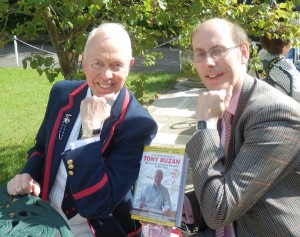 Phil Chambers with Tony Buzan * How competitors like Ben Pridmore have changed the Major Method so that it can compress three digits and are working now even on four digits to increase the amount of information that can be memorized. * Why the only real limit to card memorization is how quickly you can move your hands and how this memory skill will move beyond the matter of physical dexterity using technology to increase the speed of card retention and recall in what is now being called an “extreme sport.” * A range of techniques that people who feel non-visual can use to increase their ability to use memory techniques grounded in associative-imagery. * Why Dominic O’Brien‘s habit of daydreaming provided the source of him becoming a World Memory Champion eight-times over. * A quote from Leonardo Da Vinci that will deeply improve your imagination within seconds. * Why even in our age of technology, we can still benefit from having improved memory skills. * Why the human brain scores way greater in the creativity department than what a computer will likely ever achieve. * The two major mistakes that would-be memorizers make that causes them frustration to the point of giving up – and exactly how to overcome both of them. * How to overcome any difficulties with memory techniques by starting with those strategies that give you an instant ability to memorize material without hassle (you’ll learn exactly what these are). * Why someone with a “bad memory” who uses memory techniques will still have a better memory than even someone who seems to have been born with superior memory skills. * … and much, much more! Further Resources: UK Memory Trainings by Phil Chambers in 2014 Books by Phil Chambers on Amazon.com Books by Phil Chambers on Amazon.co.uk World Memory Championships Website Phil Chambers moderating the 2013 Algerian Memory Championships on YouTube Anthony Metivier is the founder of the Magnetic Memory Method, a systematic, 21st Century approach to memorizing foreign language vocabulary, dreams, names, music, poetry and much more in ways that are easy, elegant, effective and fun. The post Phil Chambers Talks About The Outer Limits Of Memory Skills appeared first on Magnetic Memory Method - How to Memorize With A Memory Palace.
Direct download: Phil_Chambers_Talks_About_The_Outer_Limits_of_Memory_Skills.mp3
Category:Memory Method Tips -- posted at: 8:43am EDT |
Sun, 29 June 2014
Dear Memorizers, As you learned about back in the post, What If I Wanted To Memorize 3000 Words?, there’s really no memorization challenge that cannot be overcome. That said, there are a number of “painful truths” about memorizing that many people let get in the way of their progress. Let’s look at some of these. 1. You will make mistakes. It’s a basic fact that not only will we make mistakes when memorizing material such as foreign language vocabulary, names, faces and even our dreams, but we need to make mistakes in order to identify problem areas and grow. It’s an old cliche but a stubbornly correct one: we learn by failing. Or better put, it’s only failure if you refuse to learn from the mistakes. I think we’ve all probably had that experience of knowing that we’re doing something wrong, but going ahead and doing it anyway. The trick is to stop, correct and then proceed along the newly corrected basis. And in doing so, we make the practice artful. And, of course, I’m always talking about projects for memorizing stuff that’s important to you, like foreign language vocabulary, names and faces and poetry. But the same principles apply even if you’re into competition and feats of extreme memory. And yes, even memory champions make mistakes when their skills are on display. 2. You will be tempted to show off. Showing off is not such a bad thing, but the reason that it’s a painful truth when it comes to memory skills is that … you’re going to make mistakes. For many people, this is enough to turn them off of using memory skills or a dedicated Memory Palace network forever. This is a shame because failure, slip-ups and all kinds of foibles happen all the time. And you can learn from them, simply by grabbing hold of yourself, letting yourself relax, apologize if necessary and then start again at a convenient place. Just like Alica Crosby did in the Magnetic Memory Method Podcast episode, Tap the Mind of a 10-year Old Memory Palace Master. She made a tiny little error, caught herself and then corrected. Like it was nothing. Which it was. So if you are showing off (and I hope that you do), don’t let a tiny little mistake shame you out of continuing with memory development. And here’s a tip: demonstrate your skills to others in low stress environments. For example, do card drills in front of your dog or cat. Your pets don’t care if you get it wrong, but you will have the feeling that you’re demonstrating your memory skills in front of a sentient being. Then scale it up to your mom, your dad or a friend you know will be chill if you slip up. You can even tell them that you’re a bit nervous about making a mistake, which is a cool trick because when you don’t make any mistakes, they’ll probably forget that you said that or just think that you were being modest before unleashing the miracle. From there, you can increase the “social difficulty” as you please, always knowing that you can correct mistakes with a quick, “oh sorry,” like Alicia did on the Podcast and carry on. 3. You have to learn to relax. I include this amongst the painful truths of memory skills because, at least in my experience of helping many, many people build either their first or their one hundredth Memory Palace, usually the number one problem they have with memorizing information and recalling it is that they aren’t relaxed. There are a number of reasons why relaxation not only helps, but will completely take things to a new level for you. The first is that it helps over come the objections in the mind. I’m talking about that voice that says, “this is stupid,” or “this is crazy,” or “this will never work.” Many a person has this voice turned away from the gift of mnemonics. But if you memorize in a state of relaxation, you can dampen, lessen or outright eliminate this voice and work on improving your memory in peace. The second is that relaxation enhances creativity. I don’t know if this is because you enter a more dreamlike state, but there’s a lot of scientific research which demonstrates a link between, for instance, meditation and creativity and I’m sure that your personal experience will demonstrate that this is true for you as well. Meditation is a pretty simple affair. As Alan Watts put it: sit just to sit. The rest will take care of itself. A third reason why relaxation is such a powerful tool for a memorizer is that it conditions you to associate relaxation with memorization and recall. This means that when you’re tempted to show off, you can tap into that state of relaxation you used to memorize the stuff in the first place and use it in the moment in order to avoid getting flummoxed or embarrassed or otherwise feeling discouraged if you make a mistake. It’s really cool, but also a painful truth of memory skills and it saddens me that so many people skip this step and then claim that mnemonics don’t work for them. They do work and they will work for even the most resistant mind if you just give relaxation a serious try. 4. You have to have a success-oriented mindset. Far too many people enter a field they want to conquer expecting failure. This rarely helps … I don’t know why many of us go into things in a dark mood, but the relaxation tip I’ve just given is one way to move yourself in a more positive direction, in addition to simply deciding in your mind that you will succeed and nothing will stop you. Better yet, write it down. Literally. Get a notebook that you carry around with you and every day write down a list of your goals and the declaration that you will achieve them. Today was the first day of the Polyglot Gathering 2014 in Berlin and I showed someone who was skeptical that I actually do this my personal notebook that I carry with me everywhere. It has a date written in ink at the beginning and he could see that I certainly hadn’t filled out half the book since arriving at the conference that morning and gotten it all worn and dirty from carrying it in my pocket. I really do this stuff and it has helped me combat negative-thinking and depression for years. I don’t know exactly why it works, but Richard Wiseman talks about it in his book 59 Seconds and gives the science in those pages, so I highly recommend that you read it for more on this approach and even more little life hacks that are scientifically grounded that you can put to use in under a minute. 5. You will need to challenge your imagination. I was talking with another fellow today at the Polyglot Gathering today and he wanted to know why I recommend that people memorize the alphabet backwards. I told him that it’s a great way to see how you can use a Memory Palace, it’s great brain exercise, and it also helps bridge the gap between memorizing things that are familiar to you (the alphabet) and things that are foreign (like the alphabet backwards). You can use this skill to help when encountering foreign language words and seeing how to use mnemonics to store them in your mind and then later recall them at will. He still didn’t quite see why one should do exercises like this, especially for him because he knows the techniques and uses them every day. So I asked him what he thinks it would be like if he could use the same techniques he already knows 10 times better? He didn’t quite have an answer, but he thought it would be pretty cool. So I suggested that he give memorizing the alphabet backwards a try and explained that you could never really know what the strength of someone like Schwarzenegger feels like without putting in the time at the gym. In the same way, you can never know just how powerful your memory can be without doing some basic exercises. There is a huge difference between pumping 10 pounds and pumping 50 and only those who pump 50 get the outcome that only 50 can achieve. It’s that simple. So if you want your memory skills to grow, you’ve got to add challenges. Even if you just want to maintain them, you’ve got to at least use your memory techniques. I don’t really believe in the use “use it or lose” it idea in this case, but there’s definitely a dampening of power if you don’t memorize things for a long time, regardless of how well you understand the techniques. Not only that, but not having Memory Palaces prepared in advance can be a real drawback as well because then you’ve got to build them, or at least revisit them if you haven’t kept them maintained. Never fear, however. This is not hard work and it is in fact a lot of fun to wander Memory Palaces just to keep them in check for when you might want to use them. Speaking of which … let’s move on to … 6. You need to be obsessed with using memory skills. Actually using them, that is. I know all kinds of people and receive many messages each and every day from people who are deeply interested in mnemonics and love to read about Ars Memorativa. But so many people never actually build a Memory Palace, let alone use it. They have a problem that I call “mistaking activity with accomplishment.” It’s a huge problem that affects a lot of people in a lot of areas. But as awesome and even necessary as thinking about memory techniques is, it’s not the same thing as using them or analyzing your use of them and then getting back in there and using them again. But if you’re not obsessed with memory techniques, there’s hope in yet another pain of mnemonics … 7. You have to be willing to get started. This is another huge barrier that people face, including myself. I got started with memory techniques almost by accident, but they still wound up helping solve the desperate situation I was in as a grad student on the verge of flunking out during some very dark days of depression. Other people come to memory techniques in their own way, but don’t know exactly how to get started. I always like to say that mnemonics begins and ends with the Memory Palace. But this is not the only way, though it probably is the most Magnetic. All this said, in practical terms, one of the easiest and best ways to get started is to have a practical vision of what it is that you want to accomplish. Having a solid grasp of your intended outcome will guide and inform the process. It’s kind of like getting a degree in college or university. Yes, some people go to “audit” courses and take them for personal or professional reasons as one-offs, but most people go to university guided by some kind of structure, a well-defined outcome, a Bachelor of Arts in … whatever. The same thing goes for memory skills … minus the degree. In order to achieve something, you need to know what it is that you’re trying to achieve, so instead of saying, “I want to improve my memory,” try saying, “I want to improve my memory so that I can _________.” And then fill in that blank with a specific goal. From this basis, you’ll not only improve your memory overall because of applying memory skills in a dedicated manner, but you’ll achieve that goal alongside the learning and mastering of a memory strategy. Another way to think of this, returning to the university degree metaphor is that one never takes a degree just in a particular subject. You learn both the subject and how to learn about that subject which translates into how to learn about something in general. Thus, when I did my BA and my first MA in English Literature, I wasn’t just learning about English Literature, but I was learning about how to learn about English Literature at the same time, guided by the structure of a program and its carefully defined goals and outcomes. Make sense? Good. So let me conclude by defining exactly what it is that separates the Magnetic Memorizer from all the rest: * The Magnetic Memorizer overcomes all of the pains of memory skills in order to become free of forgetfulness at will. Others accept forgetfulness and let it rule the road of their life without taking focused and directed action. You can be Magnetic and you can have freedom from forgetfulness. * The Magnetic Memorizer practices self-leadership and firmly takes the task of memory development from the whims of nature into her or his own hands. As a Magnetic Memorizer, you’re not looking for something from nothing. You know the value of hard work and you refuse to be a victim of forgetfulness. Finally … * The Magnetic Memorizer places high value on the powers of the human mind and its natural abilities and approaches the Magnetic Memory Method as a method. The Magnetic Memorizer does not look for a “cookie-cutter,” one size fits all memory training program. You adapt and you form and you fashion based on the universal principles that you’ve learned, ideally grounded in the Memory Palace tradition for the reasons I have outlined many times before. And if you are a student (which is the best time to tackle these painful truths), I recommend checking out the free webinar on Memory Secrets of an A+ Student. It will help you overcome each of these of painful truths about memory skills. About the author: Anthony Metivier is the founder of the Magnetic Memory Method, a systematic, 21st Century approach to memorizing foreign language vocabulary, dreams, names, music, poetry and much more in ways that are easy, elegant, effective and fun. The post The 7 Painful Truths Of Succeeding With Memory Techniques appeared first on Magnetic Memory Method - How to Memorize With A Memory Palace.
Direct download: 7_Painful_Truths_Of_Succeeding_With_Memory_Techniques_Magnetic_Memory_Method_Podcast.mp3
Category:Practical Memory Techniques -- posted at: 3:49pm EDT |
Wed, 25 June 2014
In this episode of the podcast, I tell you about the memorization process behind the writing of Lucas Parks and the Download of Doom, my first novel to feature a Memory Palace. Apparently it’s mesmerizing! Tune in now and you’ll learn: * How to turn a movie theater into a Memory Palace. * How to use your dreams to create stories for novels and screenplays (it’s easy: just wake up and start writing down everything you remember and then use the plot points discussed in this podcast to structure a story around those narrative fragments). * Why Stephen King’s 2000 word a day rule is not nearly as important as he makes it seem (and how to be relaxed about it while still getting massive amounts of writing done). * The plot points I consider to be the most important when writing a story (like the conflict between conscious desire and unconscious need, dilemma, the visit to the underworld and the battle). * How to get a copy of Lucas Parks and the Download of Doom for free (no catch whatsoever). * My story as a young scholar reading Plato’s Republic while also working as a janitor in a movie theater (crazy times indeed). * … and much, much more! Frankly, if you’ve ever wanted to write a short story, screenplay or novel, there’s no better way to do it than to memorize the major plot points that have been with us since stories first became popular. I’ve been studying screenwriting gurus like John Truby and Robert McKee along with general ideas from narratology for ages in order to get insight into how stories work and have even served as a story consultant myself on several unproduced films and even Assault on Wall Street. Here I am on the set of that film with director Uwe Boll and the actors Dominic Purcell and Edward Furlong (yes, he played young John Connor in Terminator 2):
I got my story consulting gigs partly because of two kind of strange and mysterious books I’ve written on screenwriting: Disaster Genre Secrets for Screenwriters and Horror Genre Secrets for Screenwriters. These are based on my lectures on American Film Genres that I gave at the Universität des Saarlandes in Germany and talk about things that really no other screenwriting books discuss using weird words like “abjection.”
There was no time! Between preparing for the lectures and writing my dissertation while also running the short film club at the Uni, not to mention keeping up with my bass guitar studies … I was swamped! But I know Film Studies so well that I didn’t really need to memorize anything. All I had to do was draw up a few notes based on my research and preparation for the lectures and press the go button on my mind once I reached the podium. The notes guided my lectures so that I kept on track and the rest came from a different kind of memory: long term memory. There are different ways that material gets into long term memory, and a lot of my knowledge about film that allowed me to lecture from notes got into my long term memory through Memory Palace work, particularly using the combined index card/Memory Palace method. I talked about this procedure in detailed a previous podcast episode called “How to Memorize a Textbook.” Anyhow, I’m really happy to be able to talk about not only the various plot points I used to structure Lucas Parks and the Download of Doom, but also about how I memorized them for visiting again and again in order to deeply contemplate how to apply them to the stories I write. If you’re a writer and found this episode useful, please share it with your friends. As always, if you have any questions, please feel free to contact me at any time. Update: Film Studies is back in my life with this YouTube playlist all about the genres: Enjoy and let me know if you have a chance to check it out and find anything memorable!
The post How To Memorize Plot Points (For Writers Only) appeared first on Magnetic Memory Method - How to Memorize With A Memory Palace.
Direct download: How_to_Memorize_Plot_points_Magnetic_Memory_Method_Podcast.mp3
Category:Podcast -- posted at: 11:03am EDT |
Tue, 10 June 2014
* Why you need to train your working memory (and exactly what working memory is) so that you can make use of the best parts of your mind when working with languages. * How to link your ideas together so that they flow naturally together. * Why you should never drink the night before translating a speech by Obama. * The amazing reason why people fail at the study of new languages and how to avoid it. * How to develop competence in your own native tongue in order to achieve elegance in another language. * Why it’s not about what you “know” in your mother tongue, but what you can “do” with it that matters. * Why a deep knowledge of the culture and country of the language you’re studying helps you with learning the language. * The importance of understanding irony, puns and jokes and why this can be much more critical than having piles of vocabulary and grammar rules in your memory. * The absolutely best conditions for language learning. * The difference between internal and external motivation and how to use this understanding to excel with language learning. * Why rote learning is the number one mistake that language learners make (and what to do instead). * How to build a network that will let you see how the syntax of a language works so that you can build sentences with greater ease. * When to add quantity to your pool of foreign language vocabulary. * Why building a language core is like building a spider web to which new vocabulary sticks (even if you’re not yet a polyglot. * Some of the exact ways that Luca makes his mind learn languages much more quickly, the exact same techniques you can adopt for yourself. * Why you should never be prejudiced about a different culture or be seduced by generalizations such as “the French are snobbish.” * Why languages belong to no one and are only ever used, never owned. * Luca’s feelings about how English sounds to him from his perspective as a polyglot with Italian as his mother tongue. * Exactly what the “bucket effect” is and how to use its power in your language learning efforts. * The “combinatory logic” behind syntax and how to use this to understand the “gist” of what other people are saying as you build towards to fluency. * The relationship between vocabulary, circles and layers that move between objective, subject and literate levels of language learning. * Why building “language islands” is the best way to prepare yourself for exploring the depths of the “language oceans” that characterize all of the world’s many modes of speaking. * Why even a highly established English-speaker like Luca always watches English movies with the English subtitles on (and why you should too). * How to give your brain points-of-reference using a simple notebook. * The real reason why second-language speakers have accents. * How to understand the “jogger’s high” effect when it comes to language learning and how to avoid its opposite, “jogger’s depression.” * Why fear is one of the hugest problems that language learners face and how to overcome it. * … and much, much more. After listening to this interview, please be sure to go back and listen to the previous interview with Luca, titled “Luca Lampariello Talks About Language As A Net.” I’d also like to recommend that you check out Luca’s website, The Polyglot Dream. There you can find links to Luca’s Facebook, Twitter and YouTube offerings, all of which offer you amazing language learning ideas, inspiration and dedicated training. As always, feel free to get in touch if you have any questions, and … Keep Yourself Magnetic! For More Language Learning Resources … Check Out: 15 Reasons Why Learning A Language Is Good For Your Brain How Motivation Affects Your Memory When Learning A Language The post Luca Lampariello On Working Memory And The Oceans Of Language appeared first on Magnetic Memory Method - How to Memorize With A Memory Palace.
Direct download: Luca_Lampariello_On_Working_Memory_And_The_Oceans_Of_Language.mp3
Category:Podcast -- posted at: 4:55pm EDT |
Fri, 6 June 2014
In this episode of the Magnetic Memory Method Podcast, you’ll learn about using a Memory Palace even while suffering the crushing side effects of medication. Program Notes: Following from Magnetic Memory blog posts like The Dyslexic Memorizer Who Aced All His Exams and Memory Palaces vs. Alzheimer’s, another question about using mnemonics, Memory Palaces and other memory techniques to help overcome mental “problems.” In this case, it’s the negative effects of taking medication on memory has come in. Have you worked with anyone who was working against medications and/or an illness that randomly scatters chunks of memory? I’m on an anti-seizure med for some fairly extensive nerve damage, and since I’ve been on it, my already compromised memory is suddenly like trying to catch butterflies with a hula hoop. Now I’m wondering if I’m just a hopeless case. Thanks for any advice/thoughts! I don’t want to prattle on about myself, but I am one such person. In fact, my whole adventure into memory, something I’ve only recently started talking about, came from the devastating cognitive effects of lithium, which I was taking at the time to control Bipolar Disorder. Now I take something else that has less extreme effects, but back then, there seemed to be no alternative … Until I found mnemonics. In truth, I have only anecdotal evidence that mnemonics helps bring clarity into the mind, and I was also discovering a whole lot of other things at the same time, so the clarity that came into my mind through the use of Memory Palaces was assisted by things such as self-hypnosis, meditation and a better diet combined with fitness, improved sleep, writing down my dreams each and every morning, and spending some time writing down my goals and things that I’m grateful for on a daily basis. I learned a lot of these “hacks” from Richard Wiseman’s 59 Seconds, as well as from taking hypnotherapy certification which was part of my doctoral research into friendship (sounds like a stretch, but it turns out that we do hypnotize each other in a certain way as we become friends). But in terms of Memory Palaces strictly speaking, one of the biggest things that being able to command my memory brought was confidence. The stress and negativity that surrounded me as I worked to read some of the strangest and most obscure books of philosophy and cultural studies almost caused me to drop out of graduate school. And that’s not counting the fogginess and poor concentration that made it very difficult for me to read in the first place. And in truth, I still experience all of these things today. The difference is that Memory Palaces cut through all of it, provided that I use them and use them in the right way. For me, the right way is the Magnetic Memory Method and it applies to just about everything I – or you – could ever want to learn. Of course, as I teach it, the MMM is a “method” and not a “system,” which enables users to adapt the basic principles to their own learning style. Most people don’t need to change much, but the whole purpose of how I designed it for myself was to make what really is impossible for a person with my frenzied brain possible. These techniques are an almost fool proof means of getting things into my mind so that I can find them whenever I want. Think of it like this: The Magnetic Memory Method is like a wheelchair and a ramp. Without the ramp, the chair cannot be wheeled up to the next level. Without the wheelchair, the person cannot be moved anywhere. Put them together, however, and there’s no level that cannot be reached. The Magnetic Memory Method is a structured means by which both the chair and the ramp can be built in stages in order to bring the material in the chair to wherever in the mind you want it to go. But it’s not about wheelchairs and ramps … It’s about Memory Palaces. Mental constructs based on familiar places. That’s the key: familiar places. When you get more advanced, you can use less familiar places from deep in memory and even invented Memory Palaces or Memory Palaces based on video games, TV shows, etc. Thus, instead of trying to catch butterflies with a hula hoop, see if you can’t just catch one Memory Palace in your mind. Start with your own house. Using the Magnetic Memory Method principles of not trapping yourself and not crossing your own path, create a linear journey through the Memory Palace. Then, spend some time just traveling that journey. Make it really vivid in your imagination. If you can’t actually see it in your mind’s eye … Stop trying. Feel it instead. Feel it as a structure, a series of squares that are connected. You can also feel the journey in terms of time. How long would it take you to move from the bedroom to the kitchen? Approximately how many steps? When done with eyes closed, even a non-visual person can begin to attribute visual elements to this inner sense. Because the journey is known in real life and has now been recreated in the mind, you can move on to the next step. Assuming that you’ve got ten stations along your Memory Palace journey and assuming that you’ve got ten Spanish words lined up, then you’re ready to work on memorizing the first Spanish word by placing it at the first location. All of this is premised upon the absolute certainty that you know where to find that word later when you’re looking for it as part of your Magnetic Memory Method Recall Rehearsal procedures. Of course, there are ways that you can read about in the book that help you make sure that you’re picking the best possible words, and you can experiment with all of these. The most important thing is to get started. John Cage once said, “begin anywhere,” and that remains true. But if you’re struggling to find a place to start, start by embedding your home in your mind and try to always focus on what is possible. That is in fact the number one lesson I have ever learned. I used to focus so much on what was impossible that I hypnotized myself into taking zero action. But through all kinds of mysterious and interesting and strange circumstances, I learned to focus only on the possible, something I have to relearn all the time. Miraculously, when I use Memory Palaces in the right way, they never fail me. And barring some terrible brain trauma – and even then (if you’ve heard my Podcast interview with Michael Gusman then you’ll know why I’m making this exception), I don’t think Memory Palaces that are correctly built can ever fail. I sum, if I can make the following suggestions that I think will help you deal with the effects of your medication, based on the understanding that I’m not a doctor (at least not the medical kind, just a dude with a PhD), work on Memory Palaces as described by the Magnetic Memory Method, but also: * Meditation Do this writing by hand so that you train your brain to connect your gratitude and wishes with movements of the hand, with mechanical acts of doing that are not integrated with computers. The research Richard Wiseman presents in 59 Seconds shows you why this is important, but it also just makes sense when you think of the difference between blunt force writing via typing and the elegance of handwriting … Or the lack of it, which reminds me that if you ever get bored of writing down the same thing every day, try writing with your non-dominant hand instead. It took me only a short time to develop this skill and it has really happy effects. I guess it lights up different centers of the brain. I don’t know if writing with your non-dominant hand will do that for you, but if you’re going to pick up these habits, then you might as well give writing with your non-dominant hand a try too. It cannot hurt. I hope these thoughts help. Let me know if you have any questions or if there is anything further I can do for you. Anthony Metivier is the founder of the Magnetic Memory Method, a systematic, 21st Century approach to memorizing foreign language vocabulary, dreams, names, music, poetry and much more in ways that are easy, elegant, effective and fun. The post Can A Memory Palace Overcome Medicinal Side-Effects? appeared first on Magnetic Memory Method - How to Memorize With A Memory Palace.
Direct download: On_Medication_And_Memory_Skills_Magnetic_Memory_Method_Podcast.mp3
Category:Memory Method Tips -- posted at: 1:39pm EDT |
Sat, 31 May 2014
Let’s face it… We’ve all suffered from nightmares. Sometimes they come out of nowhere, sometimes they’re deeply connected with a rough passage through life. And yet… Since first starting with dream recall, I’ve never had what I’d call a “nightmare.” My childhood was littered with them, however. I think these terrible nocturnal experiences were tied to all the surgeries I needed thanks to a ruptured eardrum. As a result of this problem, I needed tubes. These were taken in and removed repeatedly over several years … But I’m not going to fill your ears with these tales of nighttime woe or the images they involved. I don’t even particularly want to hear descriptions of your nightmares. I’m not a dream therapist, after all. What does interest me, however, is what you’ve done to deal with your dreams when they haven’t been nice. Do you just let it go and get on with your day? Do you carry a feeling with that takes time to subside? Do you tell a loved one or friend? Ideally, if you’re practicing dream recall, you’ll write it down. It’s part of creating that nighttime portrait I was telling you about. It’s like creating a graph that lets you see spikes of activity over time. Form becomes as important as content, especially when you hit an earthquake or volcano. You can relive it in the safety of paper as you externalize and study your nighttime seismograph. And over time, with a dedicated dream recall practice, you can bring balance to your nighttime life. The other thing I would suggest to speed up the process of healing nightmares is to place your disturbing dreams in Memory Palaces. Yes, I know that Memory Palaces are precious things. You almost don’t want to get them involved. But the fact of the matter is that Memory Palaces can serve as neutral territory. Just as we use Memory Palaces to enliven the material we want to remember using vibrant color and intensified action, we can drain our negative dreams of the intensity that terrifies us by placing those fears in a familiar location we’ve reconstructed in our minds. Try it sometime. When you wake up from an unsettling dream, place as many details as you can remember into one of your Memory Palaces. Or write them down as you would normally to get the fullest possible recording of the dream on paper and then transport the dream into a Memory Palace. (If you’re new to Magnetic Memory Dream Recall, then writing them down first before doing Memory Palace work is probably the better option). Either way, once you’re in the Memory Palace with the dream, or looking at it from whatever way that you look at dreams you’ve placed there, before you do anything else, drain the dream of colour until it’s black and white. You may even want to make it like an old scratchy movie, which will allow you to eliminate and reduce the sound. This is another powerful strategy for neutralizing a nightmare. For especially bad dreams, you can speed them up and add sound, as in a comedic movie where everything speeds up and everybody sounds like Mickey Mouse. Make it so that you have no choice but to laugh at the dream. To that younger version of myself, who from the ages four to ten had intense nightmare that caused so much disturbance throughout the day that it could not help but to invite new nightmares the next night, I would advise myself to eliminate the color from the dream and then using the powerful safety of a Memory Palace, wrap it up like newspaper and throw it out the door like Sigourney Weaver ejected the monster in Alien out into space. I ain’t saying that this will be easy. It could take some deliberate practice with dream recall. And definitely some familiarity with Memory Palaces. But if you’re interested, and for some reason not already on board the Magnetic Dream Recall nightmare-healing journey (potentially, depending on your sincerity of effort), the train departs from here: The post Can A Memory Palace Heal Nightmares? appeared first on Magnetic Memory Method - How to Memorize With A Memory Palace.
Direct download: Can_a_Memory_Palace_Heal_Nightmares_Magnetic_Memory_Method_Podcast.mp3
Category:Memory Method Tips -- posted at: 1:31pm EDT |
Mon, 26 May 2014
Tune in now and you’ll learn: * The best ways to use index cards to create a “skeleton” that you can use again and again for other writings or to memorize material for a public presentation. * Why index cards are better than Evernote and Anki. * How to make writing a dissertation as interesting as writing a screenplay for television or the movies. * How to use the floor of your apartment to organize an entire dissertation into multiple chapters so that you can present the evidence in the best possible order simply by sitting and writing. * The best conditions to create and maintain a writing space for composing your writing. * The need for syncing to Dropbox or some similar service while you’re writing. * How to avoid the need to re-read your dissertation before the defense. * How to know almost exactly where in your dissertation you’ve made various points. * The best way to keep your research material “mobile.” * How to apply the techniques in this podcast and “How to Memorize a Textbook” to memorize and write blog posts about gardening, cooking or whatever area of interest you might want to write or present about. * … and much, much more. I also invite you to an upcoming webinar titled Memory Secrets of an A+ Student, which I highly encourage you to sign-up for and attend. I’ll be talking more about using memory techniques as part of scholastic success with an eye to making sure that the techniques can also be used by everyone. As a student, as you may know, I was pretty foggy in my mind most of the time for various reasons I’ve talked about before. Memory skills and the index card research technique that I talk about in the podcast were key to my success and although paper and pen seem like ancient technology to students today, I still highly recommend using them. Handwriting uses, rather obviously, the hand, and there are good, scientifically grounded reasons that explain why that handwriting creates higher levels of cognition. Couple this with a Memory Palace, location-based memory technique and you’ll quickly experience much larger results than typing. It’s not entirely clear to me why typing differs from handwriting, but the effects are plain and the practical benefits evident. As I talk about in this episode, it’s easy to lose or accidentally delete a computer file, but so long as you have an ordered stack of index cards, you know the order of points you talked about in the writing and can re-write it relatively easily. You may even be able to dictate directly from the index cards, which is a point that I neglected to address in the podcast itself. If you have dictation software and are able to verbally respond to index cards off-the-cuff, then the writing processes can go even more quickly for you, making your job simply one of editing. If you’ve enjoyed this episode of the Magnetic Memory Method Podcast, please add a comment here, subscribe on iTunes or Stitcher and feel free to share it with anyone you know who is currently writing a dissertation or writing in general. Talk soon! Sincerely,
Anthony Metivier is the founder of the Magnetic Memory Method, a systematic, 21st Century approach to memorizing foreign language vocabulary, dreams, names, music, poetry and much more in ways that are easy, elegant, effective and fun. The post How To Write A Dissertation (Or Essay) appeared first on Magnetic Memory Method - How to Memorize With A Memory Palace.
Direct download: How_to_Write_a_Dissertation_Magnetic_Memory_Method_Podcast.mp3
Category:Memory Method Tips -- posted at: 7:12pm EDT |
Tue, 20 May 2014
In this episode of the Magnetic Memory Method Podcast, I talk about a strange book called How to Memorize the Bible Quick and Easy in 5 Simple Steps that claims mnemonics are a form of witchcraft! In addition to debunking this claim, in today’s episode you’ll learn: * The real reason I wrote How to Learn and Memorize the Psalms of the Bible. * Why I have been asked to help people stop memorizing the scripture. * Why actually reading scripture may be more important than memorizing them. * How the laws of physics, force and velocity relate to the universal principles of mnemonics and Memory Palace construction. * Why you need to take dedicated memory training so that you can learn to build effective Memory Palaces, understand journeys and asssociative-imagery and learn Recall Rehearsal. * Why memorizing textbooks verbatim is not necessarily the best goal and an invitation to learn how to do it the right way. * Why books that mix mnemonics and theology are can be dangerous for your health (and what to read instead). * Why asking God to help you memorize the Bible will probably involve a dedicated memory technique (possibly even the Magnetic Memory Method). * Why belief (not faith) can be a mnemonic strategy and how to properly place it. * Why memorizing only the material that leaps out at you might be good for “bibliomancy” when memorizing a textbook, but probably won’t help you when trying to memorize scripture verbatim. * Why mnemonics are most certainly not blasphemous. * Why mnemonics bears absolutely no relationship to witchcraft (because witchcraft doesn’t exist). * Why memorizing long strings of numbers is absolutely fantastic for building your memory skills. * The relationship between weight-lifting and memory skills. * Why rote-learning is the “blunt force hammer” of learning. * The benefits of reading books twice before you memorize them (either in whole or in part). * The mysteries of “chunking” and “rechunking.” * Why the future of the human species is going to be better than its past. * Why the words “atheist” and “agnostic” are ridiculous words (but not ones that should be forgotten). * Why Memory Palaces and location-based memory techniques are the best of all mnemonic methods. * Exactly how to ensure that you never forget where you left your keys again. * How to find more Memory Palaces than you can shake a Magnetic stick at. * Why your memory has no saturation point whatsoever. * How to leverage the natural ability of the mind to memorize all the information you could ever want. * … and much, much more! If you’re interested here’s the book talked about in the podcast:
Here’s my book about how to memorize the psalms:
And this is the video course I mentioned that goes even deeper into memorizing verse in general. Use coupon code “nonstrology” for a special introductory discount on your one time investment in this revolutionary memory training. It comes with a 30-day Magnetic Decision Guarantee.
+Anthony Metivier is the founder of the Magnetic Memory Method, a systematic, 21st Century approach to memorizing foreign language vocabulary, dreams, names, music, poetry and much more in ways that are easy, elegant, effective and fun. The post Of Witchcraft, Nonstrology And Mnemonics appeared first on Magnetic Memory Method - How to Memorize With A Memory Palace.
Direct download: Of_Witchcraft_Nonstrology_and_Mnemonics_Magnetic_Memory_Method_Podcast.mp3
Category:Podcast -- posted at: 2:23pm EDT |
Fri, 16 May 2014
* The important connection between space in your Memory Palaces and where you use your Memory Palaces. * The amazing value of having a solid routine so that you can see the compound effect of the work you’re putting into your memory (developing your memory is more like play than “work”, so don’t let that nasty word put you off!) * Why you need to start simple each and every time you memorize something so that you can sail into the more complicated matters with ease (this one tip alone is worth at least a million Magnetic dollars). * How to leverage the power of mistakes and turn them into the most powerful memorizing experiences you could ever wish for. * When to ditch parts of your Memory Palace so that you can memorize even more material and not get stuck in a ditch. * The most important rule in the world for getting past the whining and crying of frustration so that you are always calm and relaxed when working on memorizing material. * The productivity secrets of specialization and why you need one. * How to train your brain using rewards (I used to think this was corny too until I finally gave it a try … it works!) * … and a whole lot more! Listen to this episode of the Magnetic Memory Method Podcast and be amazed by what you can achieve using the natural abilities of your mind. +Anthony Metivier is the founder of the Magnetic Memory Method, a systematic, 21st Century approach to memorizing foreign language vocabulary, dreams, names, music, poetry and much more in ways that are easy, elegant, effective and fun. The post Your Free Memory Improvement Master Plan appeared first on Magnetic Memory Method - How to Memorize With A Memory Palace.
Direct download: Your_Free_Memory_Improvement_Master_Plan.mp3
Category:Memory Method Tips -- posted at: 11:39am EDT |
Thu, 8 May 2014
* Why mnemonics is neither cheating nor a cheap trick. * How memory skills can help you deal with the massive amounts information on the Internet. * Why Timothy hates Qwerty keyboards and how mnemonics might have a competitor when it comes to learning a new keyboard system. * Timothy’s history with graduated intervals (and what graduated intervals are). * The difference between learning and association and why the latter may be a more powerful way to think about education. * The best way to learn and memorize song lyrics. * Why the mind “likes” to remember music and how to use music to memorize foreign language vocabulary. * How to get a “compound effect” when using music to memorize information and information to memorize music. * Why everyone can be a “grand” master of memory (even if you have to take the “grand” part away). * How to be proactive about the things you naturally remember so that you can link them to pieces of information that your brain doesn’t latch onto so easily. * Why you should engage in all your activities based on results, rather than on the time you spend. * Why mnemonics allow you to spend more time reading and thinking instead of losing time on rote learning. * Why you should pay attention to stressed syllables when memorizing foreign language vocabulary so that you mind can take care of the rest (kind of like letting it “fill in the blanks” so that you don’t have to work so hard). * Timothy’s simple, three-part solution to the problem of teaching mnemonics through examples and how to find the right “starting point” so you can smoothly sail through the seas of mnemonics and other memory skills. * How to get the “bigger picture” when memorizing textbook material so you don’t have to worry about memorizing every little detail verbatim. * The best foods to eat so that your mind is clear and your memory is ready for mnemonic activity at the highest possible level. * Why Memory Palaces can be used by everyone, no matter how rich or poor your are and no matter where in the world you live. * Why both the deep history and the recent past of memory techniques are an important part of your journey into enhanced memory abilities. * Why memory tactics fell out of favor in the 18th century, but are coming back to help us all as part of a Mnemonic Renaissance thanks to the Internet. * Why education and fun can be one and the same thing so that people of any age can enjoy the learning process and use the natural abilities of their minds to enjoy their lives and their minds at a very high level. * Why you are unlikely to drop your brain on the sidewalk, but should be prepared with memory skills for the day that your smart phone crashes. * How you can use memory skills not just to memorize a bunch of facts, but connect those facts to a larger picture of knowledge so that you develop critical thinking skills as part of your memory improvement project. * Why you need to be willing to test out new mnemonic approaches and test them to find out which ones work best for you. * Exactly what to do if you’re not a visual person and still want to use mnemonics by “segmenting” pictures. This is an exciting interview packed with ideas that you can use immediately to start using your mind with greater productivity starting today. If you’re interested in using advanced memory skills to learn Spanish, then I highly recommend checking out Timothy’s free Accelerated Spanish Webinar. And check out this additional interview with Timothy here on the Magnetic Memory Method Podcast: Mnemonics, Language Learning And Virtual Memory Palaces In Discussion With Timothy Moser The post Timothy Moser Talks About Memory Skills and Productivity appeared first on Magnetic Memory Method - How to Memorize With A Memory Palace.
Direct download: Timothy_Moser_Talks_About_Memory_Skills_And_Productivity.mp3
Category:Podcast -- posted at: 3:53pm EDT |
Sat, 19 April 2014
* Why David Mansaray’s Language is Culture Podcast is one of the finest language learning resources you’ll ever find online. * Why you need to join David’s Lovers of Language and Culture Facebook group immediately. * Why the idea that mnemonics are artificial is a dangerous meme (and how to stop worrying about the natural/artificial division and start loving all learning methods). * Exactly how and when to use rote learning to achieve your goals in ways that won’t bore you to death and fritter away your energy when you could be using lightning-fast memory techniques. * Why Memory Palaces are the ultimate solution for memorizing foreign language vocabulary if nothing else works. * The most powerful way to think about context and language learning and how to unleash its power. * Why the number 13 is so awesome for overcoming any fears you might have. * The REAL reason you need to go to the library and stop trying to learn everything online. * Exactly why “natural” language learning involves more artificial means than any other language learning technique. * Why NOT using index cards and paper for rote-learning and using memory techniques instead can reduce emissions and save the planet. * The precise relationship between memory techniques and martial arts and how to make sure you can find the balance between them (even when you’re not in a fighting mood). * Why using the associative-imagery involved in mnemonics will never confuse you or make you juggle your thoughts any more than you’re already juggling them anyway. * How to assess critical comments and book reviews you read online and think for yourself about language learning and mnemonics. * Why you need to fly in the face of authority in order to make strides in your language learning efforts. * Why authority is a thing of the past and how to make sure you’re listening to the right people who are teaching the right things. * … and much, much more. Further Resources Olly Richards On Crazy Language Learning Goals And Mastering Motivation The post The Most Controversial Language Learning Technique In The World appeared first on Magnetic Memory Method - How to Memorize With A Memory Palace.
Direct download: The_Most_Controversial_Language_Learning_Technique_In_The_World.mp3
Category:Podcast -- posted at: 4:21pm EDT |
Tue, 8 April 2014
WAIT! |
Thu, 3 April 2014
In this compelling interview, you’ll learn:
Please enjoy this valuable interview and get in touch with either myself or Dr. Samuels if you have any questions. Further Resources Insights To Remember Before Starting Over The post Dr. Jim Samuels Talks About How to Reduce Stress With Mnemonics appeared first on Magnetic Memory Method - How to Memorize With A Memory Palace.
Direct download: Magnetic_Memory_Method_Podcast_Jim_Samuels_Talks_About_How_To_Reduce_Stress_With_Mnemonics.mp3
Category:Podcast -- posted at: 12:44pm EDT |
Fri, 28 March 2014
You’ll also learn: * The reason why Memory Palaces may have originated in ancient China and not ancient Greece. * An introduction to the Person Action Object system … and why I don’t use it! More on that topic on this episode of Magnetic Memory Method Live on YouTube:
The video was inspired, in part, by the following email: I’d love to ask for your advice on a PAO system I am working on for my family to use: Background: I have thought about encoding 8 to 12 digits along a journey in each location by using an enhanced PAO system from 0-99, I call PACO (Person, Action, Object + a Container) The container is a different kind of object that only works because I ensure the types are mutually exclusive. I plan to later add a discrete food object and a discrete pet to each double digit as well. See the list below for example. The rationale for this is that I work in a data intensive industry (valuing and helping to buy/sell companies), where memorizing many figures, stats, and historical charts would be of great use. I’m not as interested in rapidly memorizing a deck of cards, though I wouldn’t mind spending some time on that later… To support this system, I follow certain restrictions:
My long term thought is that I can have a person doing an action on an object frozen in my mind inside of a container. Each of these PACOs could be eating a food and own a pet. Thus, in one loci, if it is graphic and memorable enough, I can encode up to 6 double digit items. I’m just wondering if this is overkill and what may be the best way to get my brain to internalize the PACOs. My question is, should I develop a separate journey of 110 location (perhaps 11 rooms of 10 loci), which I use to memorize the PACOs? Also, if I start with just the traditional PAO and add the additional C later, will that be counterproductive to just memorizing all the options up front? Do you have any other advice on how I can most effectively internalize the system, so that I just about think of pictures in place of double digits? Thank you for any thoughts on this topic! Thanks for the question. Everything is covered in this episode of the podcast and this YouTube Live. Now back to … * Why you really aren’t using memory techniques at all if you don’t have a location-based strategy involved in the mix. * How to use Magnetic Bridging Figures and Word Division to maximize your use of mnemonic locations in your Memory Palace network. * Why you must always use a Memory Palace whenever exploring the possibilities of memory techniques. * Why competing in memory competitions isn’t for everyone (memory champions still make mistakes, after all!). * Why you need a method – not necessarily a system – that will work for you with respect to the specific memory goals you are trying to pursue. * Why the Magnetic Memory Method is a way of thinking about information storage and retrieval as a kind of way of life. * Why location-based memory strategies are the best for easing information into long term memory. * Why you don’t need to memorize long string digits of numbers in order to “prove” that you are succeeding with memory skills. * Why you need to join the mnemotechnics.org community immediately – but only if you’re going to apply what you learn from the community. * Why YOU are the best person to teach memory techniques to the young people in your life. See also Tap the Mind of a 10-Year Old Memory Palace Master. * Two amazing resources for introducing young people to mnemonics. * The unbelievable connection between bumblebees, serial killers, graffiti and location-based memory techniques. * … and much, much more! Thanks as always for your interest in the Magnetic Memory Method Podcast, videos and the Magnetic Memory Method Masterclass. I appreciate your interest in the PAO very much and look forward to further interesting questions about it. In the meantime, if you struggle with it or find that it’s simply not for you, check out the Major Method. It might work better for you. Until next time, have fun and keep yourself Magnetic! Sincerely, Anthony Metivier The post MMMP 013: The Amazing Relationship Between Memory, Serial Killers And Bees appeared first on Magnetic Memory Method - How to Memorize With A Memory Palace.
Direct download: MMMP_013_The_Amazing_Relationship_Between_Memory_Serial_Killers_and_Bees.mp3
Category:Podcast -- posted at: 10:17pm EDT |
Mon, 17 March 2014
Listen now and you’ll learn: * The precise connection between language learning and addiction so that you can use the highs to accomplish all of your fluency goals and the secret origins of why Sam named his site directly from the influece of Konglish. * How to get “addicted” to language learning even if you don’t like to study or think language learning is too hard. * How to get to know yourself before you start learning a new language. * The three most important questions you need to ask every time you come up against a language learning barrier. * Why being born bilingual is not always useful when it comes to further language study. * Why you should never try to go it alone with just grammar guides and traditional textbooks. * The important role of curiosity in all language learning and how to develop it so that you can zoom through some of the harder aspects of language learning. * How language learning can lead to finding new friends and even the love of your life. * Sam’s insightful approach to David Mansaray’s distinction between learning a language on your own and being a self-directed learner. * Exactly what to do to learn a language without having to rely on teachers, classrooms and dusty old textbooks (though you’ll still want at least some kind of textbook and Sam has great recommendations for how to choose them). * How to build your confidence by using the right incentives so that you can blast into success. * How to avoid burnout and still maintain consistency. * Sam’s amazing Mount Fluency metaphor and how to use it as a “point” of inspiration in your climb towards the top of your target language. * What to do when you reach an intermediate level and need extra motivation to keep going. * Sam’s favorite spice in the kitchen of language learning. * The power of using multiple news media channels to experience massive boosts in fluency. * Why you need to realize that you can easily become more fluent than a five year old in his or her mother tongue and why you should never get stuck in thinking less of yourself if you can’t immediately talk about world events such as what’s going on in Ukraine. * Why language and culture are really inseparable and how to exploit this fact in order to learn more about your target language and start using it quickly. * Sam’s response to Luca Lampariello’s “ephiphany moment” concept. * How to avoid getting bogged down in the words of the language by focusing on the message of each and every sentence you speak. * How to assess the strengths of different language learning programs and mix and match them to maximize the language learning benefits they offer (or should offer before you invest your precious time and money!) * When you should absolutely never use spaced-repetition software. * How to use the powers of inductive language learning as you are working towards what Sam calls a “rule-based” approach if you want to get to a very high level in your foreign language studies. * Precise ways to reward yourself every time you reach a language goal so that you feel refreshed, renewed and ready for the next level. * How to record yourself for maximum exposure to your own use of the foreign language so that you can analyze your progress and go even further and deeper into the language learning process and literally “mold” your ears as you fine tune your approach. * How to avoid learning the rules for things you haven’t been exposed to yet so that you don’t get frustrated and quit. * Why you should never approach language learning as homework. * How to avoid rigid thinking when it comes to language learning. * … and much, much more. +Anthony Metivier is the founder of the Magnetic Memory Method, a systematic, 21st Century approach to memorizing foreign language vocabulary, dreams, names, music, poetry and much more in ways that are easy, elegant, effective and fun. The post Sam Gendreau Talks About How To Get “Addicted” To Language Learning appeared first on Magnetic Memory Method - How to Memorize With A Memory Palace.
Direct download: Magnetic_Memory_Method_Podcast_011_Sam_Gendreau.mp3
Category:Podcast -- posted at: 3:40pm EDT |
Thu, 6 March 2014
Listen to this episode of the Magnetic Memory Method Podcast right now to learn: * The difference between self-education and self-directed learning and how to be proactive about your own education so that you can grow in the direction you want without hassle. * The best way to use writing to refine your language skills so that you can experience boosts in fluency faster and with greater ease. * Why you should avoid word frequency lists when learning a foreign language and what to do instead to build a massive (but targeted) vocabulary. * How to learn to communicate at a deeper, conceptual level in your target language (as well as in your own mother tongue!) * The real secrets to becoming a “hyper-polyglot.” * Why observation is just as important as taking instructions when learning from other people. * Exactly what a mentor is and why you need one to help you clarify your thinking and decisions so that you can live an informed and positive life. * How to deal with negativity and fear so that you can pursue your goals with an open mind and daring spirit. * The importance of emotions and excitement in learning and how to generate them immediately. * David’s thoughts on the uses of Memory Palaces, Moonwalking with Einstein and other memory techniques, including a unique way to use streets as Memory Palaces when learning a new language. * … and much, much more. Got questions about David Mansaray, the Magnetic Memory Method Podcast or memory in general? Get in contact, subscribe to the Magnetic Memory Newsletter. +Anthony Metivier is the founder of the Magnetic Memory Method, a systematic, 21st Century approach to memorizing foreign language vocabulary in a way that is easy, elegant, effective and fun. The post David Mansaray On Passion, Polyglots and Positivity appeared first on Magnetic Memory Method - How to Memorize With A Memory Palace.
Direct download: MMMP_010_David_Mansaray_On_Passion_Polyglots_and_Postivity.mp3
Category:Podcast -- posted at: 4:27pm EDT |
Mon, 24 February 2014
Mnemonics are fantastic, but many consumers have questions about the products available on the market, so if you’re hunting for a book, audio program or video course, be sure to listen to this episode of the Magnetic Memory Method Podcast in order to make the right decision. You’ll hear: * 3 costly misconceptions about your memory and memory training products. * 3 recommendations to consider before investing any time or money in a memory training product. * 14 questions you should ask each and every time you lay out your hard-earned cash. Enjoy this episode of the Magnetic Memory Method Podcast, get in contact with your questions and download the PDF.
The post MMMP 009: Memory Training Consumer Awareness Guide appeared first on Magnetic Memory Method - How to Memorize With A Memory Palace. |
Mon, 17 February 2014
Would You Like To Know How To Improve Your Memory Like Arnold Schwarzenegger Pumps Iron?If so, tune in to the Magnetic Memory Method Podcast and you’ll learn: * How to manage your hurdles with respect to your memorization goals. * A great resource for picking up the 850 words you’ll need to memorize as part of achieving basic fluency. * The amazing benefits of relaxation for memorization. * … and much, much more. If you want to add your voice, here are the questions you can use to give your memory an advantage starting today: Question #1: What is your personal “Memory Myth” about your memory, including any programming you may have received as a young person or continue to receive in your daily life? How does this myth affect how you think about your memory? Question #2: What is the “distance” between where you are now with your memory skills – and where would you like to be in the future. Please be as specific as possible, including something like a deadline for when you would like to see a difference achieved (five minutes from now, tomorrow, next month, next year, etc). Question #3: What is your education “action plan” for getting the knowledge and training you need so that you have complete control over the improvement you would like to see in this area of your life? And now let me add … Question #4: Have you ever used a Memory Palace or mnemonics? Once you start using a Memory Palace for language learning, it’s important that you follow up with reading, writing, speaking and listening every day. Without these activities, you cannot expect to get very far. Memory techniques serve you in the following way: Vocabulary is like the gas you put into the engine of grammar. You cannot run the engine without it. In fact, you can’t even understand the engine. And fluency is like a highway that has many gas stations along the way. Think about it: Even in your mother tongue, there are thousands of words you don’t yet know and will never know. But you can always tank up whenever you please. When it comes to learning another language, you just need to get yourself on the highway. That might take some bench pressing that you struggle with, but you’ll find your way, especially if you take a few minutes of your time to answer the questions above. Please use the contact form to send your answers when you’re done. I’ll get back to you with some comments and a very Magnetic Memory gift a.s.a.p. And of course, spend some more time learning about how to improve your memory like Schwarzenegger pumps iron at least one more time. And if you’re interested in using the Magnetic Memory Method to memorize foreign language vocabulary, the Magnetic Memory Method Masterclass includes a complete unit called How to Learn and Memorize Foreign Language Vocabulary. +Anthony Metivier is the founder of the Magnetic Memory Method, a systematic, 21st Century approach to memorizing foreign language vocabulary in a way that is easy, elegant, effective and fun. Further Resources: 7 Ways To Make Your Memory Swiss Army Knife Sharp Ogden’s Basic English Word Lists The post How To Improve Your Memory Like Schwarzenegger Pumps Iron appeared first on Magnetic Memory Method - How to Memorize With A Memory Palace. |
Tue, 11 February 2014
Alicia used this book to memorize all of Shakespeare’s plays in historical order and is now exploring ways to use Memory Palace techniques to memorize other information, such as the Periodic Table of The Elements. In this interview, you’ll also hear about: * Why walking, bikes and even motorcycle rides can make a world of difference when it comes to building Memory Palace journeys. * Why Memory Palace journeys never have to be “manually” memorized. * Why Memory Palaces are essentially a “free resource” just waiting in your mind to be utilized to memorize just about anything. * The number one thing Alicia likes about using her memory. * The confidence that having an improved memory can bring – at any age. * Why memory is a catalyst to developing an interest in topics that young people might not otherwise care about. * Exactly how using a Memory Palace feels, the absolute joy and creativity of using memory techniques … * … and much, much more. Join us for this very special interview on the Magnetic Memory Method podcast and feel free to get in touch if you have an experience with Memory Palaces and memory techniques that you care to share on a future episode.
For more interviews like this, please check out Memory Improvement for Kids. You may also like to learn about how to remember more of your vacations with a Memory Palace. The post Tap The Mind Of A 10-Year Old Memory Palace Master appeared first on Magnetic Memory Method - How to Memorize With A Memory Palace.
Direct download: MMM007_Tap_the_Mind_of_a_10_Year_Old_Memory_Palace_Master.mp3
Category:Memory Method Tips -- posted at: 11:50am EDT |
Sun, 9 February 2014
Use coupon code “podcast” for a special introductory discount on your one time investment in this revolutionary system for memorizing foreign language vocabulary. +Anthony Metivier is the founder of the Magnetic Memory Method, a systematic, 21st Century approach to memorizing foreign language vocabulary in a way that is easy, elegant, effective and fun. The post MMMP 006: How To Master Your Highly Targeted Memorization Goals appeared first on Magnetic Memory Method - How to Memorize With A Memory Palace. |
Mon, 3 February 2014
In this thrilling, 45-minute interview, you’ll learn: * Why fluency is really nothing more than the capacity to assemble the pieces of a language together. * How to think of language as a net (so that you can go fishing for phrases). * The epiphany the point where the language is engrained in your brain. * Why just a couple of books is more than enough when studying a new language. * Why languages are like a group of friends. * How the simple act of smiling can deepen your language learning efforts. * What to do if you find yourself practicing your language with unpleasant people. * Why learning a language is like courting a lover. * How to balance quality and quantity when it comes to learning vocabulary. * Solid tips on using Skype for language learning. * Why establishing a “time line” is essential to language learning. * How you can learn up to 40 sentences in just one hour. * How involving your emotions enhances your learning capacity. * Why you need to avoid criticism and negative feedback when learning a language. * How to used spaced-time repetition the right way. * Luca’s personal experiences with the journey method and the method of loci. * What Luca learned about mnemonics while studying to be an interpreter. * How to develop your natural capacity for associating new vocabulary with places and feelings. * How to vary your activities to maximize your learning curve. * Why you should think in terms of structures and phrases instead of words. * The difference between a beginner and an intermediate language learner. * The number one principle behind all language learning. * … and much, much more. Luca’s methods are groundbreaking, riveting and fun. Every day you’re not putting his wisdom to work and studying a foreign language, you’re leaving part of life’s pleasure behind. The post Luca Lampariello Talks About Language As A Net appeared first on Magnetic Memory Method - How to Memorize With A Memory Palace.
Direct download: Magnetic_Memory_Method_Interview_With_Luca_Lampariello.mp3
Category:Memory Method Tips -- posted at: 1:17pm EDT |
Mon, 27 January 2014
In this interview you’ll learn Michael’s personalized Memory Palace methods and how to get started on creating your own. Plus:
Enjoy this interview and let both Michael and I know if you have any questions. And before you go, it’s not just car-crash induced brain trauma that mnemonics can help you recover from. Check out this TEDTalk for some very interesting research into the use of Memory Palaces to help Alzheimer’s patients remember the names of their loved ones:
I’ve also run across some interesting reports about people using Memory Palaces to stave off the effects of so-called “chemo brain.” Fantastic news if it really helps people cope with the terrible suffering of the cancer itself and the side effects of the medicines used to treat it. So as you can see, even if you’ve experienced memory loss from brain trauma, there’s hope. If you can see in your mind or even just think about where your kitchen is in relation to your bedroom, you’re halfway there. (And if you can’t, look up my video on aphantasia. Believe me, you can still use a Memory Palace and memory techniques.) And if you can get an image or thought about your favorite actor or cartoon character in your mind, then chances are, you can learn to memorize just about anything. You just need to work at it a little bit every day and have something you want to memorize. Make it something that will make a meaningful difference in your life, like Michael did. He skipped memorizing shopping lists and went straight for scripture with great personal meaning for him. And if you’re worried that you don’t have any locations you can use to base a Memory Palace on, just have a listen to this episode of the Magnetic Memory Method Podcast. It will help you out a great deal.  Sincerely, Anthony Metivier P.S. In case you’re interested, the books Michael mentions are: You can also listen to this interview via YouTube: Further Resources Jim Samuels on how to use mnemonics to reduce stress. Memory Improvement Tips For The Depressed Student. Traumatic Brain Injury article in Wikipedia. My discussion with Jennie Gorman on memory loss on Magnetic Memory Method Live: If you’ve experienced memory loss from brain trauma or illness, let me know in the comments below. I’m always searching for ways to help! The post Car Crash Survivor Michael Gusman Talks About Mnemonics And Brain Trauma appeared first on Magnetic Memory Method - How to Memorize With A Memory Palace. |
Wed, 15 January 2014
You’ll also hear some fun and interesting mnemonic examples featuring nuns, pyramids and Pythagoras’s abs! After listening, enter discount code “math” for a Magnetically Mathematical discount on your investment in either How to Learn and Memorize the Vocabulary of Any Language. Anthony Metivier is the founder of the Magnetic Memory Method, a systematic, 21st Century approach to memorizing foreign language vocabulary in a way that is easy, elegant, effective and fun. The post MMMPodcast Episode 003: Memorizing Mathematical Formulas appeared first on Magnetic Memory Method - How to Memorize With A Memory Palace. |
Thu, 9 January 2014
After listening, enter discount code “podcast” for a 50% discount on your investment in either How to Learn and Memorize the Vocabulary of Any Language or How to Memorize Names and Faces. Anthony Metivier is the founder of the Magnetic Memory Method, a systematic, 21st Century approach to memorizing foreign language vocabulary in a way that is easy, elegant, effective and fun. The post MMMPodcast Episode 002: Memorizing Drill Using Plain, Old-Fashioned Dice appeared first on Magnetic Memory Method - How to Memorize With A Memory Palace. |
Sun, 5 January 2014
Dear Memorizers, I started working on Greek and guess where I began? But I went a little hog wild this time, creating both an audio and video version. You can download the Mp3 above or watch as we wind our way through my Memory Palace and the mnemonic imagery I used to memorize each letter of the Greek alphabet. And yes, coupon code “greek” might just still be up for grabs when you want to get started on memorizing vocabulary after mastering the alphabet. This online language learning course will show you how. Until next time, dear Memorizers, help someone else learn about Memory Palaces and mnemonics. Teaching is one of the best ways to really solidify the methods for yourself and to make the world a better place all in the same stroke. The more we can memorize, the more we can learn. And the more we can learn, the more we can memorize. It’s a perfect circle, so step inside and let’s widen it together. The post The Greek Alphabet Is Easy To Memorize (Audio and Video) appeared first on Magnetic Memory Method - How to Memorize With A Memory Palace.
Direct download: Greek_Alphabet_Easy_to_Memorize.mp3
Category:Memory Method Tips -- posted at: 2:58pm EDT |
The Magnetic Memory Method Podcast

Categories
generalMemory Improvement Tools
Memory Method Tips
Brain Exercises for Memory Improvement
Memory Improvement Case Studies
Podcast
Guest Post
Memory Palace Tactics
Practical Memory Techniques
Uncategorized
Improve Memory Q&A
Archives
AprilMarch
February
January
December
November
October
September
August
July
June
May
April
March
February
January
December
November
October
September
August
July
June
May
April
March
February
January
December
November
October
September
August
July
June
May
April
March
February
January
December
November
October
September
August
July
June
May
April
March
February
January
December
November
October
September
August
June
May
April
March
February
January
December
November
October
September
August
July
June
May
April
March
February
January
December
November
October
September
August
July
June
May
April
March
February
January
December
November
October
September
August
July
June
May
April
March
February
January
December
November
October
September
August
July
June
May
April
March
February
January
December
November
October
September
August
July
June
May
April
March
February
January
December
November
September
| S | M | T | W | T | F | S |
|---|---|---|---|---|---|---|
| 1 | 2 | 3 | 4 | 5 | ||
| 6 | 7 | 8 | 9 | 10 | 11 | 12 |
| 13 | 14 | 15 | 16 | 17 | 18 | 19 |
| 20 | 21 | 22 | 23 | 24 | 25 | 26 |
| 27 | 28 | 29 | 30 | |||
Syndication














 Personally, I never use “heaven” for 11 the rare times I use the Peg System. It’s too abstract and vague and there are too many possibilities. I use my friend “Evan.” I’ve known him for years and can see what he looks like in my mind (he’s almost always got a goofy smile). And if I were to meet a guy named Ralph and wanted to memorize him as part of a list of names, I would have him interacting with this new dude Ralph in a weird and interesting way.
Personally, I never use “heaven” for 11 the rare times I use the Peg System. It’s too abstract and vague and there are too many possibilities. I use my friend “Evan.” I’ve known him for years and can see what he looks like in my mind (he’s almost always got a goofy smile). And if I were to meet a guy named Ralph and wanted to memorize him as part of a list of names, I would have him interacting with this new dude Ralph in a weird and interesting way.


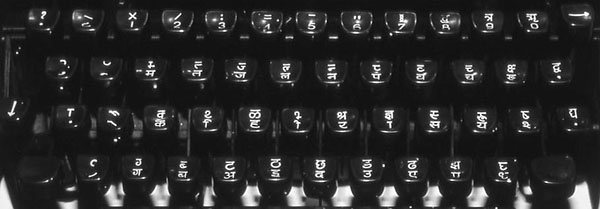
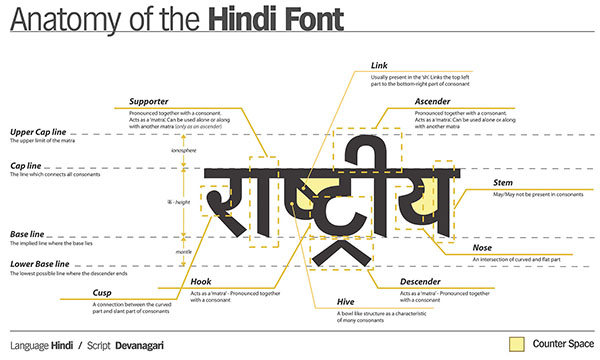
 In this episode of the Magnetic Memory Method Podcast,
In this episode of the Magnetic Memory Method Podcast, 
 In this episode of the Magnetic Memory Method Podcast, Timothy Moser of
In this episode of the Magnetic Memory Method Podcast, Timothy Moser of 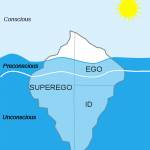


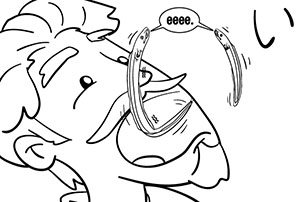

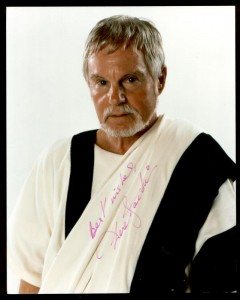 e better. I’m deeply fascinated by Ezra Pound and he also had a connection to Chinese and Japanese, so he works really well in this connection. In Latin, you could use Derek Jacobi or some actor you like who you’ve seen prancing around in a toga to keep things interesting. (Or an actor you’ve never seen in a toga, for that matter, to keep things extra memorable). The point is that it shouldn’t be too difficult to come up with zany images if you take familiar things and put them in unfamiliar situations.
e better. I’m deeply fascinated by Ezra Pound and he also had a connection to Chinese and Japanese, so he works really well in this connection. In Latin, you could use Derek Jacobi or some actor you like who you’ve seen prancing around in a toga to keep things interesting. (Or an actor you’ve never seen in a toga, for that matter, to keep things extra memorable). The point is that it shouldn’t be too difficult to come up with zany images if you take familiar things and put them in unfamiliar situations. Dear Memorizers,
Dear Memorizers, I’ve been training myself to employ this notice board for capturing the key points of podcasts that I listen to every now and again.
I’ve been training myself to employ this notice board for capturing the key points of podcasts that I listen to every now and again.

 greater conversational flow (improvisational jazz, as my virtual bass teacher
greater conversational flow (improvisational jazz, as my virtual bass teacher 
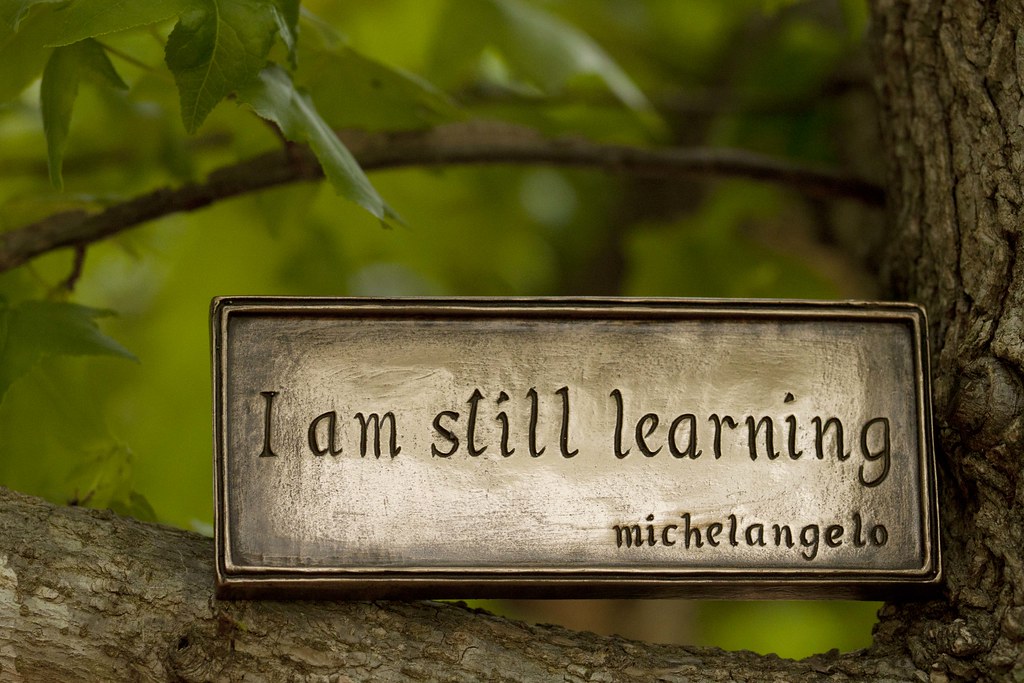
 In this episode of the Magnetic Memory Method Podcast,
In this episode of the Magnetic Memory Method Podcast, 
 In this episode of the Magnetic Memory Method, we have a special interview with Phil Chambers. Phil is a World Mind Mapping Champion who works closely with the World Memory Championships as a scorer and statistician who does not believe that memory competitors have even come close to
In this episode of the Magnetic Memory Method, we have a special interview with Phil Chambers. Phil is a World Mind Mapping Champion who works closely with the World Memory Championships as a scorer and statistician who does not believe that memory competitors have even come close to 
 Subscribe to the Magnetic Memory Method Podcast on
Subscribe to the Magnetic Memory Method Podcast on 


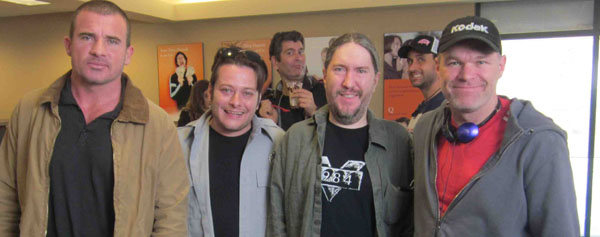

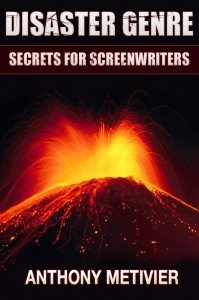 Since we’re on the topic of memory skills, you might find it interesting to know that I rarely gave my lectures from memory. Why?
Since we’re on the topic of memory skills, you might find it interesting to know that I rarely gave my lectures from memory. Why? In this episode of the Magnetic Memory Method Podcast, Luca Lampariello treats us once again to a focused array of language learning secrets that you can put to use today in your foreign language study efforts. Tune in now and you’ll learn:
In this episode of the Magnetic Memory Method Podcast, Luca Lampariello treats us once again to a focused array of language learning secrets that you can put to use today in your foreign language study efforts. Tune in now and you’ll learn: Dear Memorizers,
Dear Memorizers,
 In this episode of the Magnetic Memory Method Podcast, I follow up on the “
In this episode of the Magnetic Memory Method Podcast, I follow up on the “
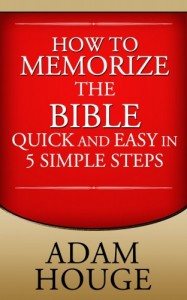

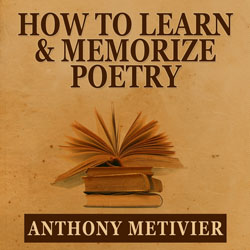
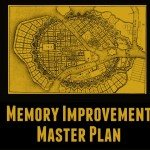 In this episode of the Magnetic Memory Method Podcast, you’ll learn 8 simple and effective strategies that you can apply to your dedicated memorization efforts when you using mnemonics to study, memorize poetry, foreign language vocabulary or even a deck of cards. Listen now to learn:
In this episode of the Magnetic Memory Method Podcast, you’ll learn 8 simple and effective strategies that you can apply to your dedicated memorization efforts when you using mnemonics to study, memorize poetry, foreign language vocabulary or even a deck of cards. Listen now to learn: In this episode of the Magnetic Memory Method Podcast, you’ll hear from Timothy Moser, the man behind
In this episode of the Magnetic Memory Method Podcast, you’ll hear from Timothy Moser, the man behind  In this week’s episode of the Magnetic Memory Method Podcast, you’ll learn:
In this week’s episode of the Magnetic Memory Method Podcast, you’ll learn:


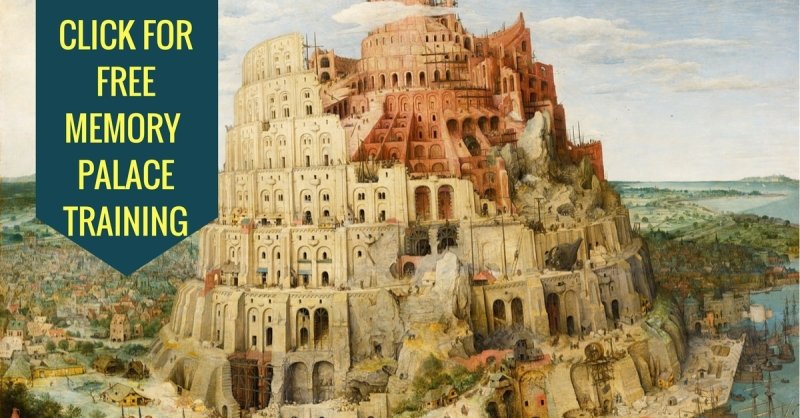
 In this episode of the Magnetic Memory Method Podcast,
In this episode of the Magnetic Memory Method Podcast,  , a mnemonic method for releasing stress.
, a mnemonic method for releasing stress. In this episode of the Magnetic Memory Method Podcast, you’ll learn about the amazing connection between location-based memory strategies, serial killers, graffiti and bumble-bees.
In this episode of the Magnetic Memory Method Podcast, you’ll learn about the amazing connection between location-based memory strategies, serial killers, graffiti and bumble-bees. In this episode of the Magnetic Memory Method Podcast,
In this episode of the Magnetic Memory Method Podcast,  In this episode of the Magnetic Memory Method Podcast, renowned polyglot and language learning expert David Mansaray (
In this episode of the Magnetic Memory Method Podcast, renowned polyglot and language learning expert David Mansaray (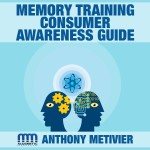 For Episode 009 of the Magnetic Memory Method Podcast, I’ve created an audio presentation of my Memory Training Consumer Awareness Guide, which is also available as a
For Episode 009 of the Magnetic Memory Method Podcast, I’ve created an audio presentation of my Memory Training Consumer Awareness Guide, which is also available as a  In this episode of the Magnetic Memory Method Podcast, I respond to one of your answers from the Magnetic Three Question Survey.
In this episode of the Magnetic Memory Method Podcast, I respond to one of your answers from the Magnetic Three Question Survey.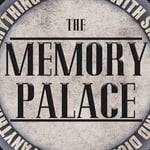 In this episode of the Magnetic Memory Method Podcast, Alicia and her father John Crosby join us to talk about Lewis Smile’s
In this episode of the Magnetic Memory Method Podcast, Alicia and her father John Crosby join us to talk about Lewis Smile’s 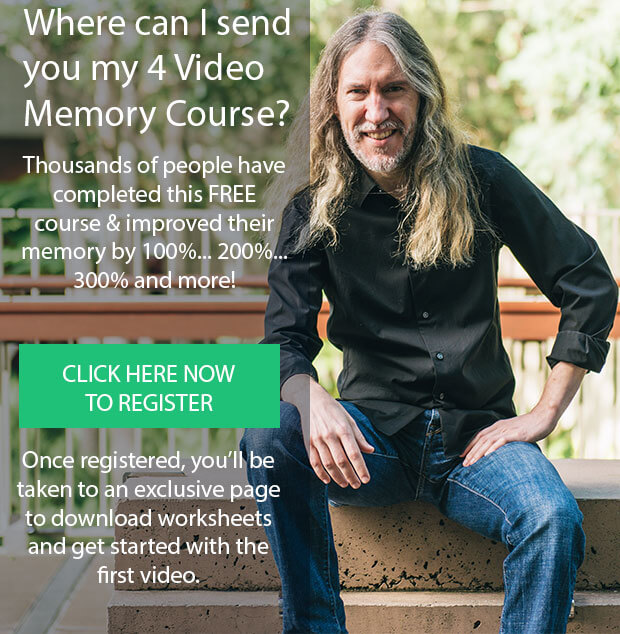
 In this episode of the Magnetic Memory Method Podcast, you’ll hear from language learning expert, Luca Lampariello.
In this episode of the Magnetic Memory Method Podcast, you’ll hear from language learning expert, Luca Lampariello. In this episode of the Magnetic Memory Method Podcast, you’ll hear from Michael Gusman, a memory enthusiast who was t-boned by an SUV at 55 miles per hour. He suffered multiple injuries and a brain hemorrhage that left him with short term memory loss.
In this episode of the Magnetic Memory Method Podcast, you’ll hear from Michael Gusman, a memory enthusiast who was t-boned by an SUV at 55 miles per hour. He suffered multiple injuries and a brain hemorrhage that left him with short term memory loss. In today’s episode of the Magnetic Memory Method Podcast, we’re going to learn how to use a Memory Palace to store mnemonic associative imagery that will enable us to recall any mathematical term of formula we could possible desire.
In today’s episode of the Magnetic Memory Method Podcast, we’re going to learn how to use a Memory Palace to store mnemonic associative imagery that will enable us to recall any mathematical term of formula we could possible desire.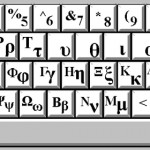 That’s right. With the old fashioned Alpha and Omega.
That’s right. With the old fashioned Alpha and Omega.
This is an interesting question, Denver.
I could only offer anecdotal evidence, which is that, yes, practicing memory techniques can improve your overall recall.
A caveat, however. The accuracy of that recall may not be adequate even if your Memory Palace work and work with other memory techniques and mnemonics is involved. Thus, I would exercise caution if and when claiming this material is the truth. I suspect that most writers and audiences realize this anyway, but it’s an important point to keep in mind.
Something related that comes to mind just for fun:
Carl Jung used the word “cryptomnesia” to describe writing things and not realizing that you’re “copying” something you’ve read before. He accused Nietzsche of being a plagiarist, for example, but a plagiarist suffering from this condition (through somehow I don’t think Jung’s diagnosis means that Jung forgave him).
The problem with this accusation is that it would lead people to believe that the creators of The Matrix had read the 7th book of Plato’s Republic (the “Allegory of the Cave”).
This is quite likely, but it’s not necessary that they did. What matters is that there is a core, universal story that has reverberated throughout history. What is being “remembered” or recreated is the echo of the narrative undertow and its deep structures. You don’t need to have come across something before in order to “fall prey” to reconstructing it.
This doesn’t, by the way, relate to the idea that a thousands monkeys with typewriters would eventually come up with all of Shakespeare. As far as I know, they don’t perceive culture, so that randomness could never attain to such meaning. Not only that, but what counts as “Shakespeare” has always been and will always be in question as new scholarship discovers new things and we continue to contend with the fragments of writing that were left behind and mostly unsigned by whoever wrote them.
Back to writing the “truth” of one’s past, another psychologist, Jacques Lacan, said that “there are too many words” to accurately reflect the truth of a situation after the fact.
Try it out some time.
I’m about to go to the grocery store and I can guarantee you in advance that so many things are going to happen, so many shapes and colors are going to be seen and so many people encountered, all of which will contain conscious and subconscious thoughts …
There will be too many words available in English and every other language to ever describe it except by eliminating, or rather focusing possibility towards the construction of a possible rendition of what happened.
Put another way, there aren’t words enough. You could fill twelve telephone books trying to describe what will take place on that simple journey and never make an accurate description. You’d have to be me taking that short trip, and even I won’t absorb even a tenth of it.
Thus, I would suggest that it’s not what one can remember that is important when writing about the past. It’s the impressions that you shape from what you do remember that count. And the words you use to choose them will always come from a pool of too much to create too little based on the pounding of stimuli from what Freud called the “oceanic.”
There you have it. Three psychoanalysts in one answer. How’s that for fearful symmetry?
Further Resources and Nifty Things That Only An Internet Can Provide: Freud on the Oceanic in Civilization and its Discontents (probably better translated as “its discomfort”)